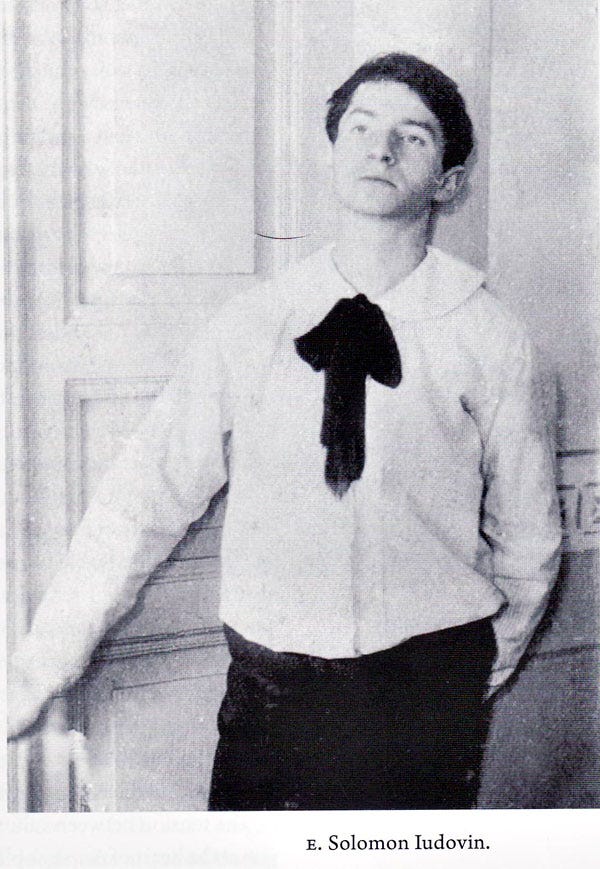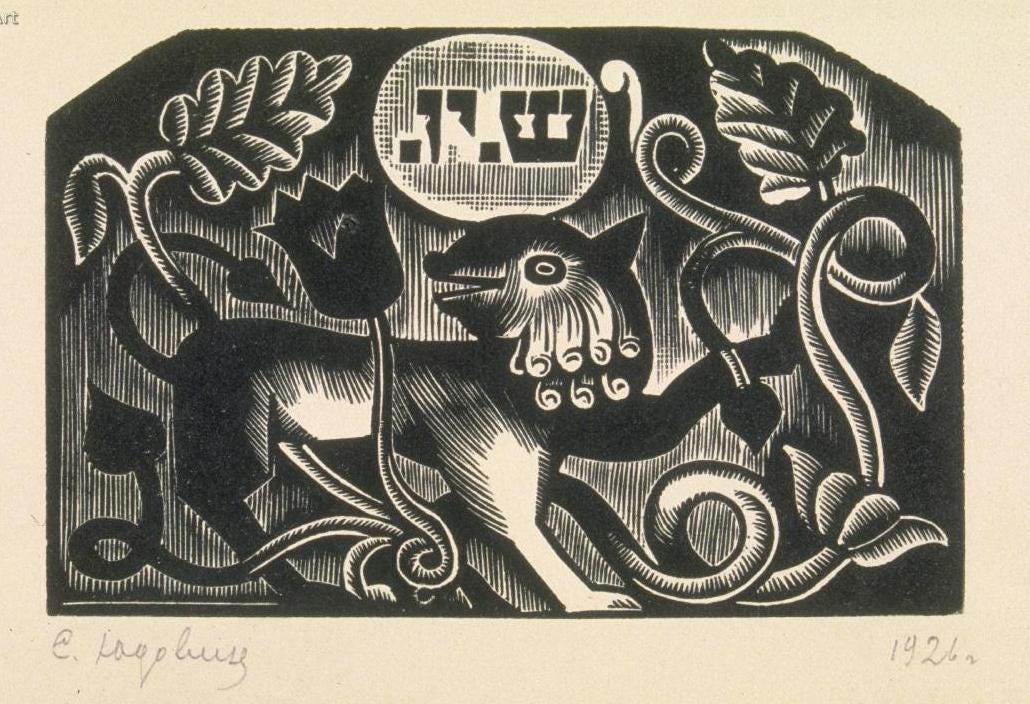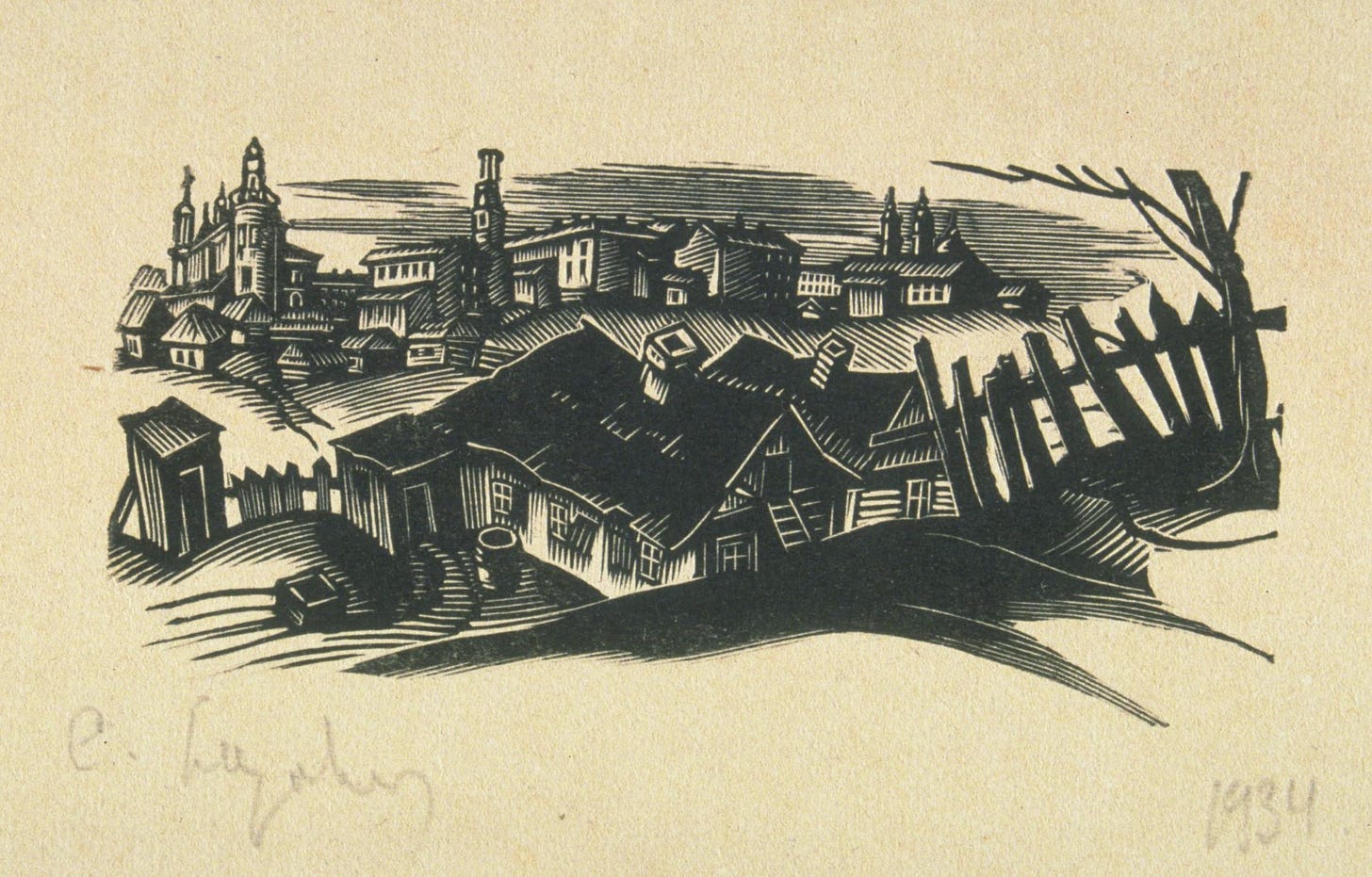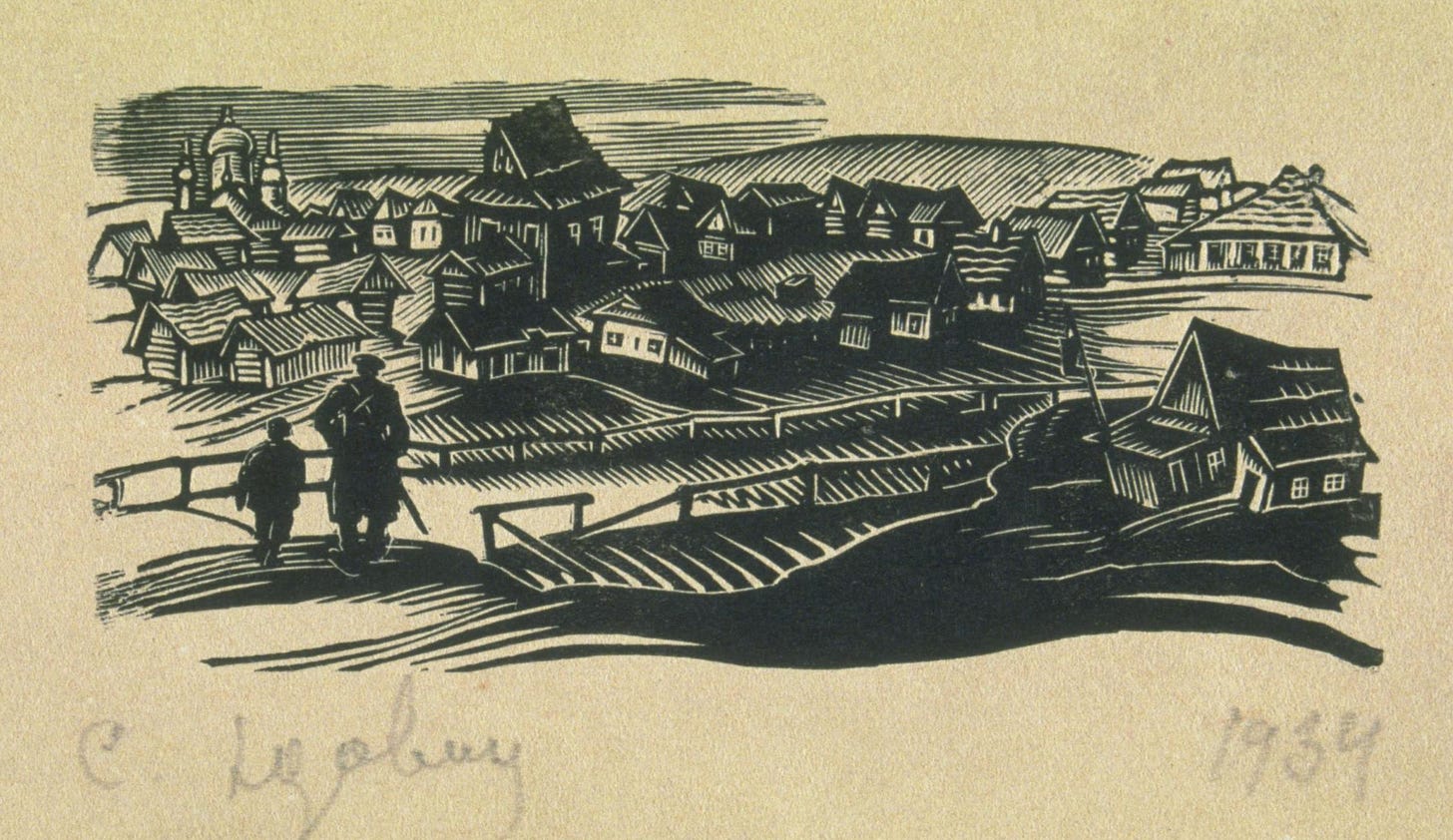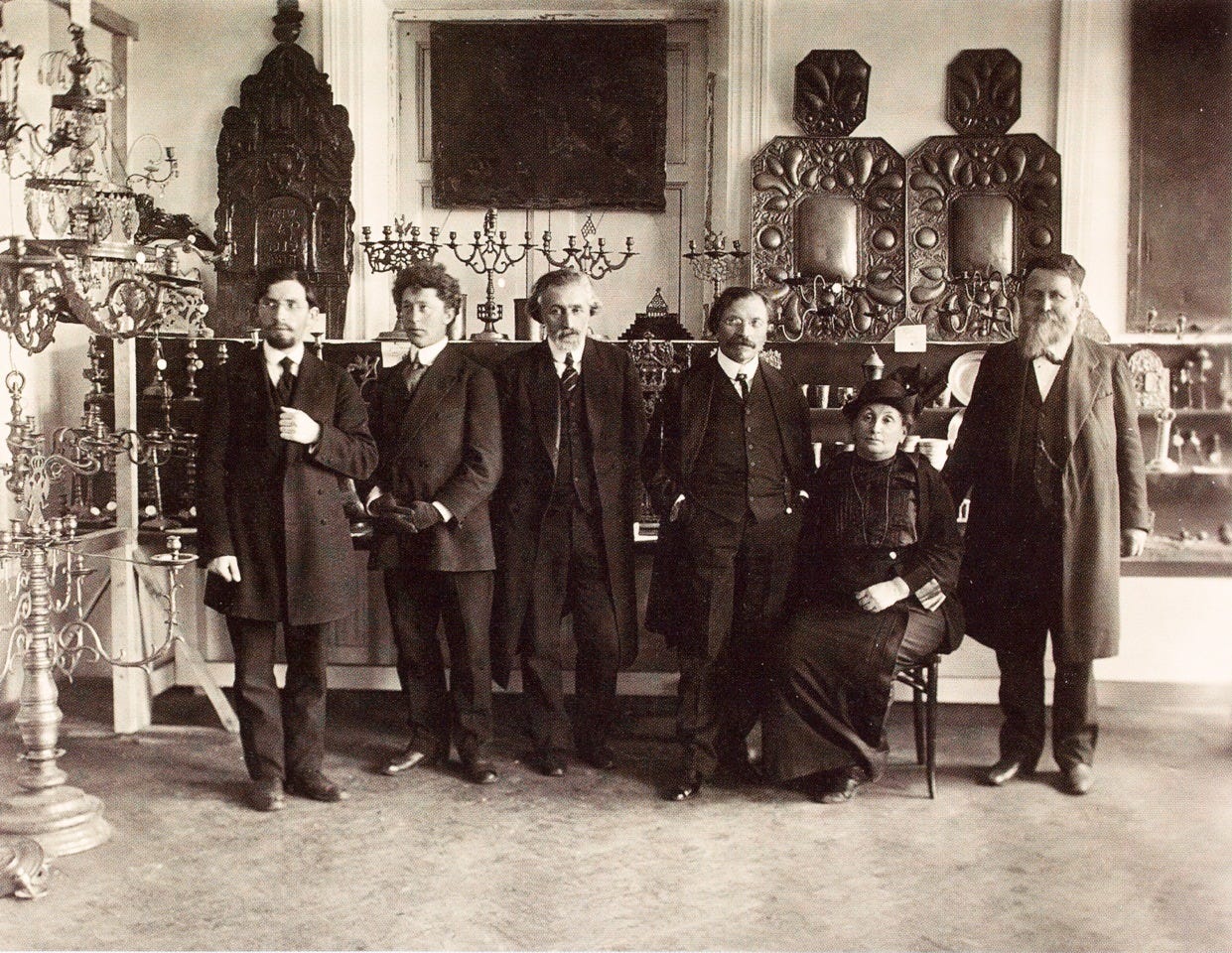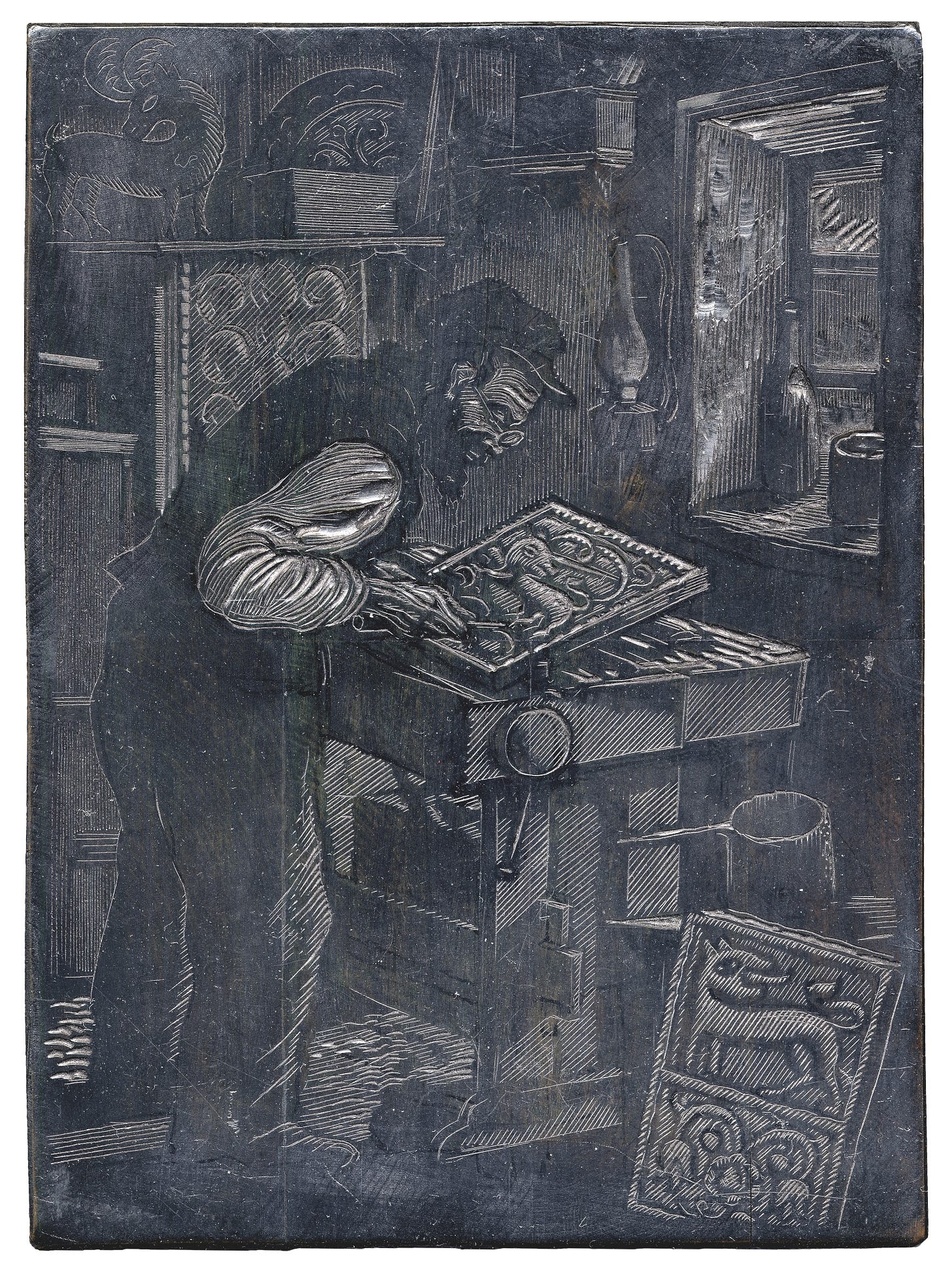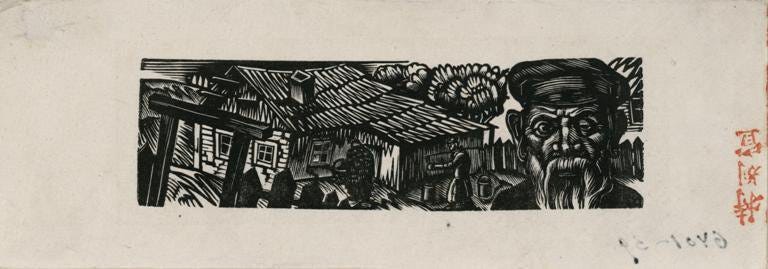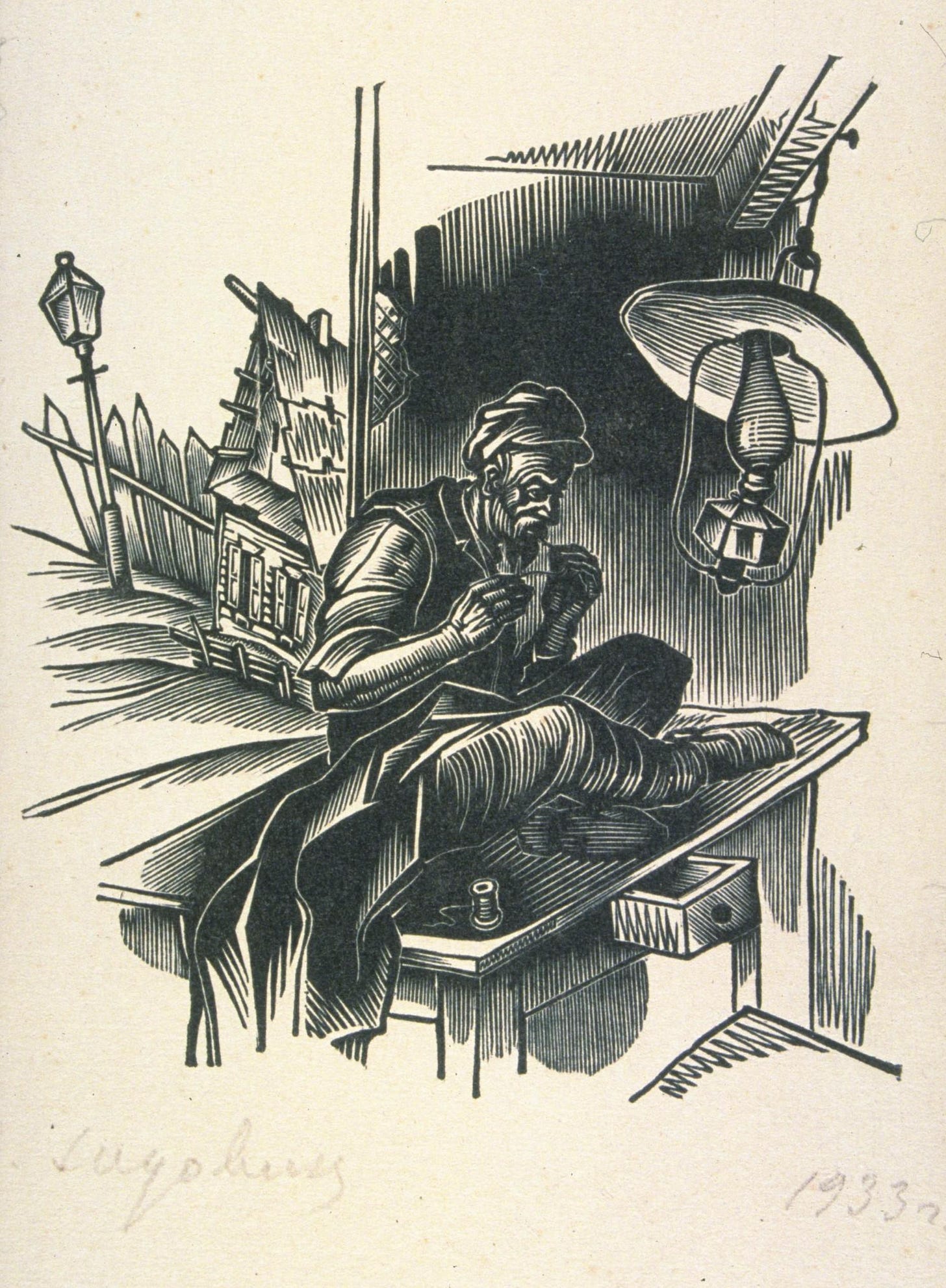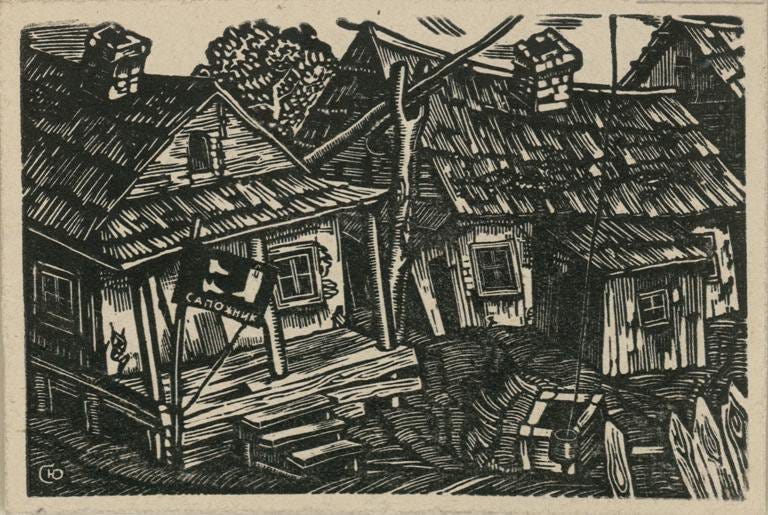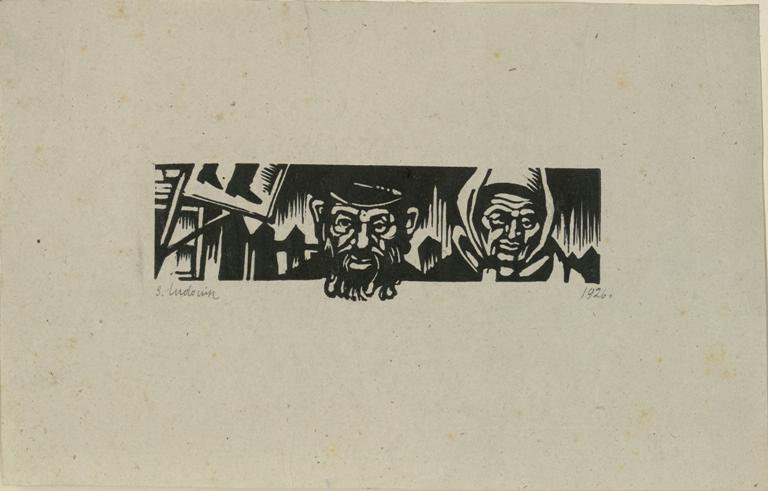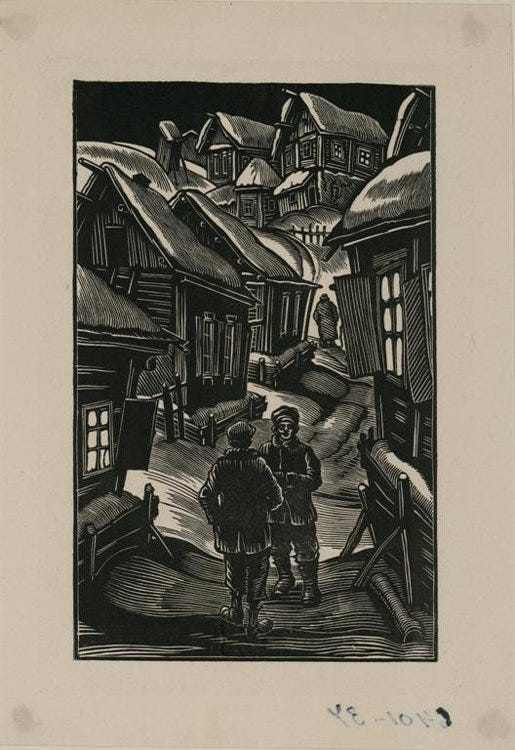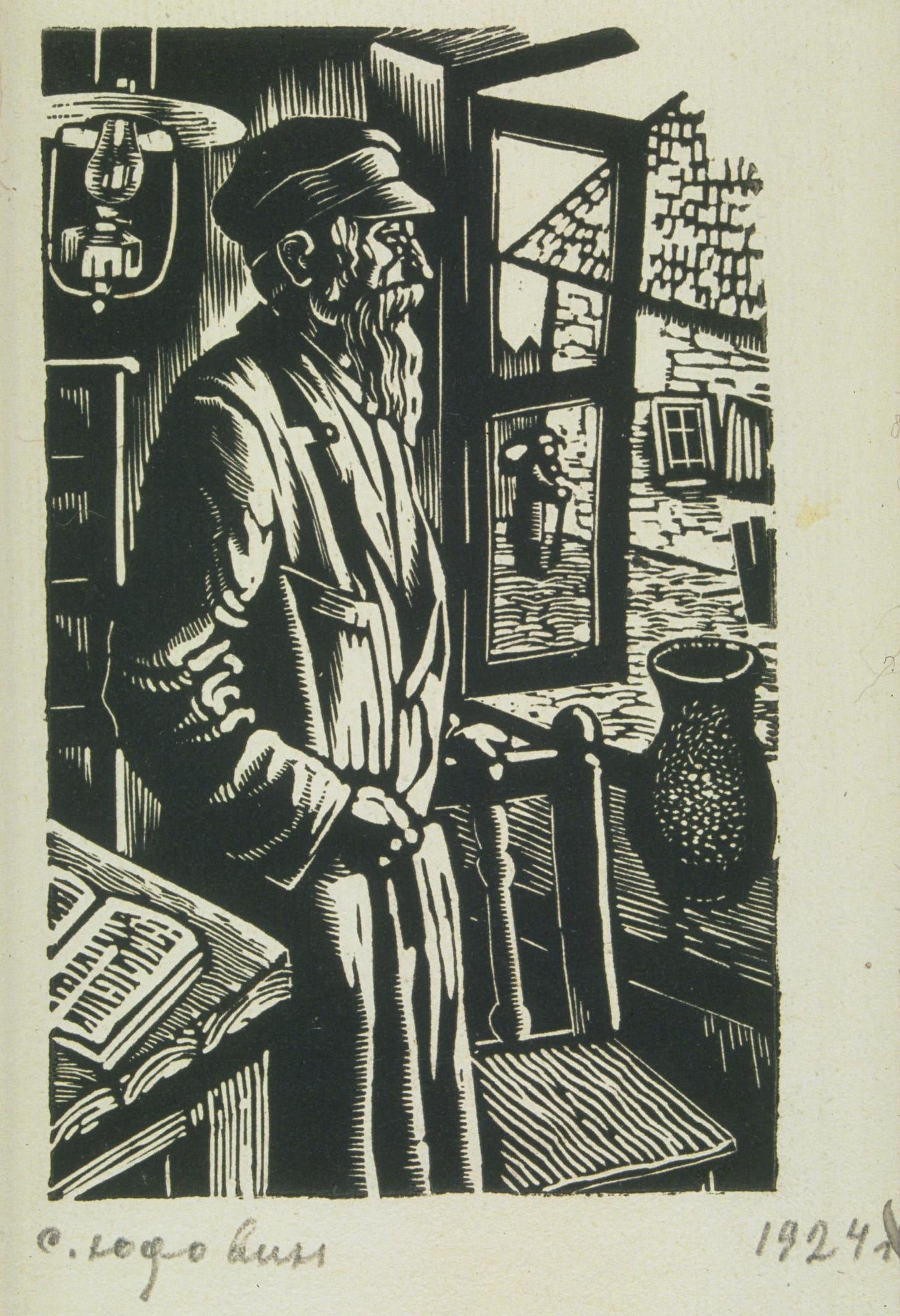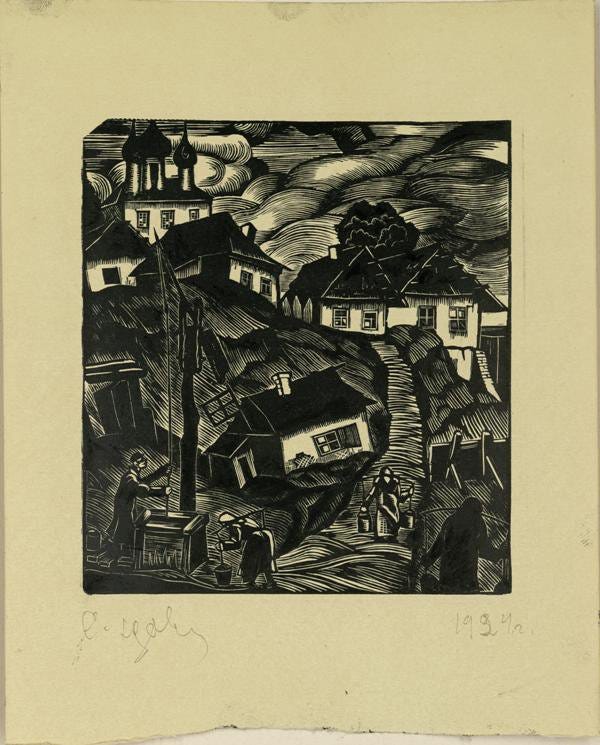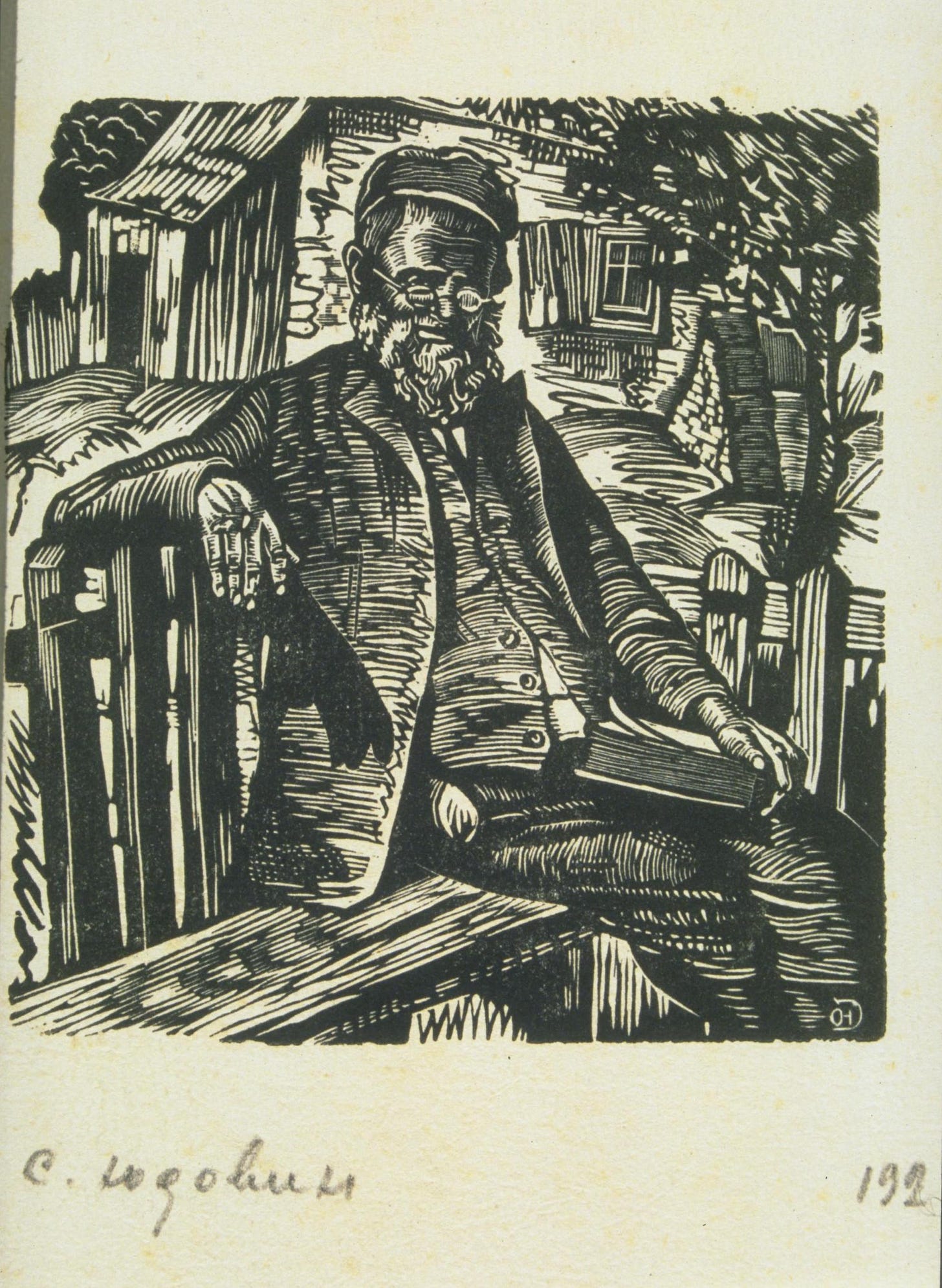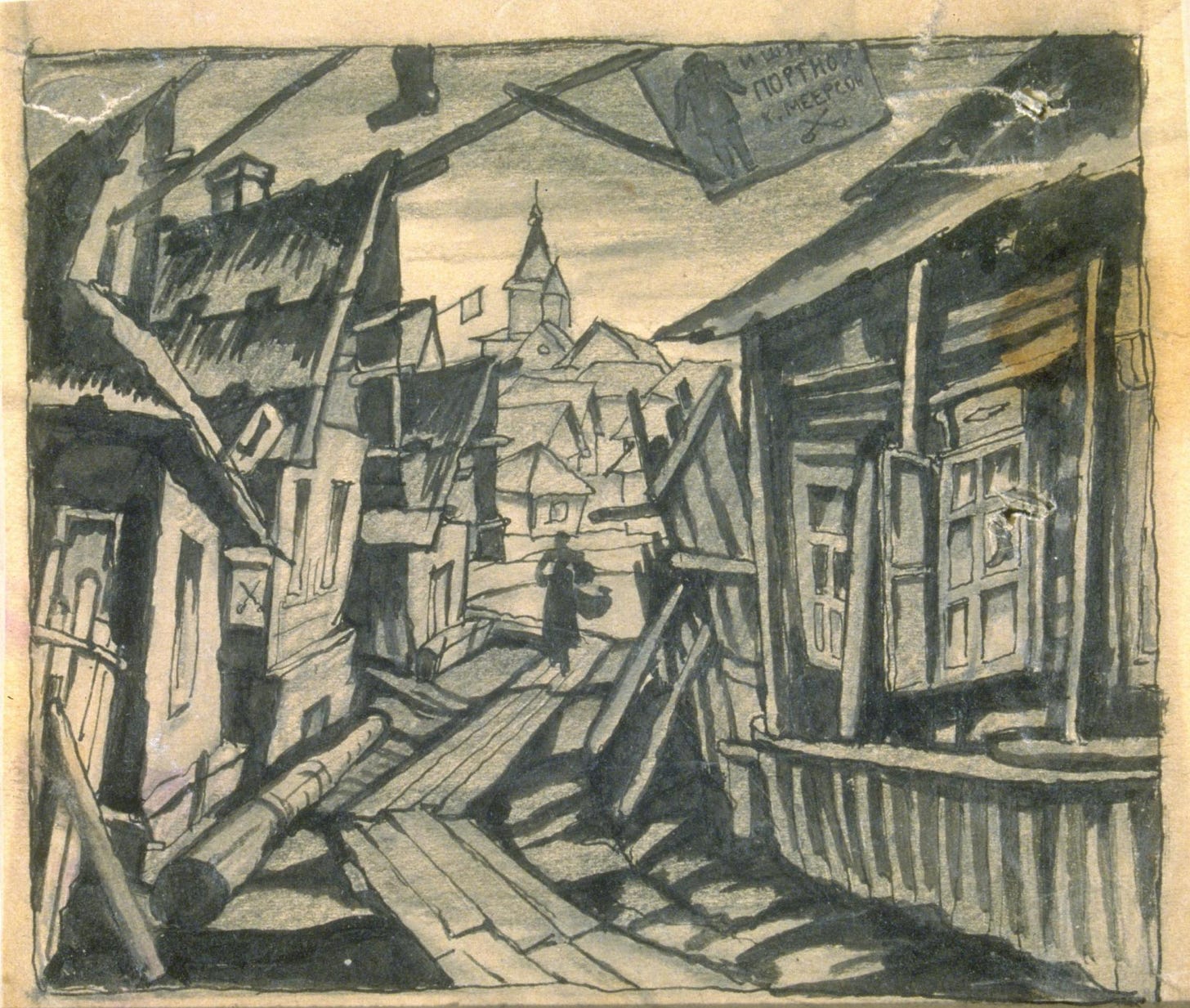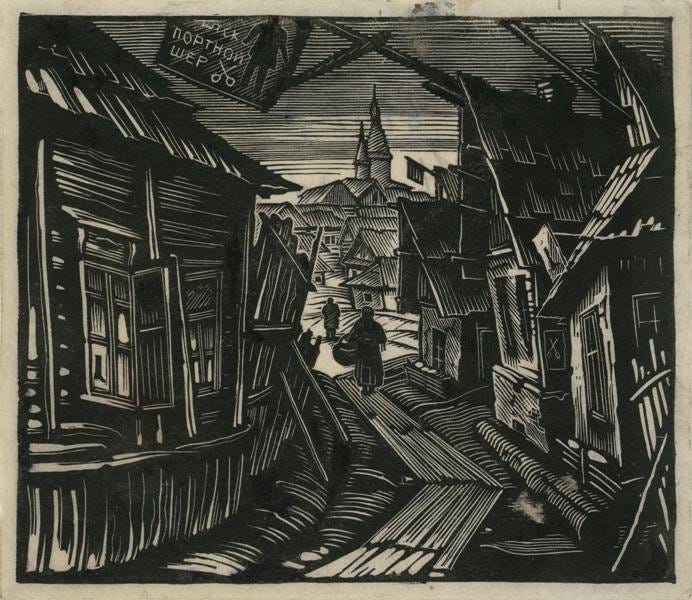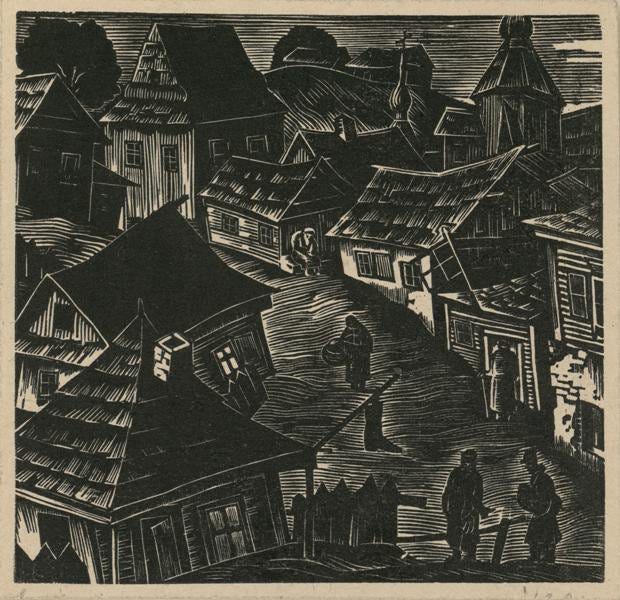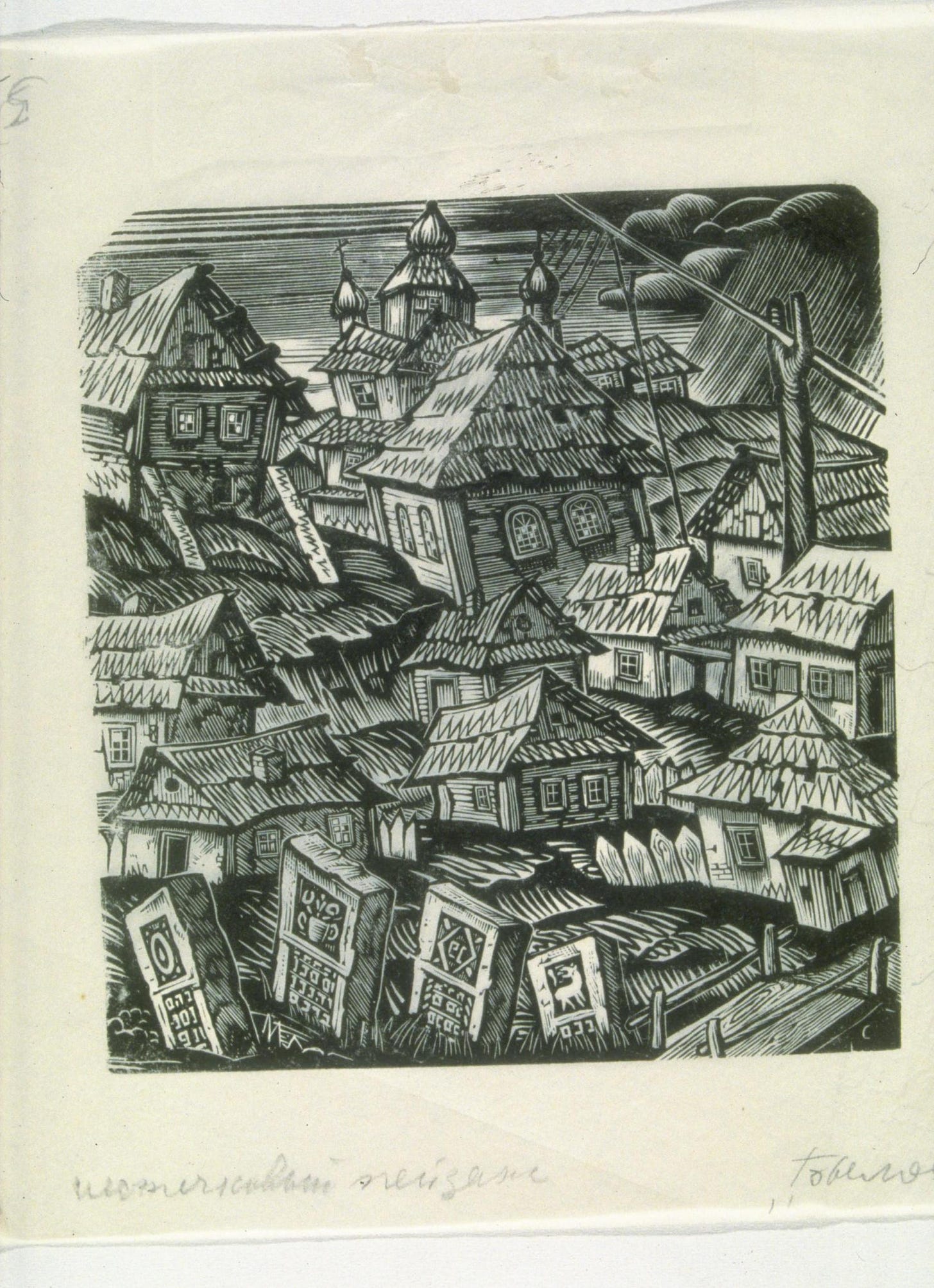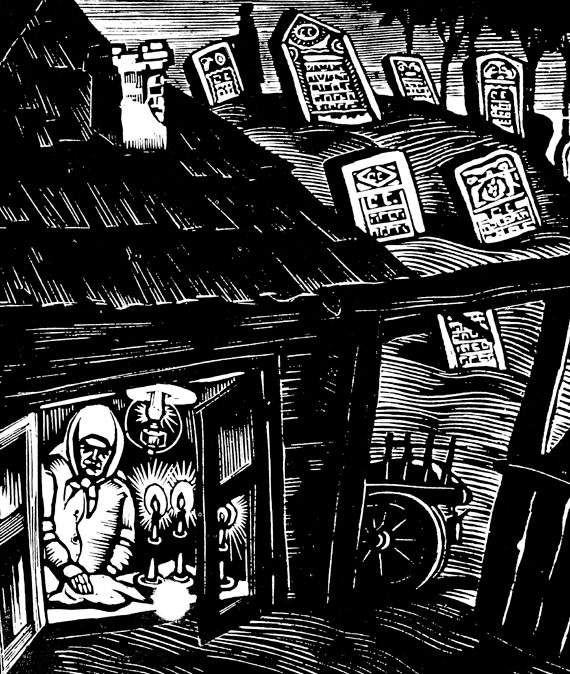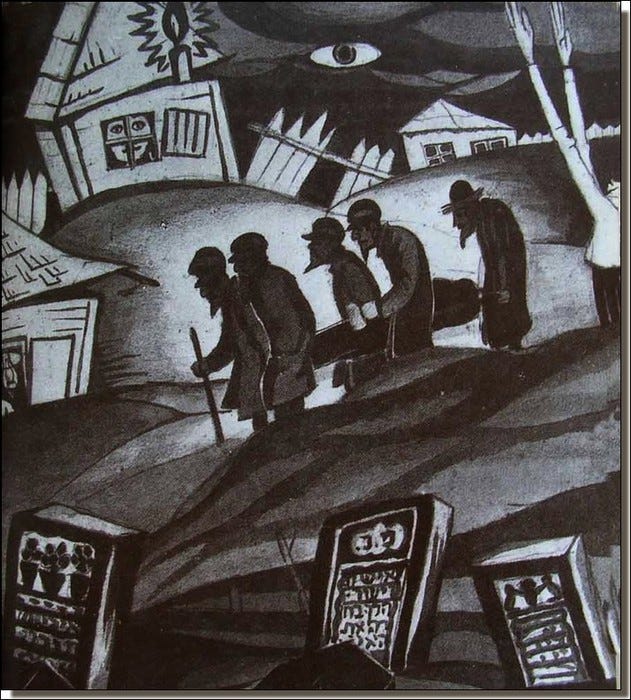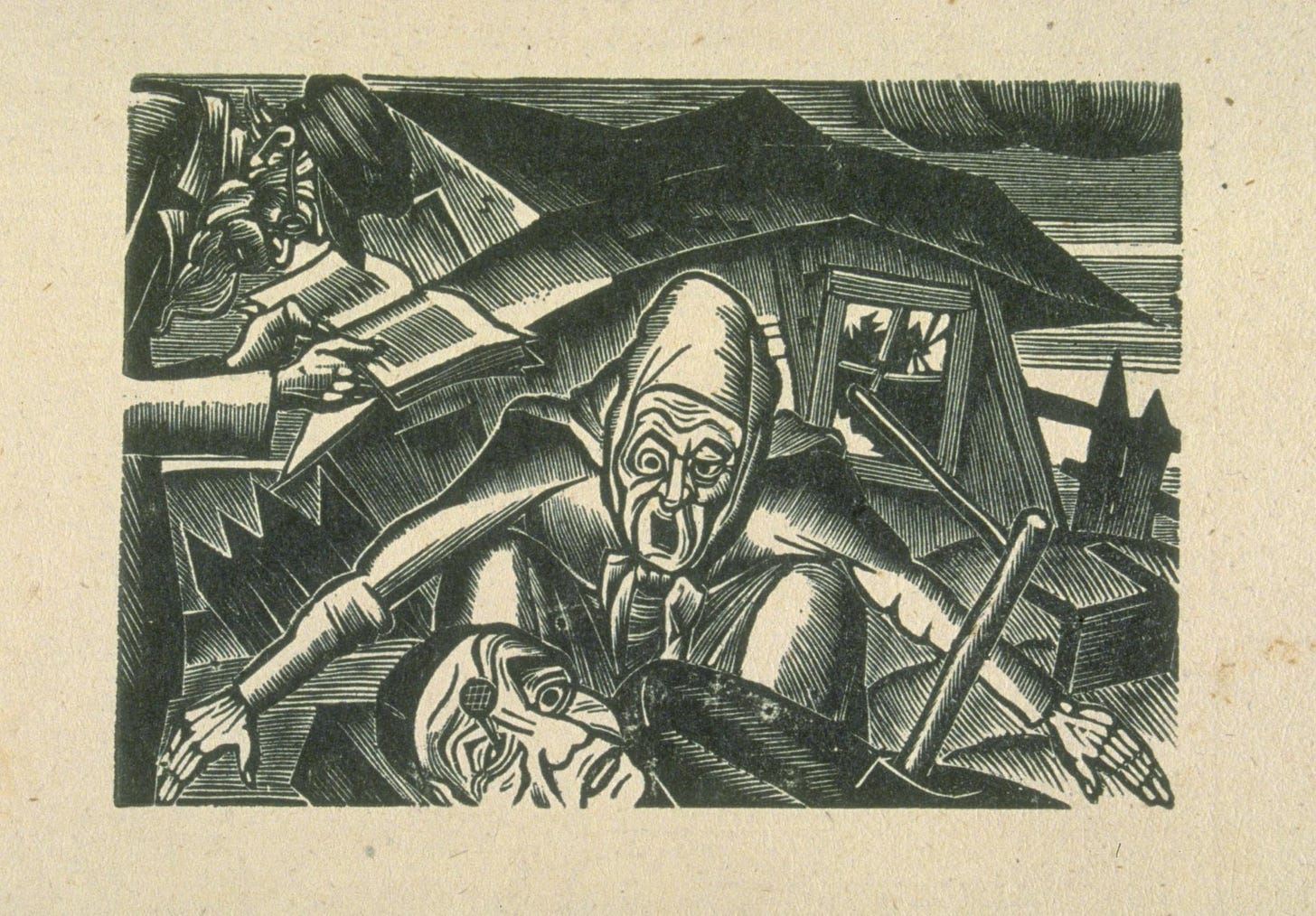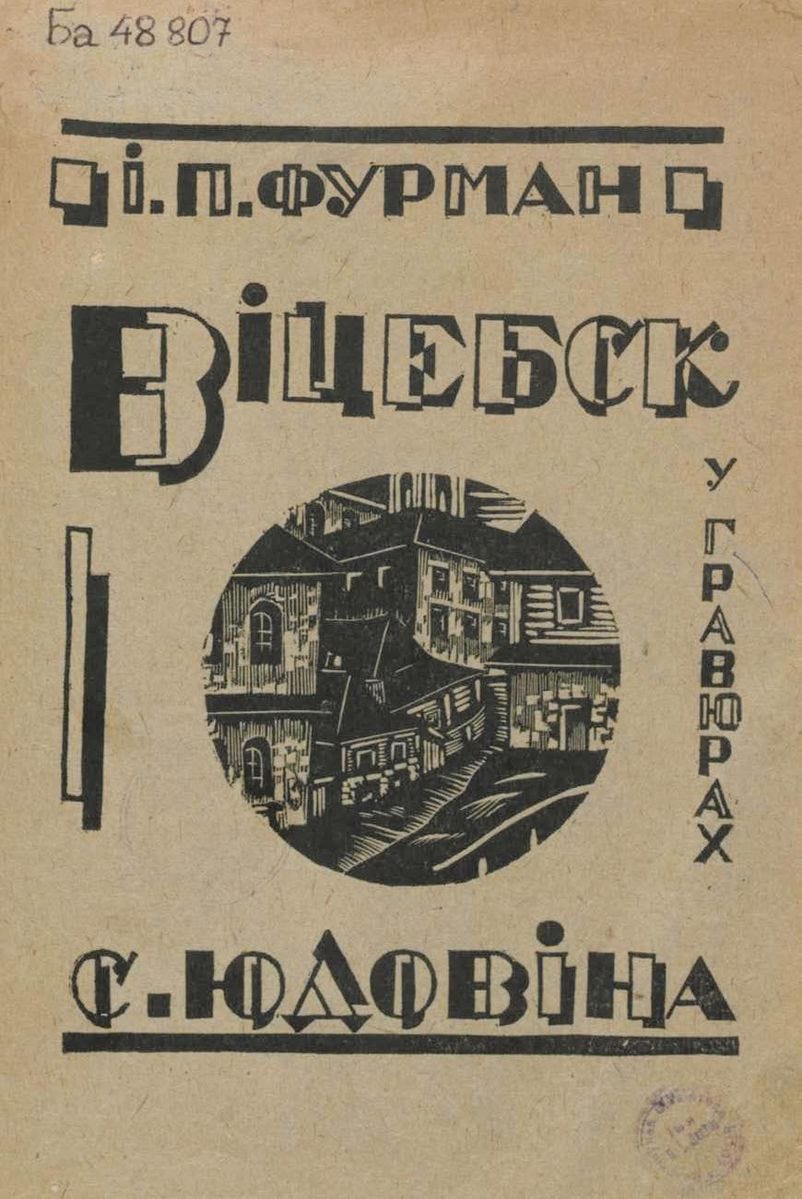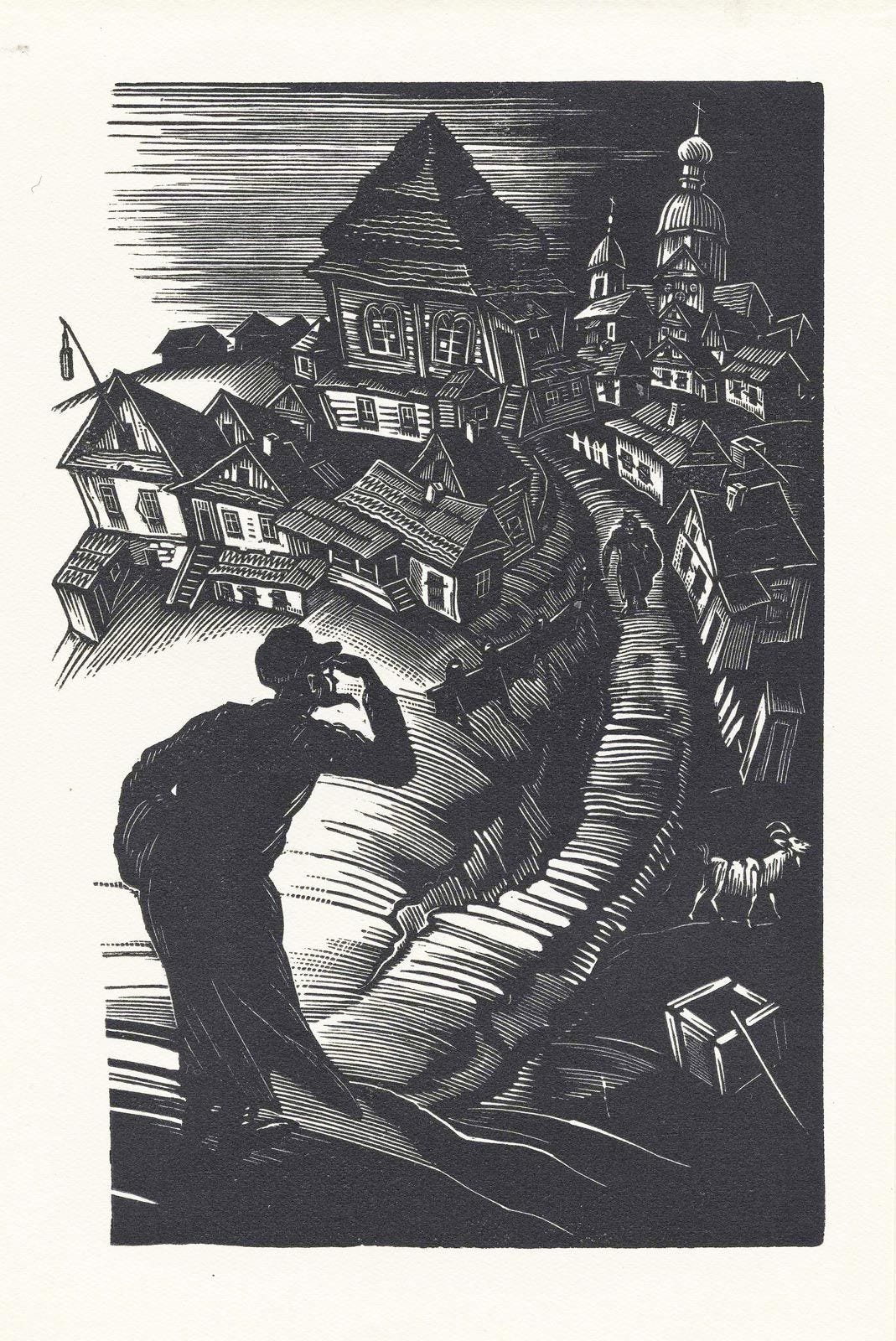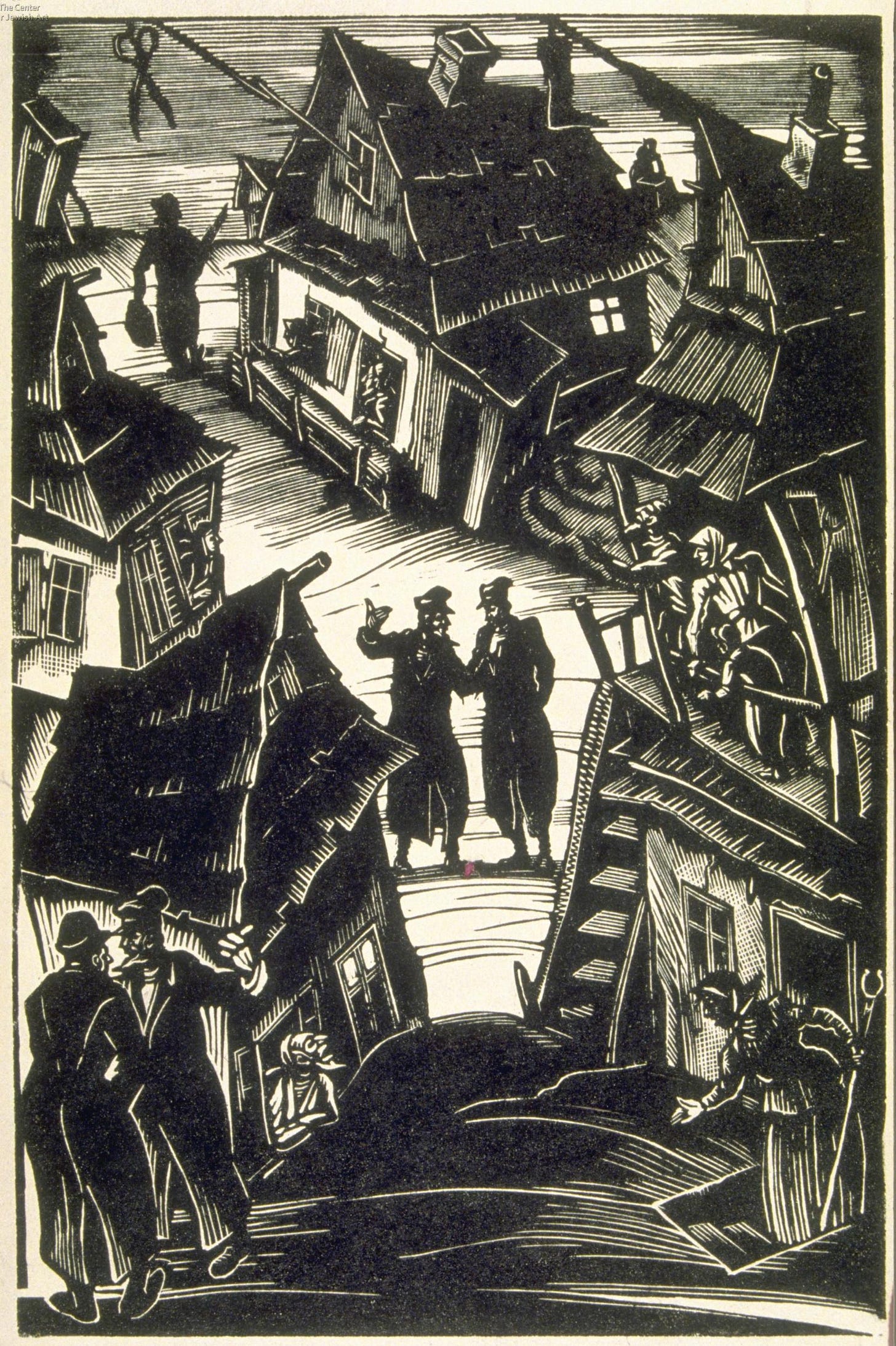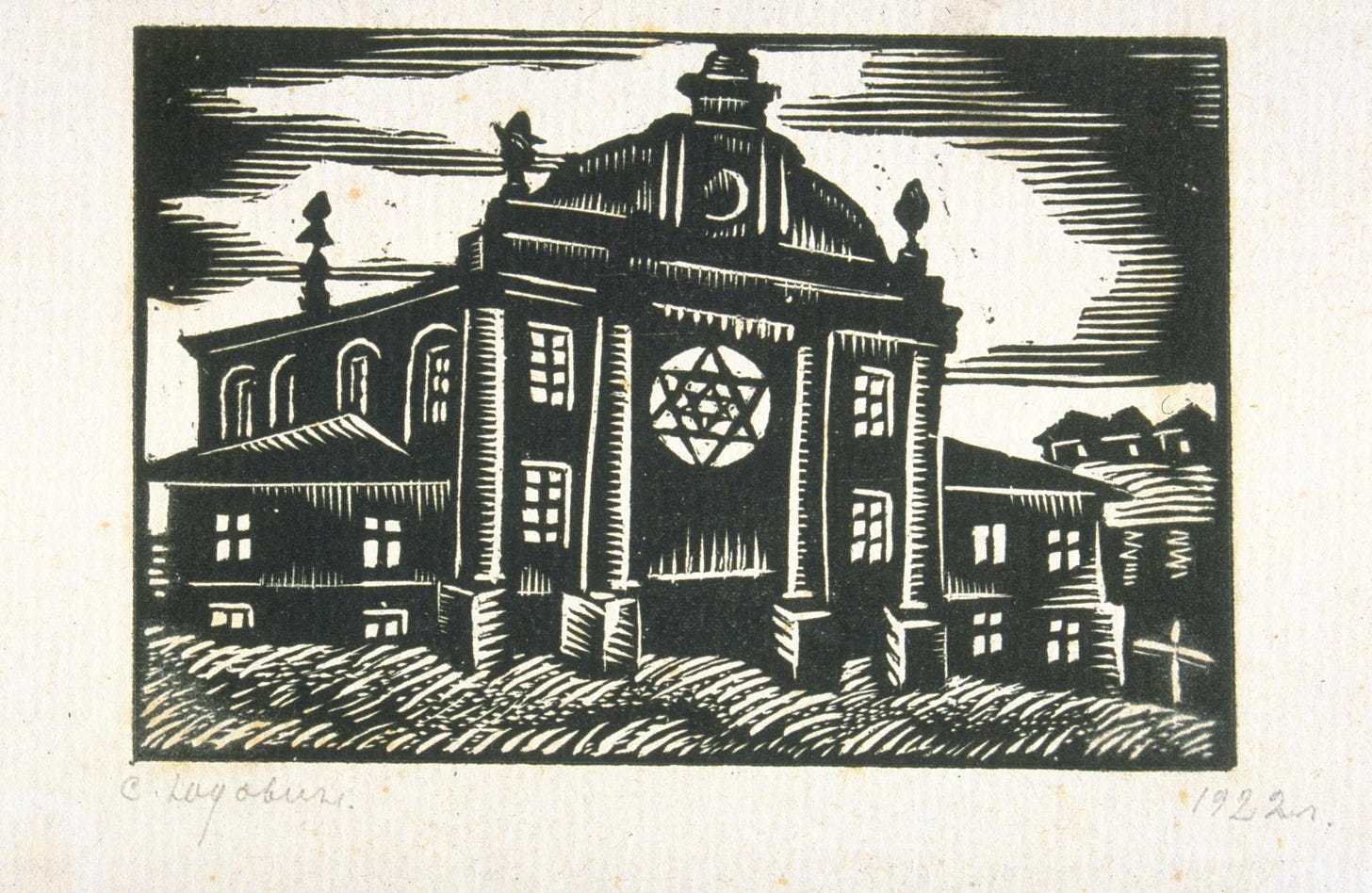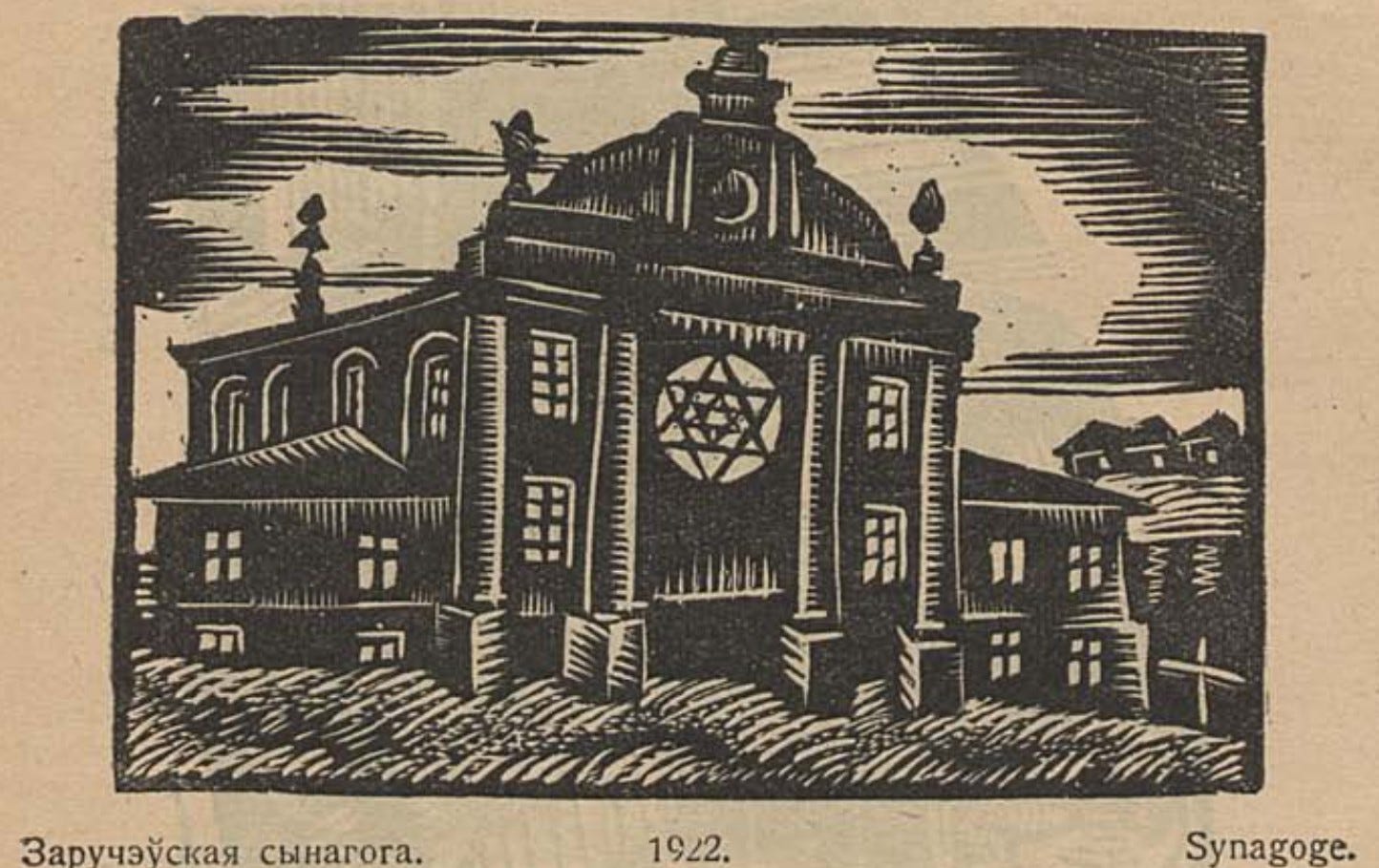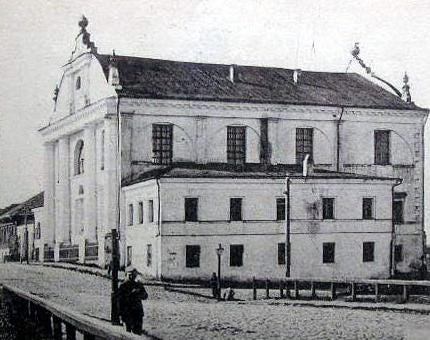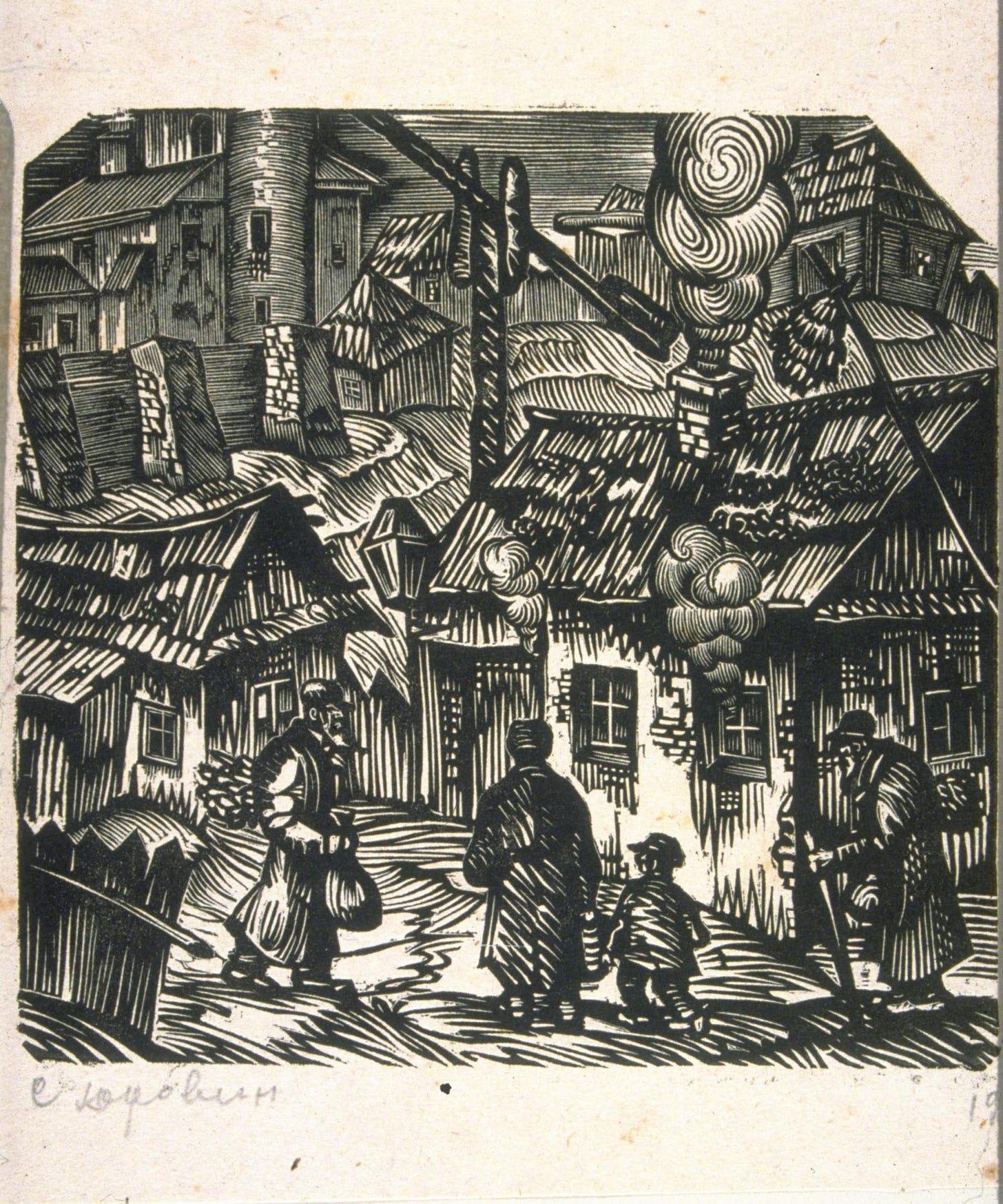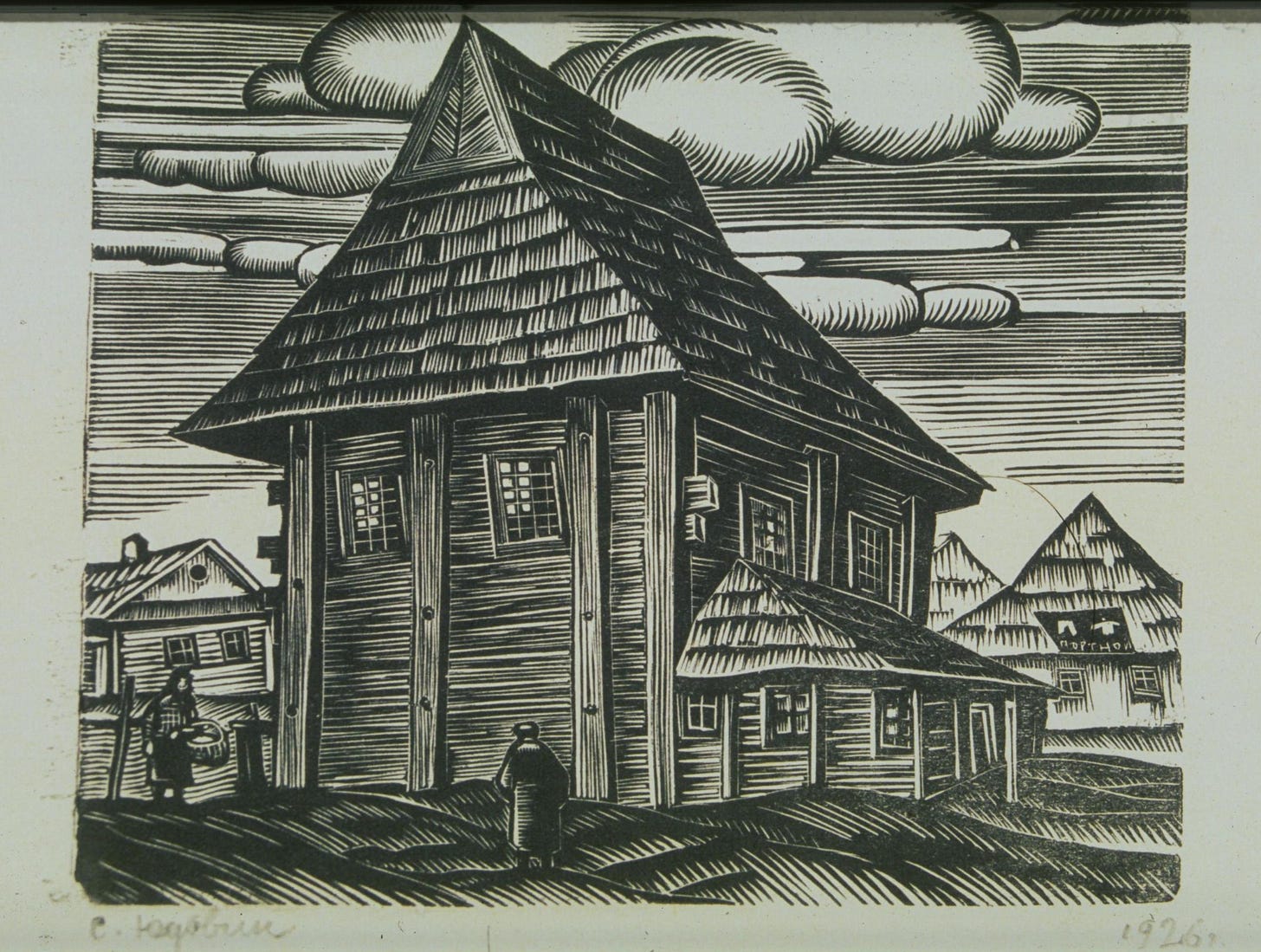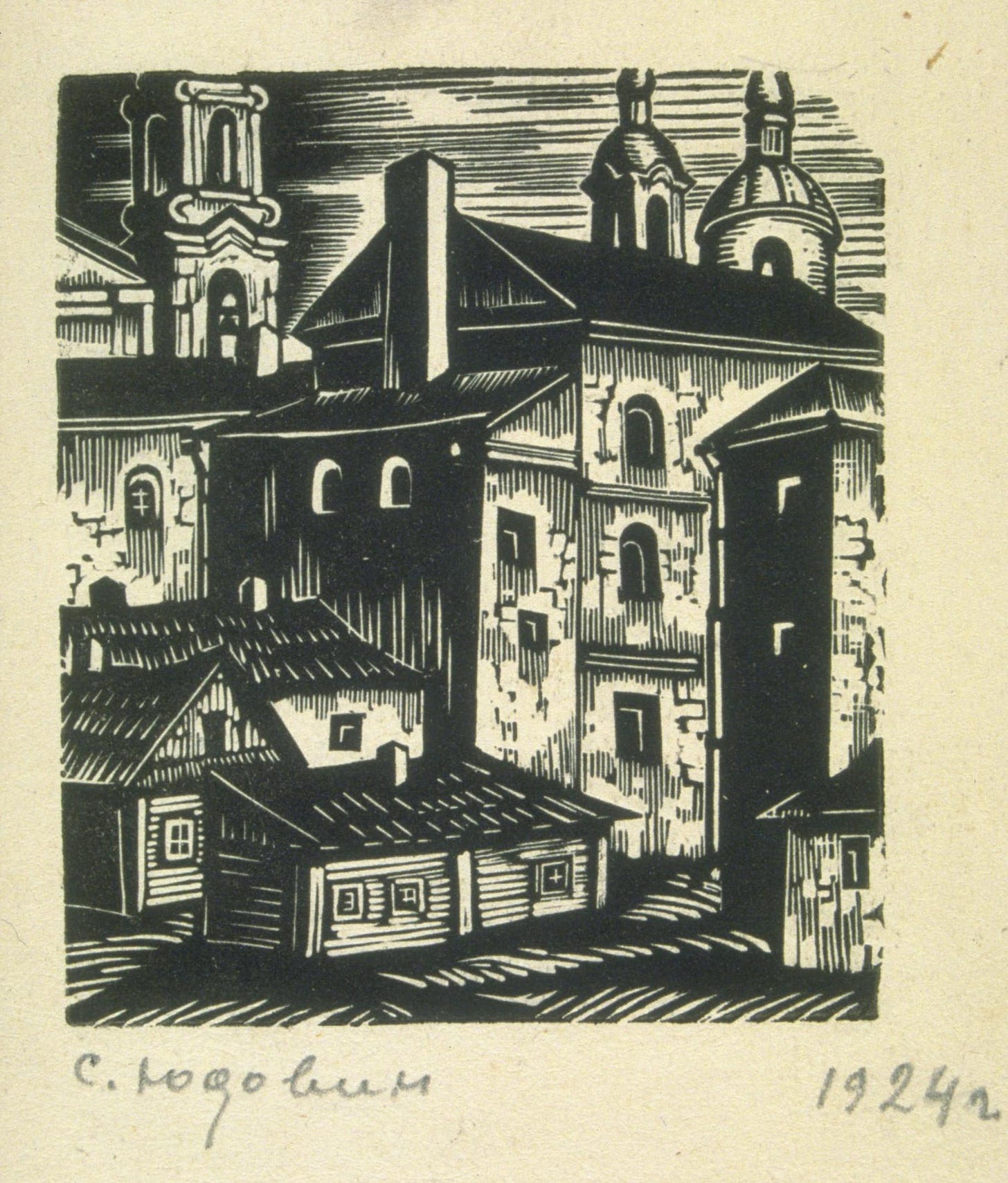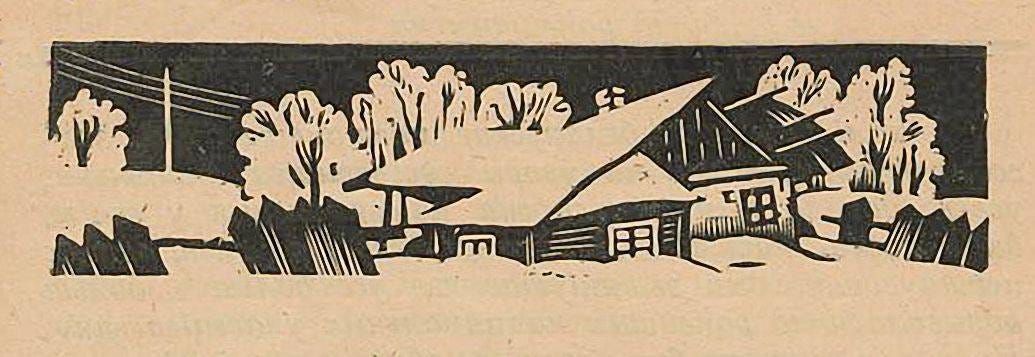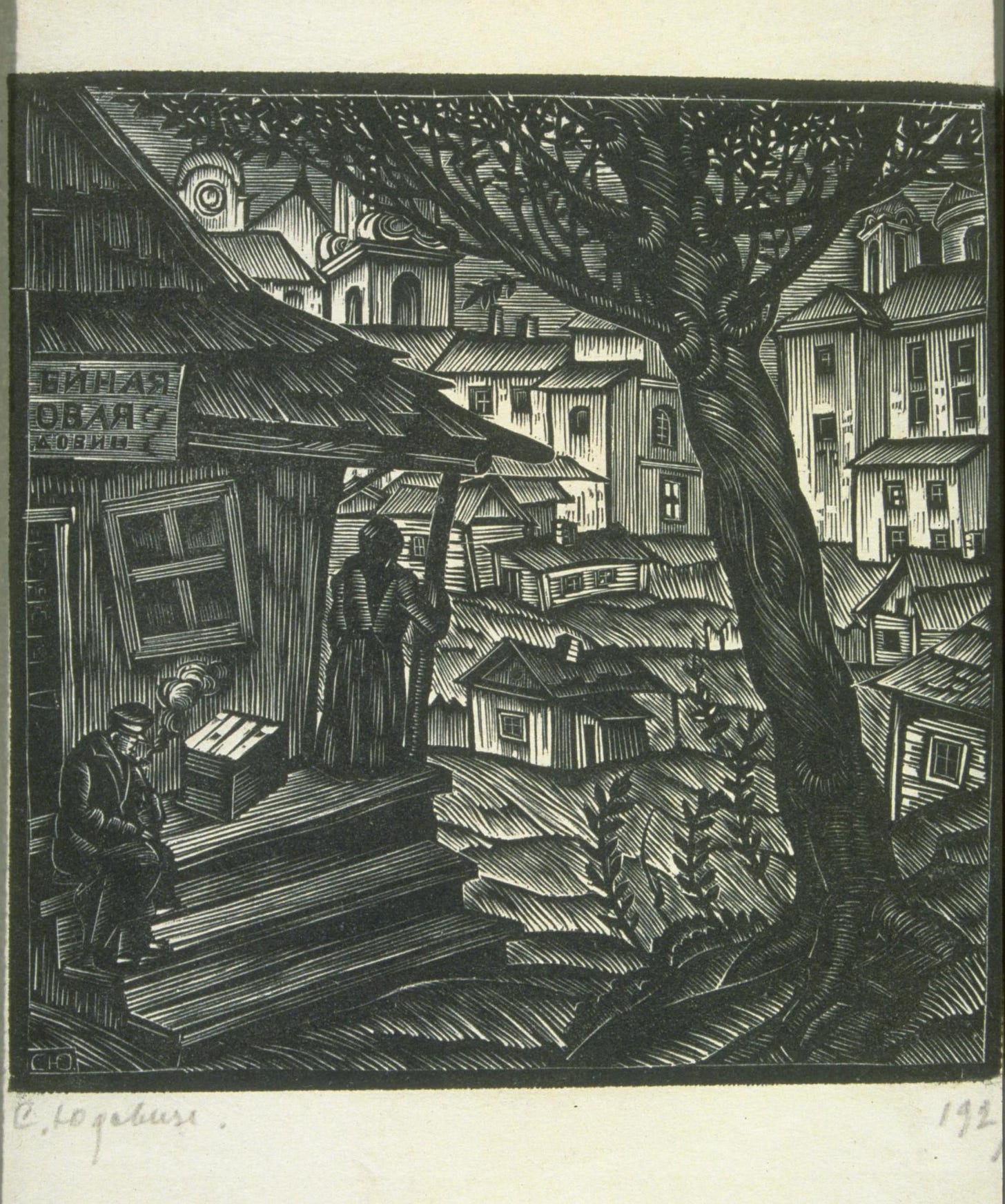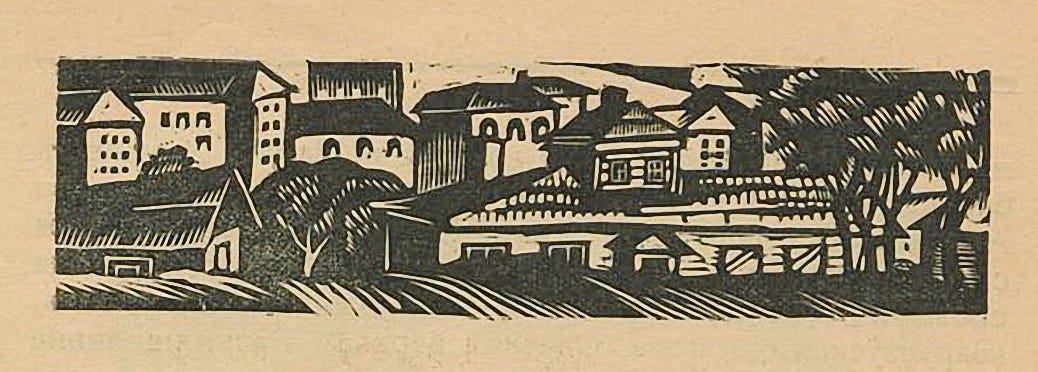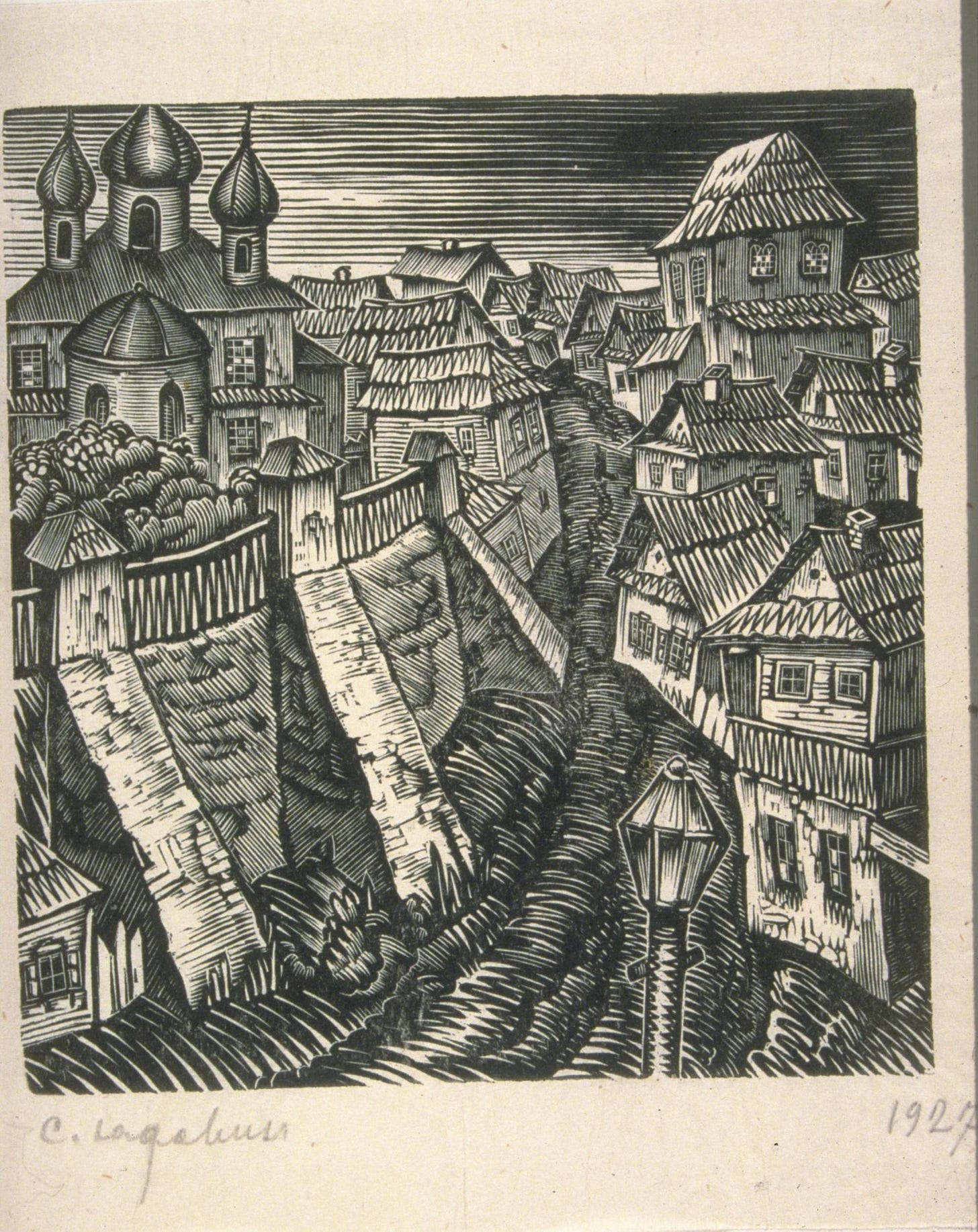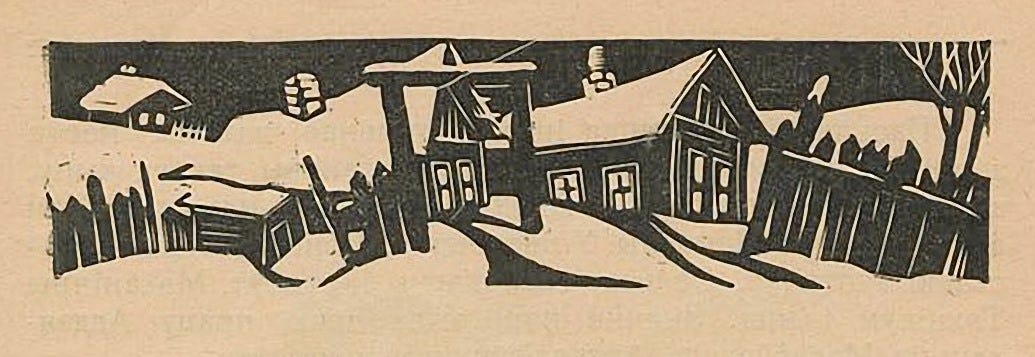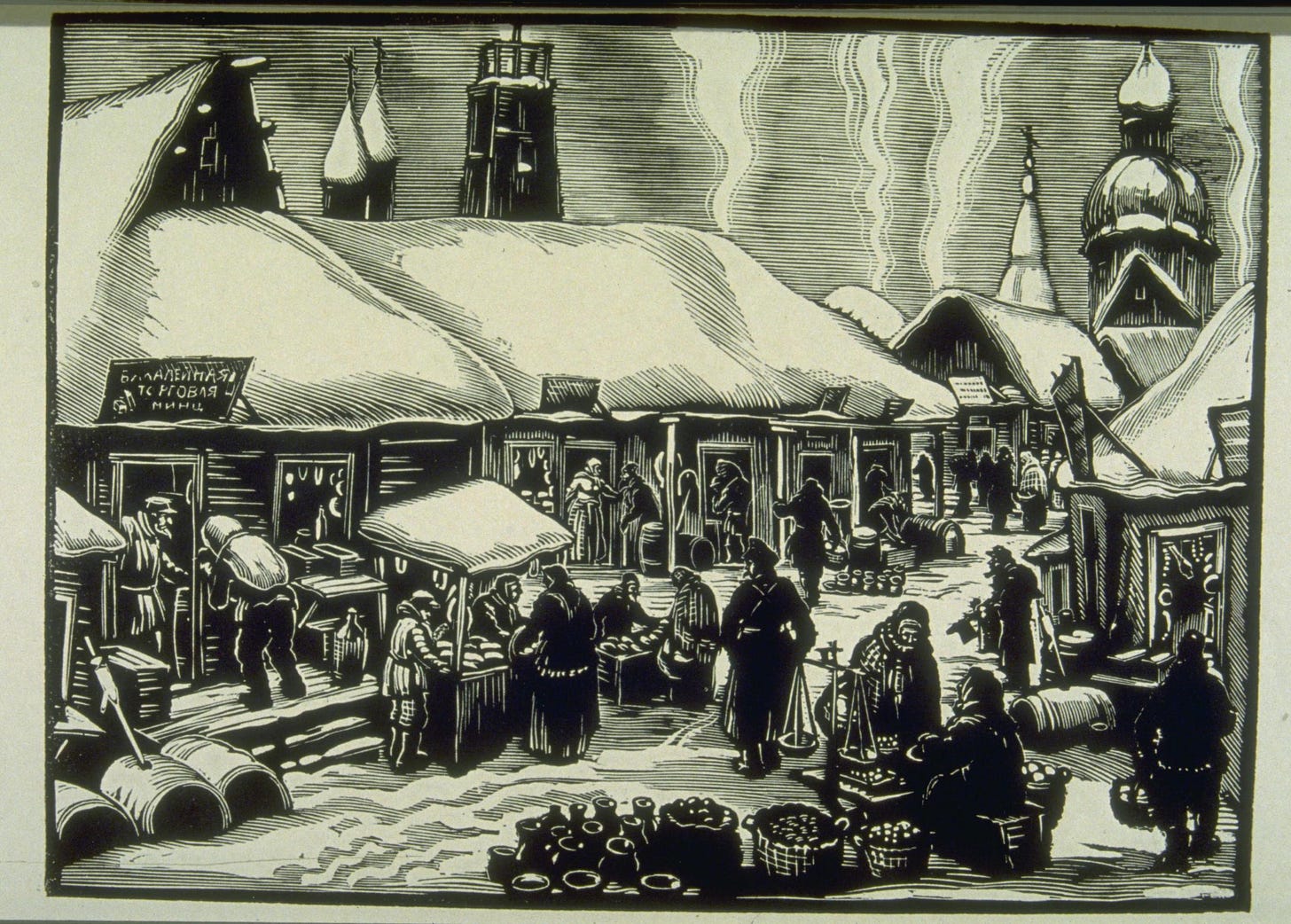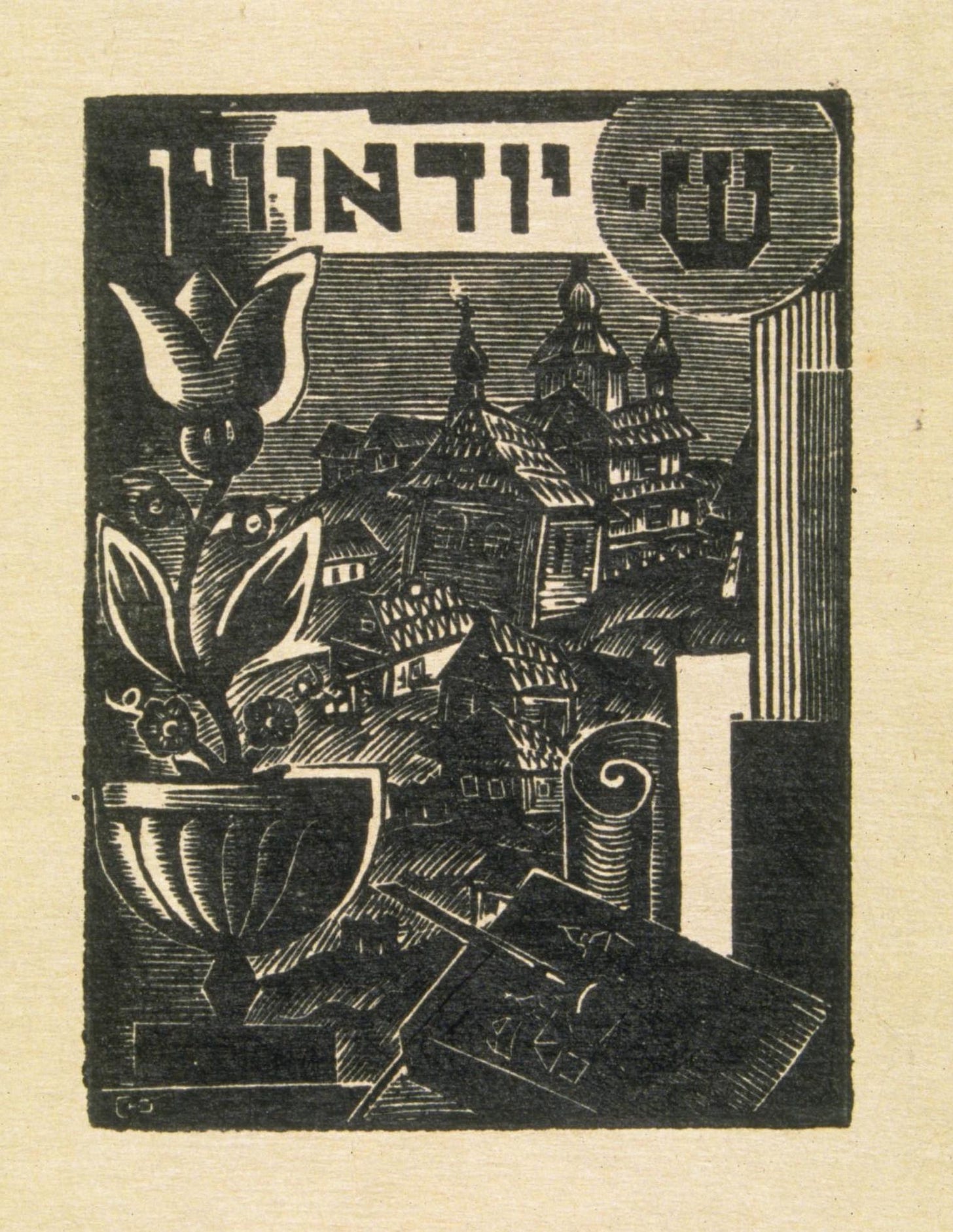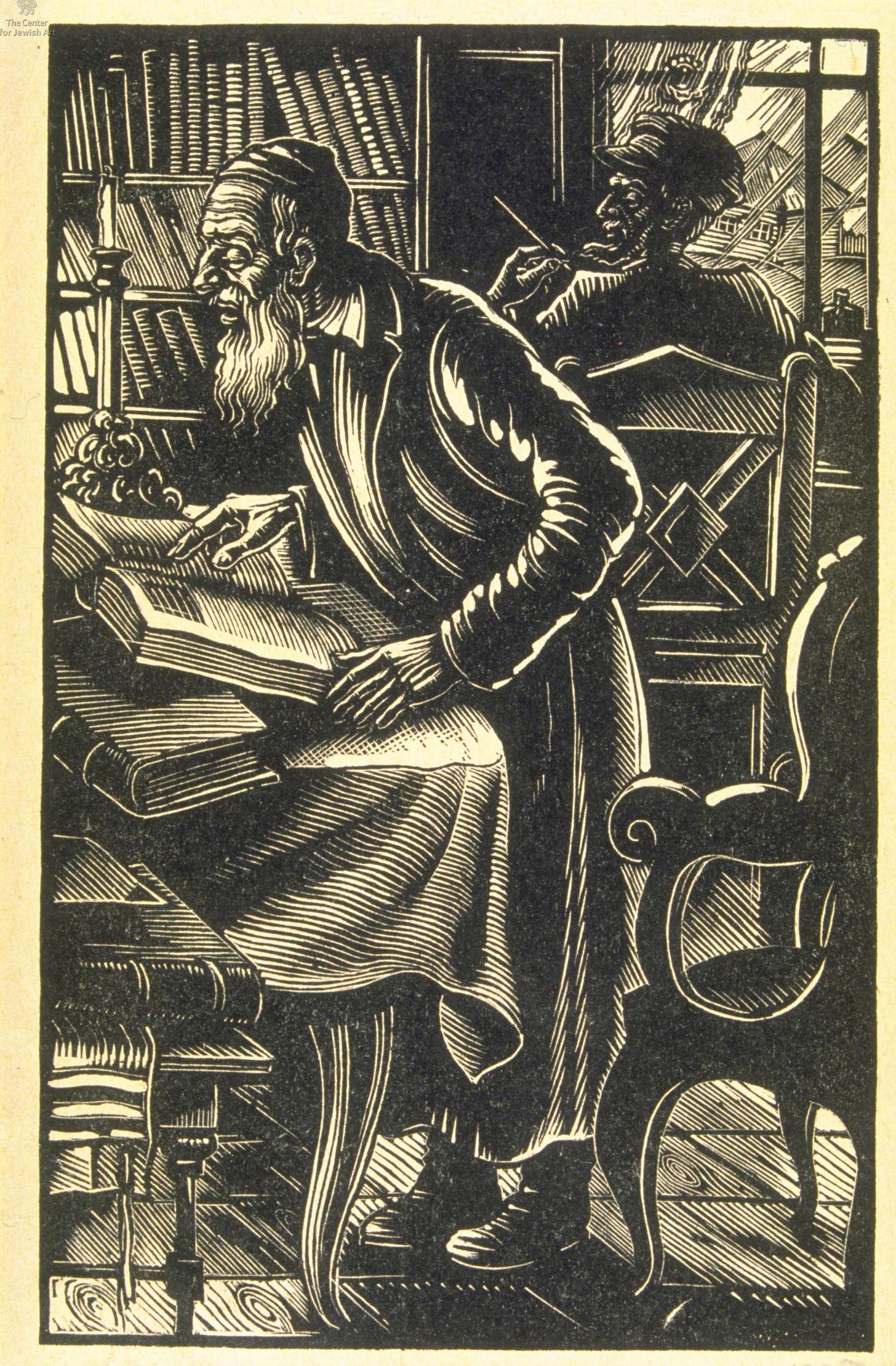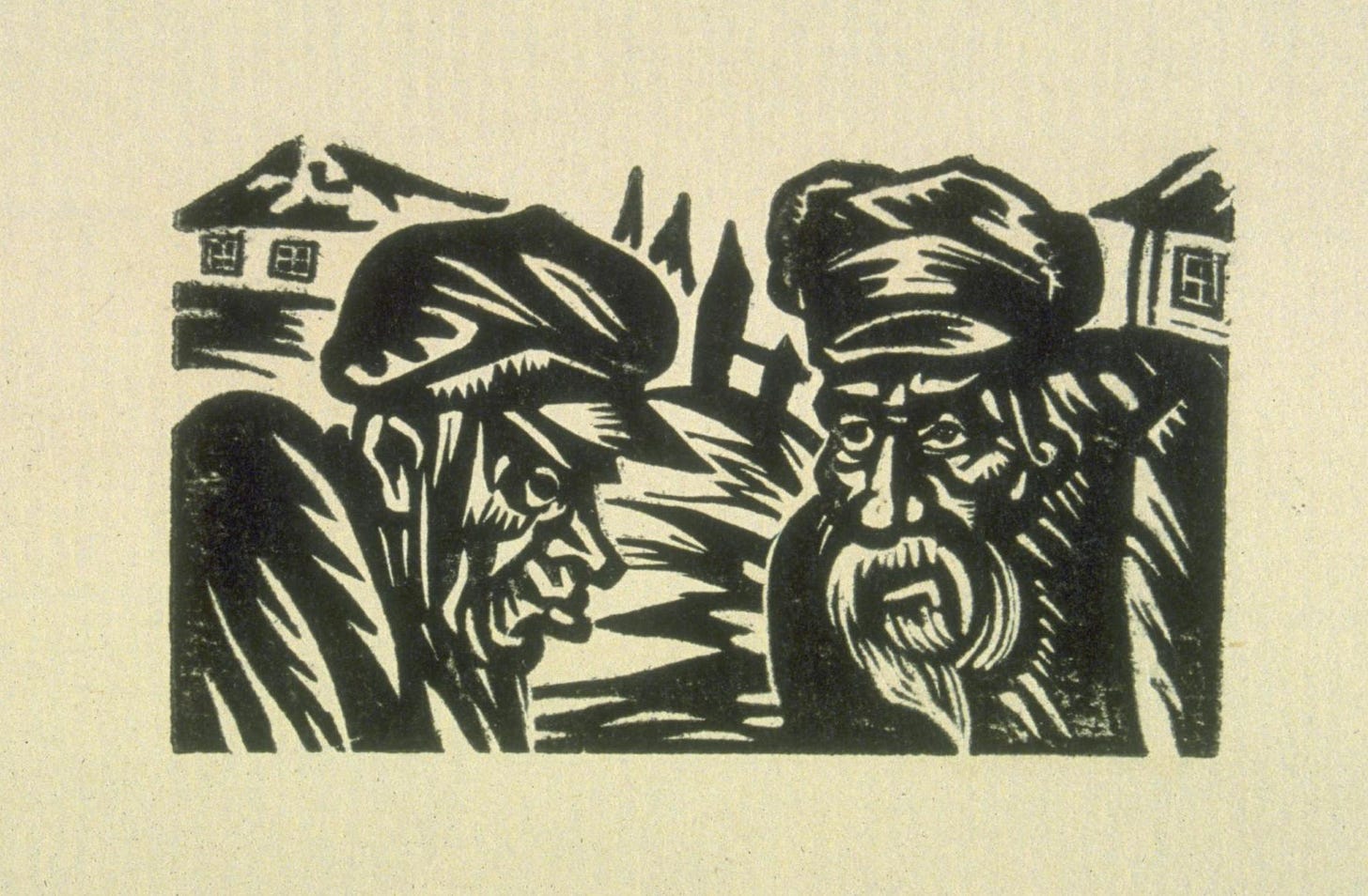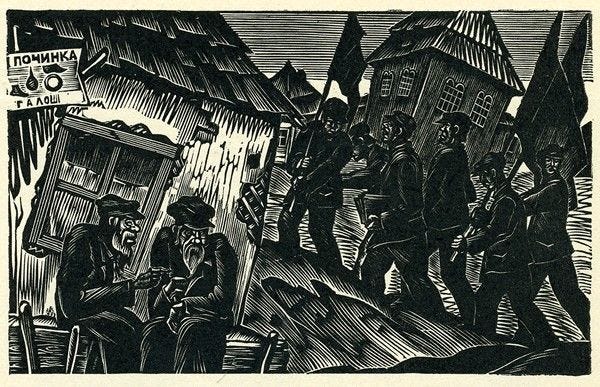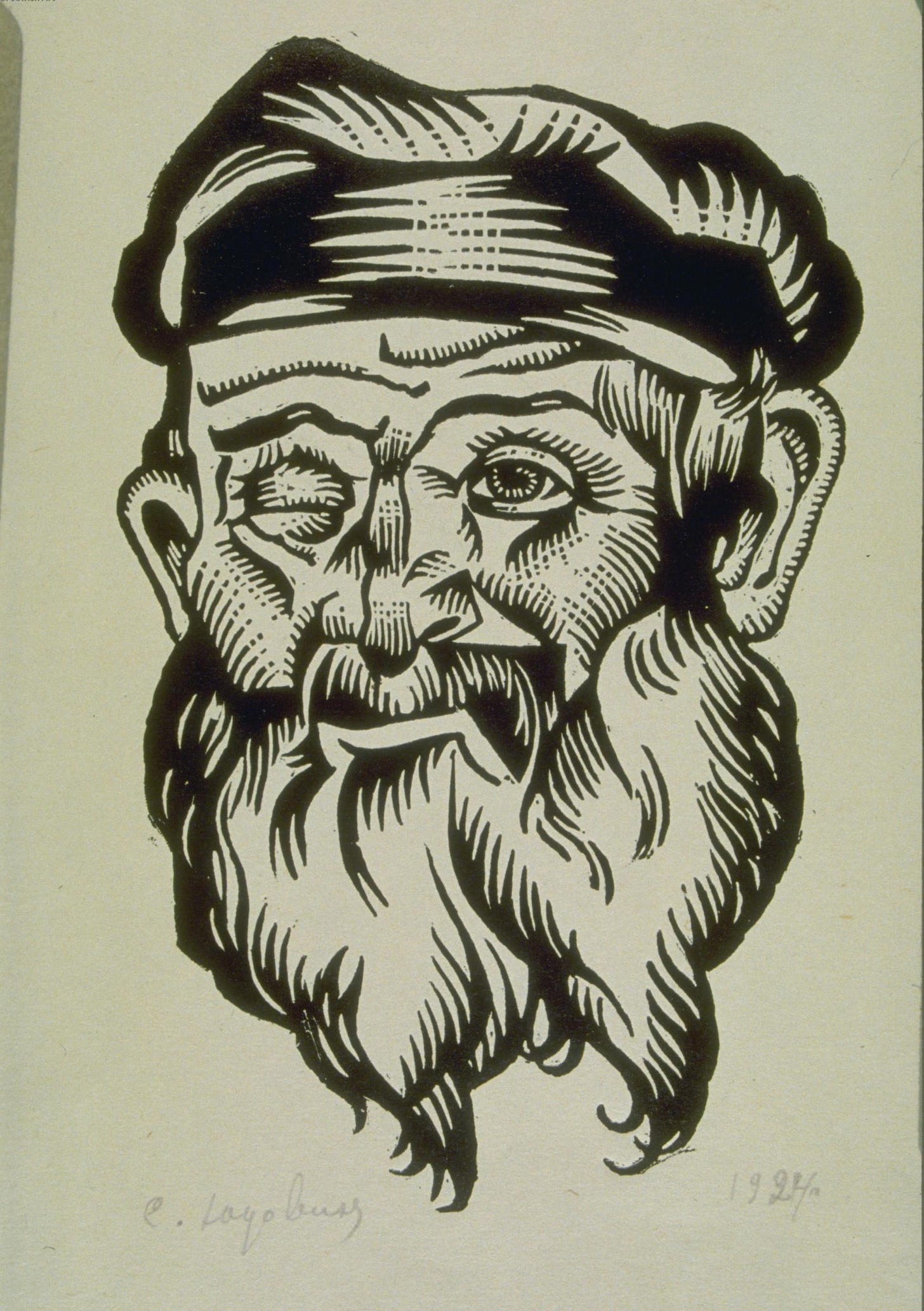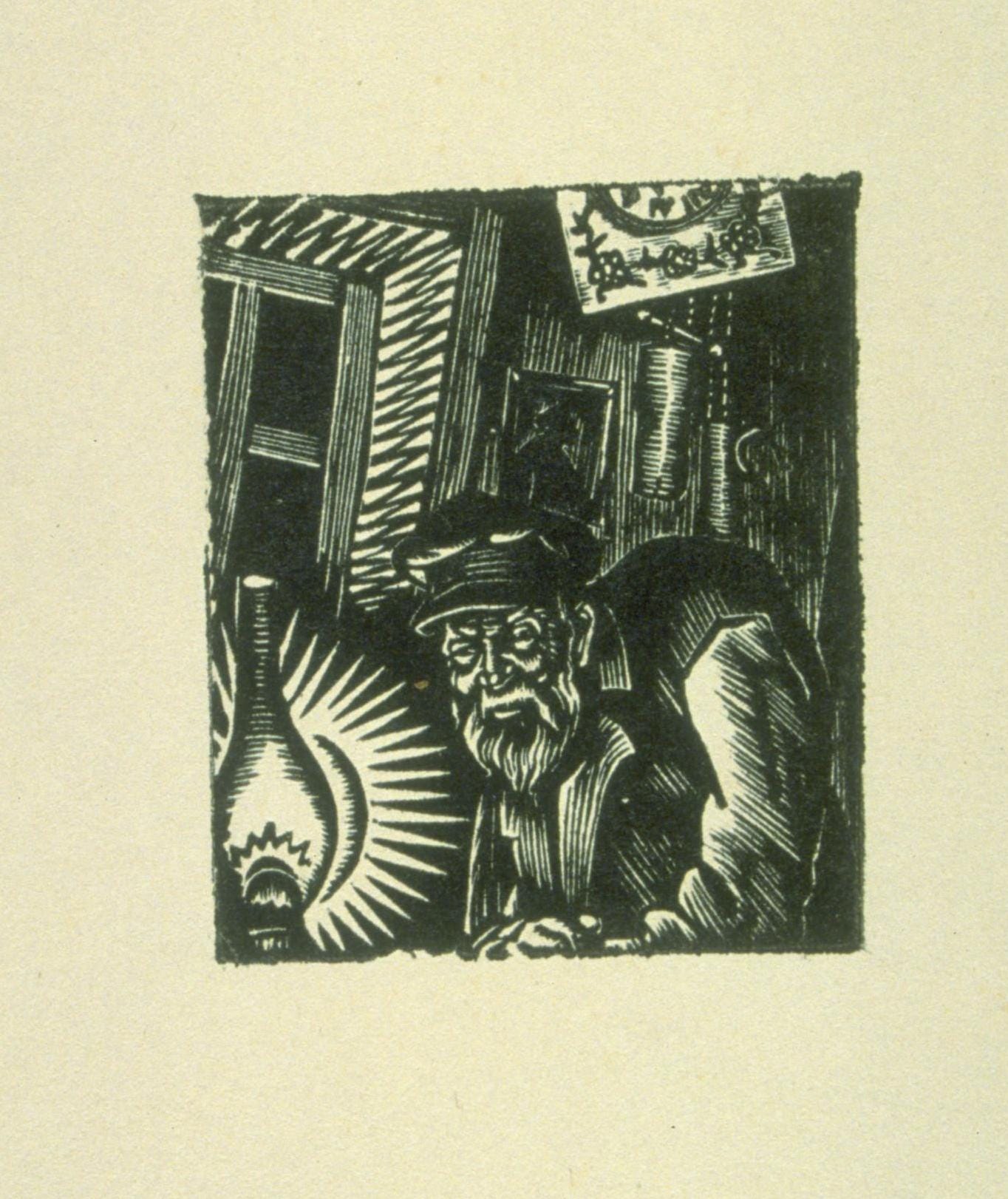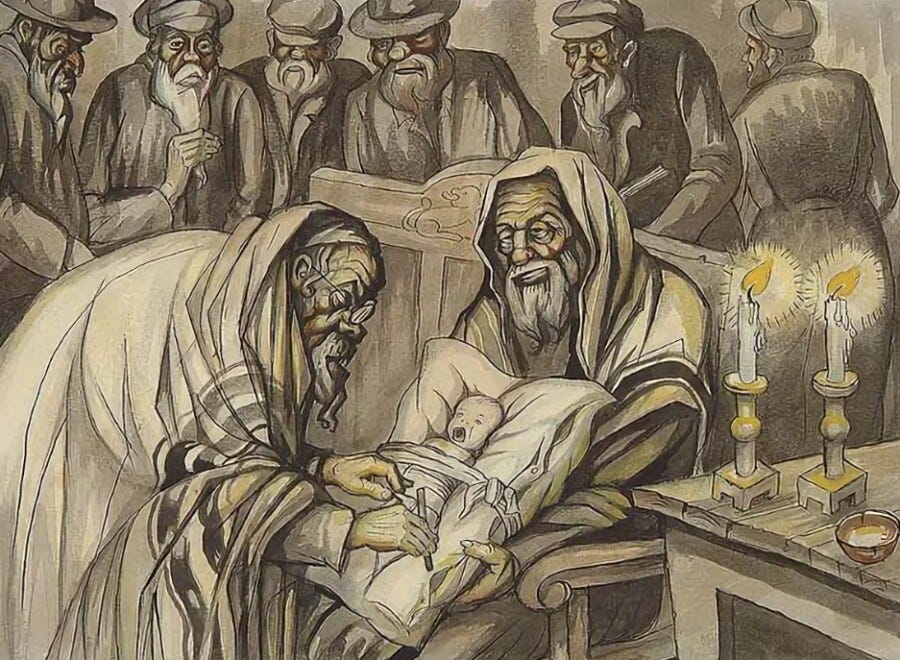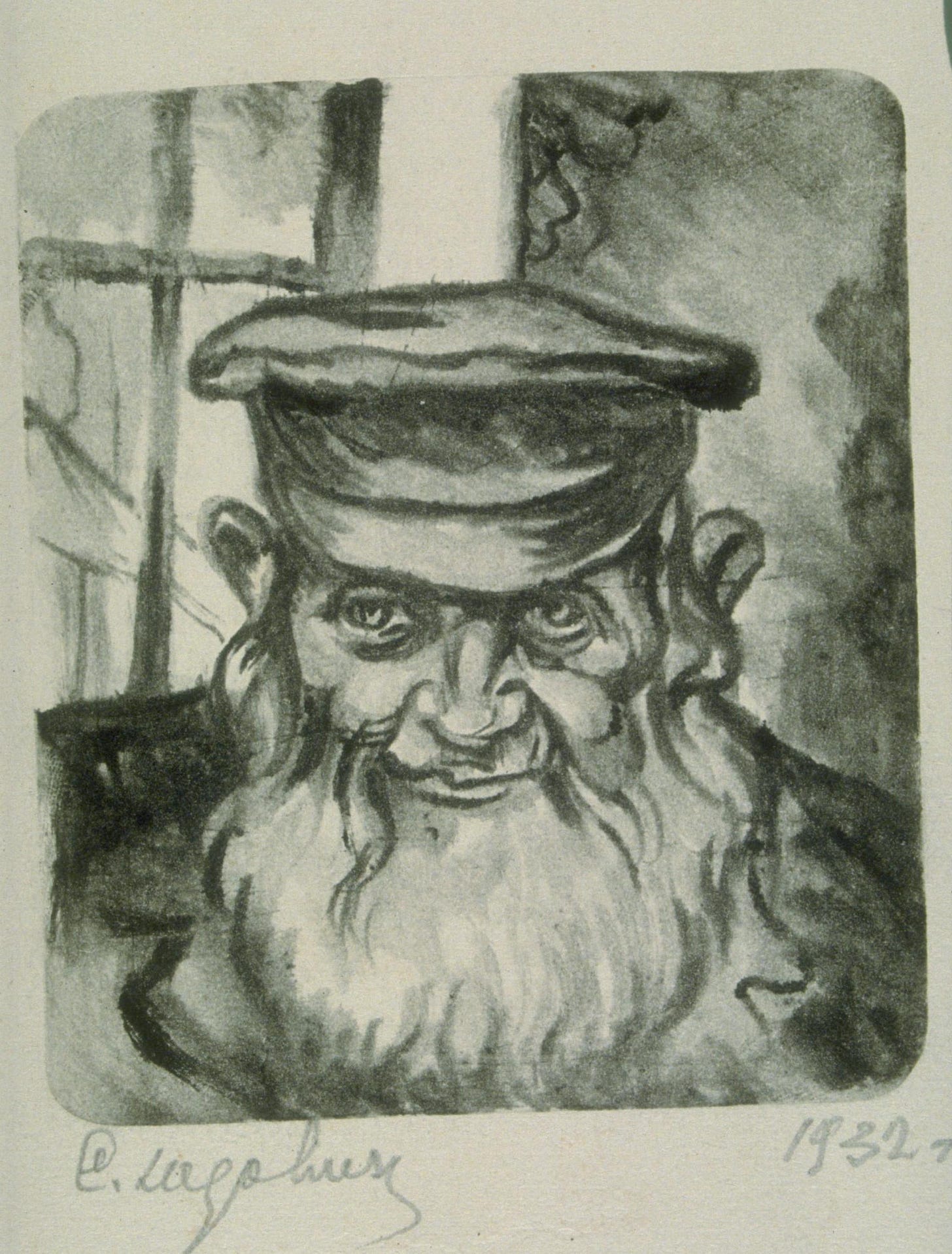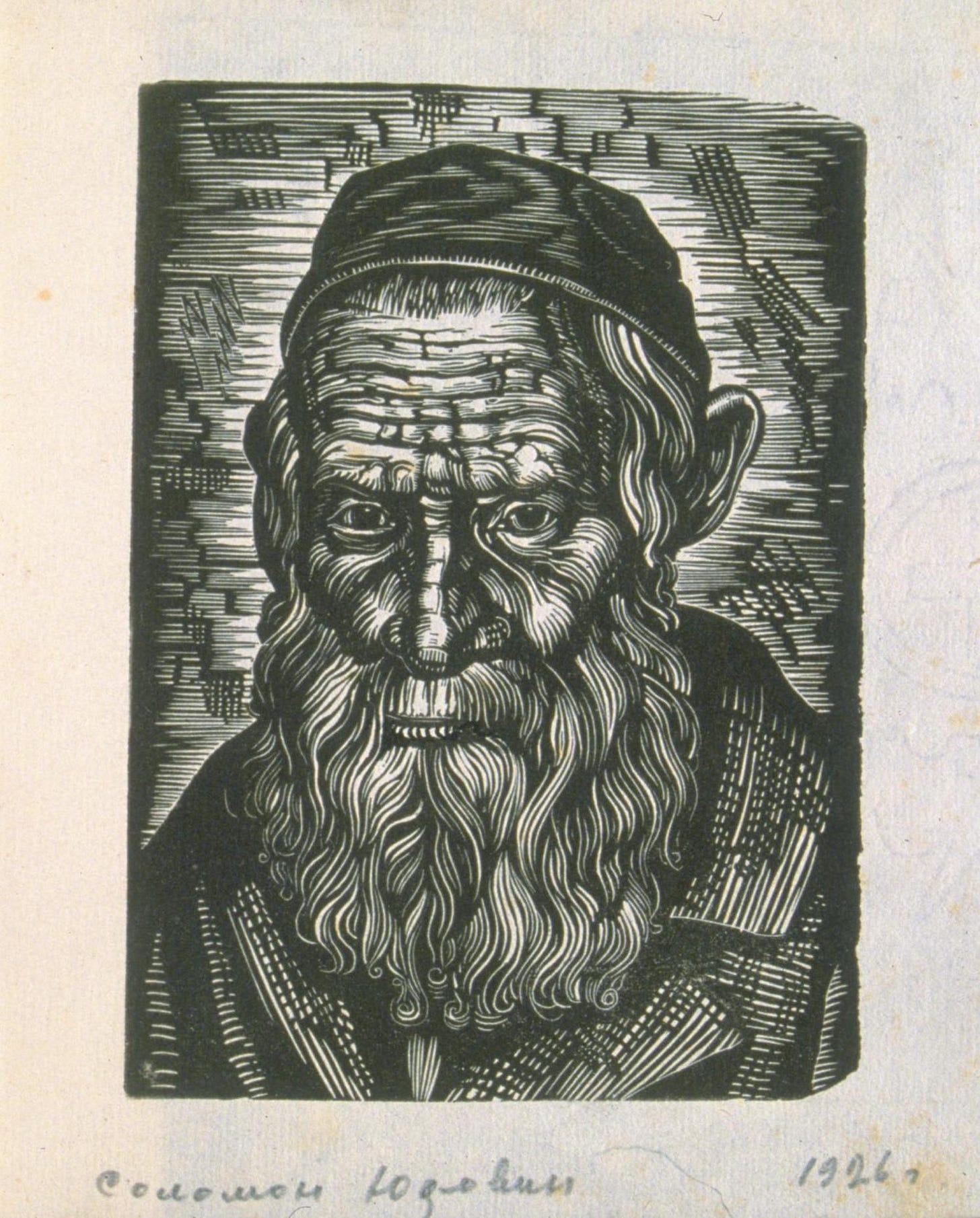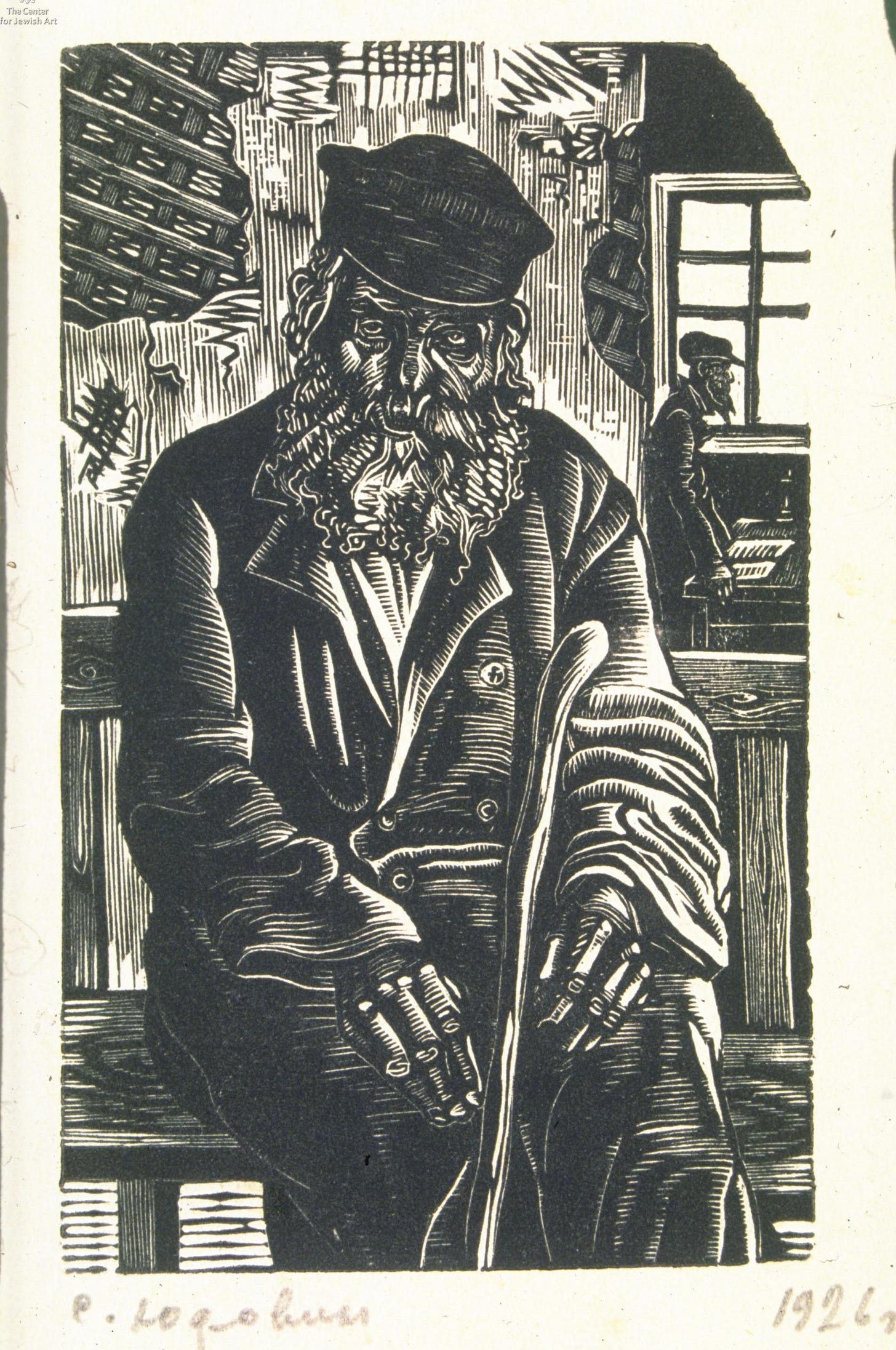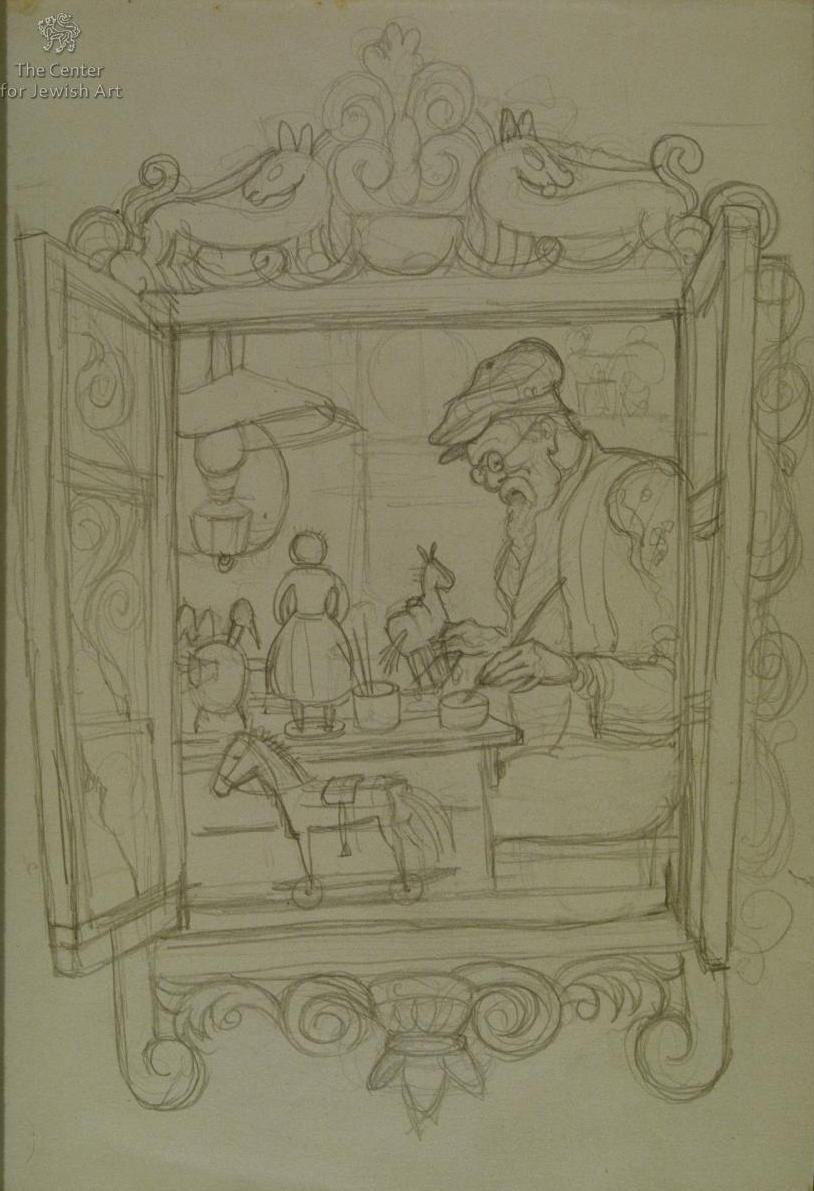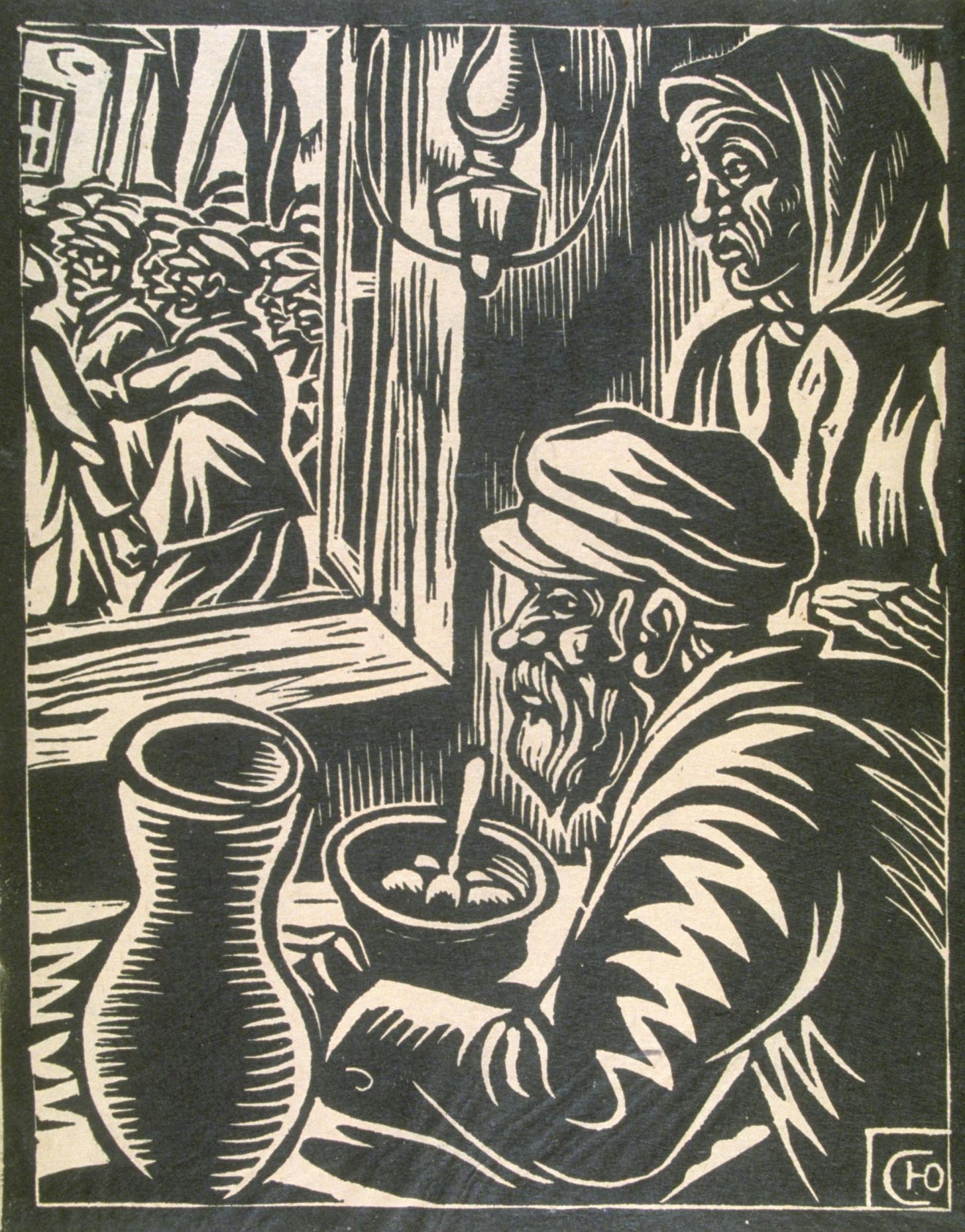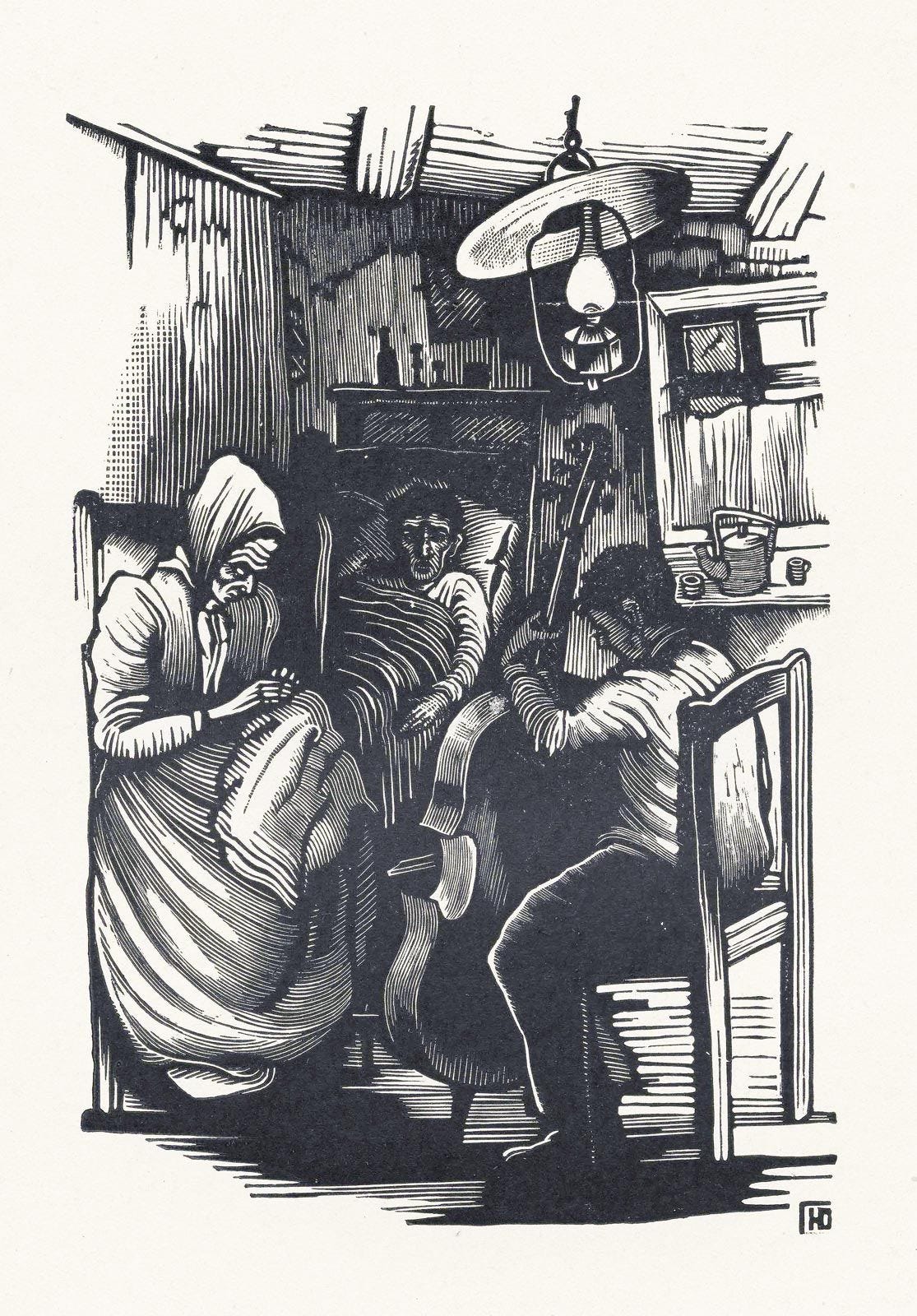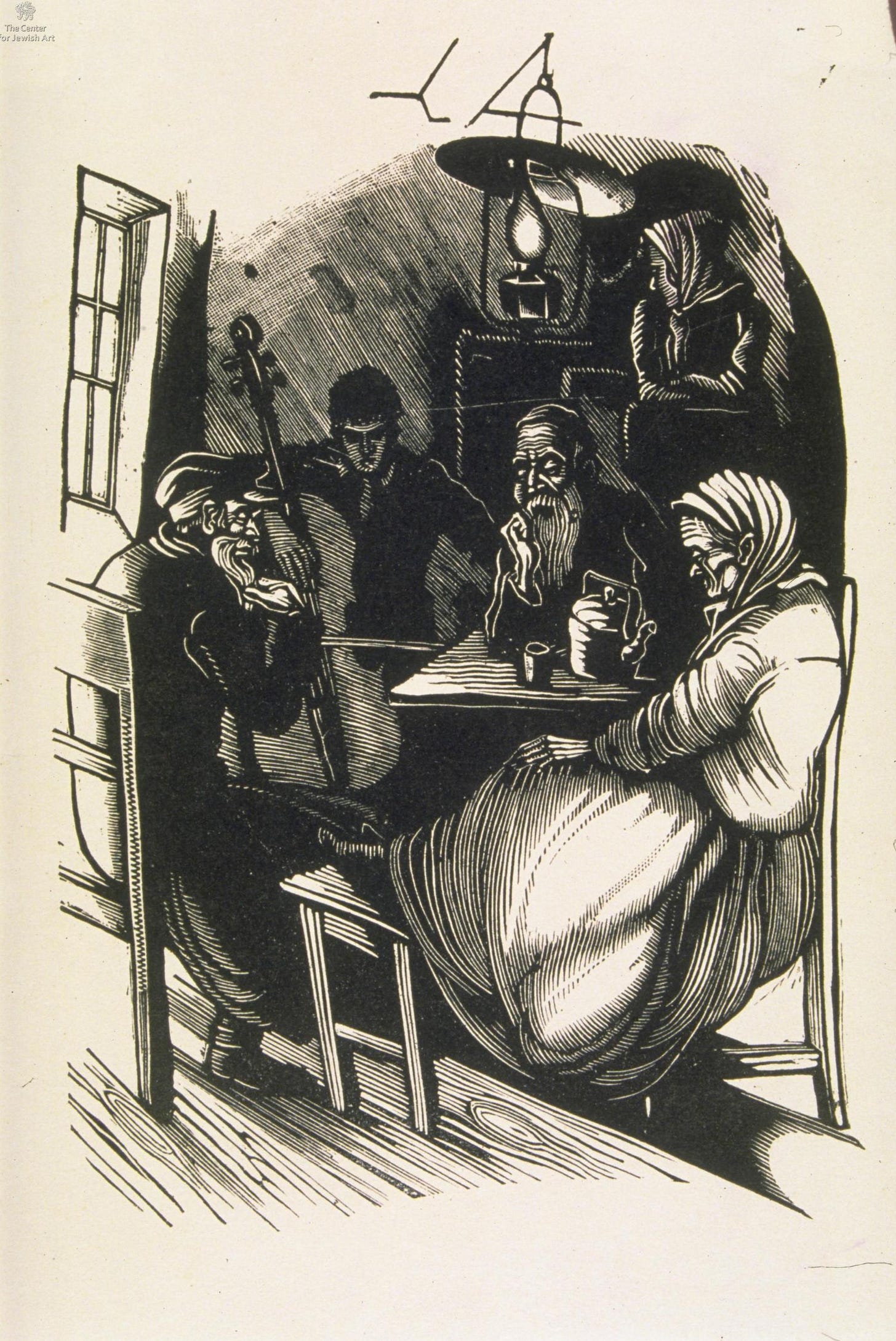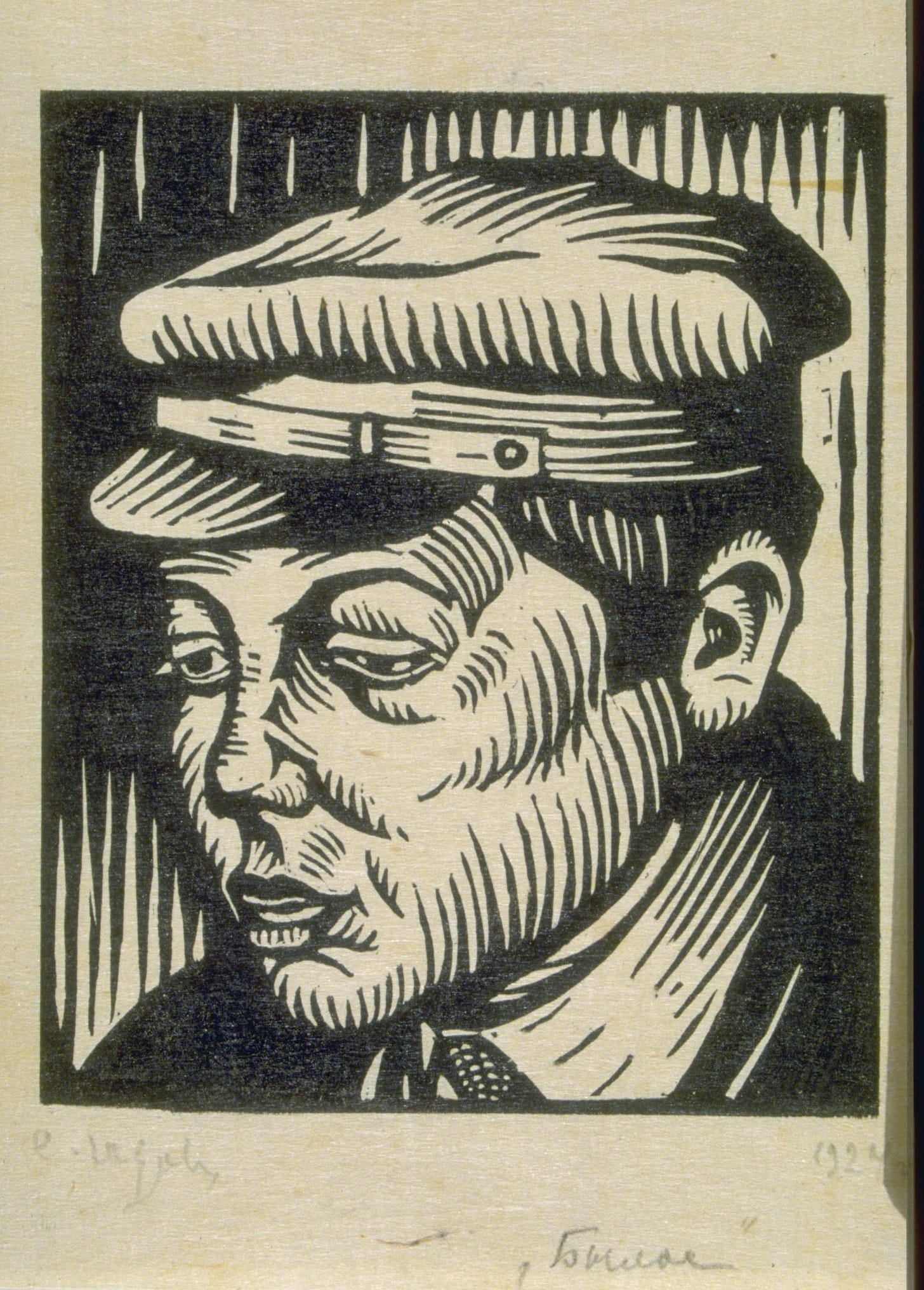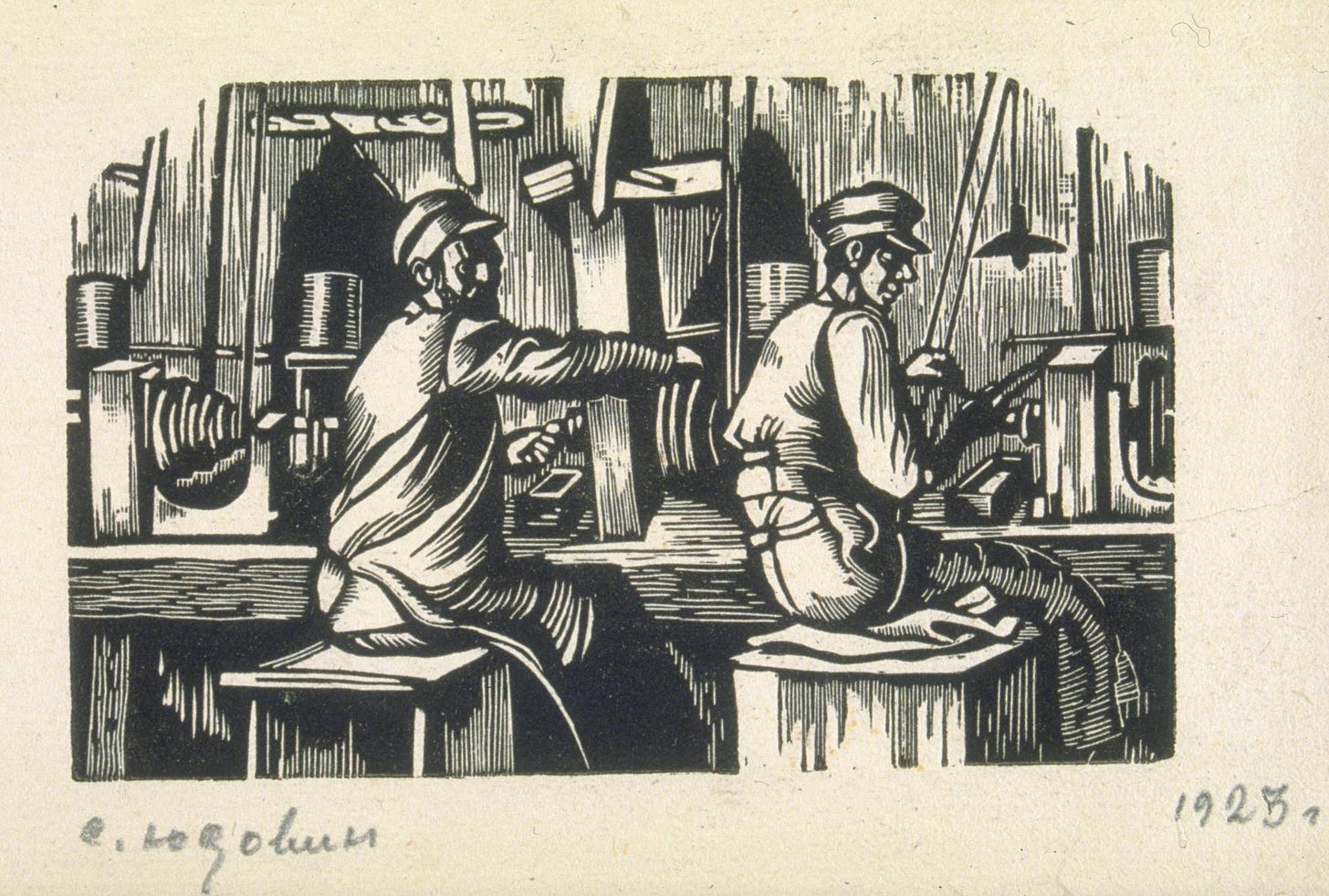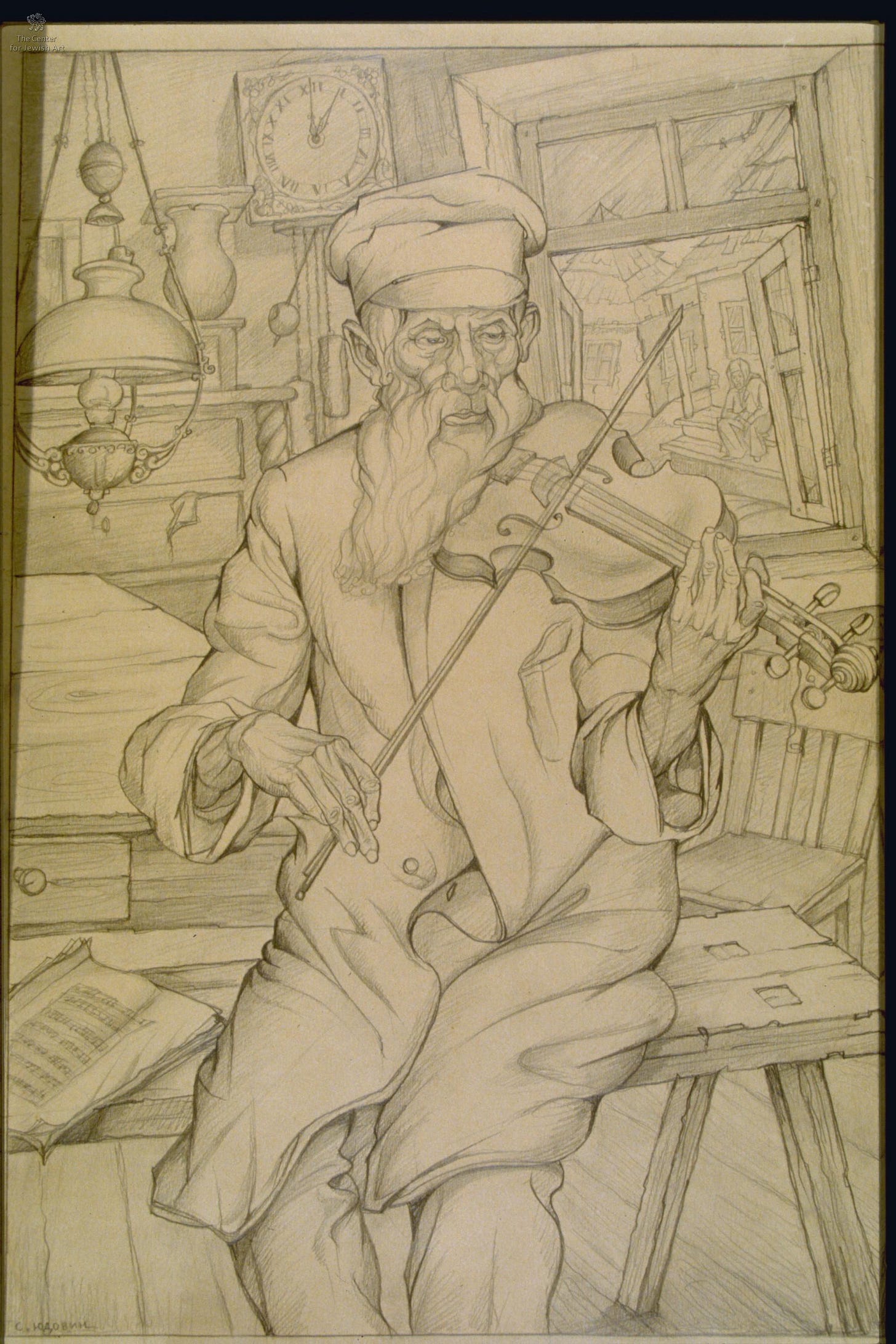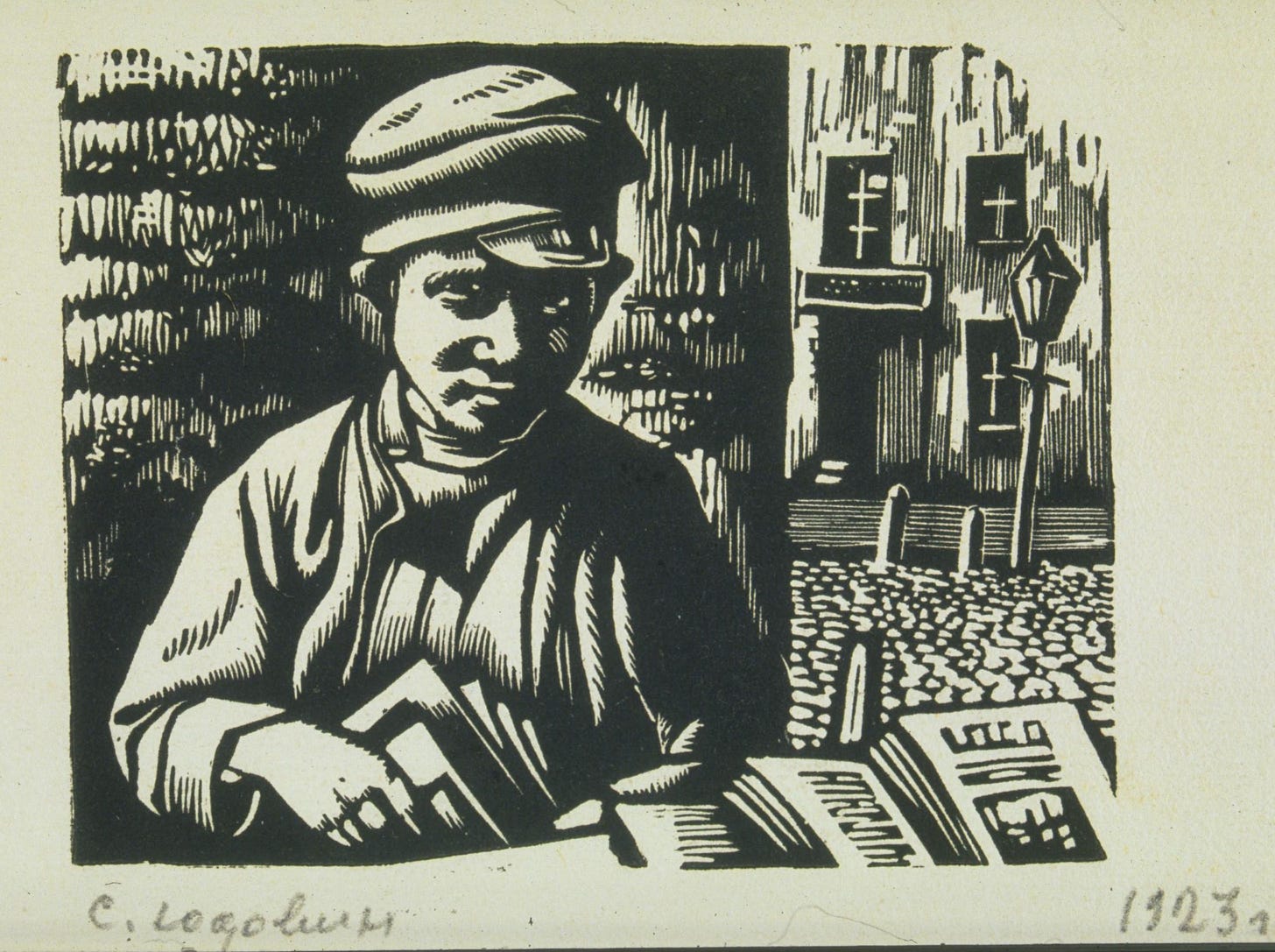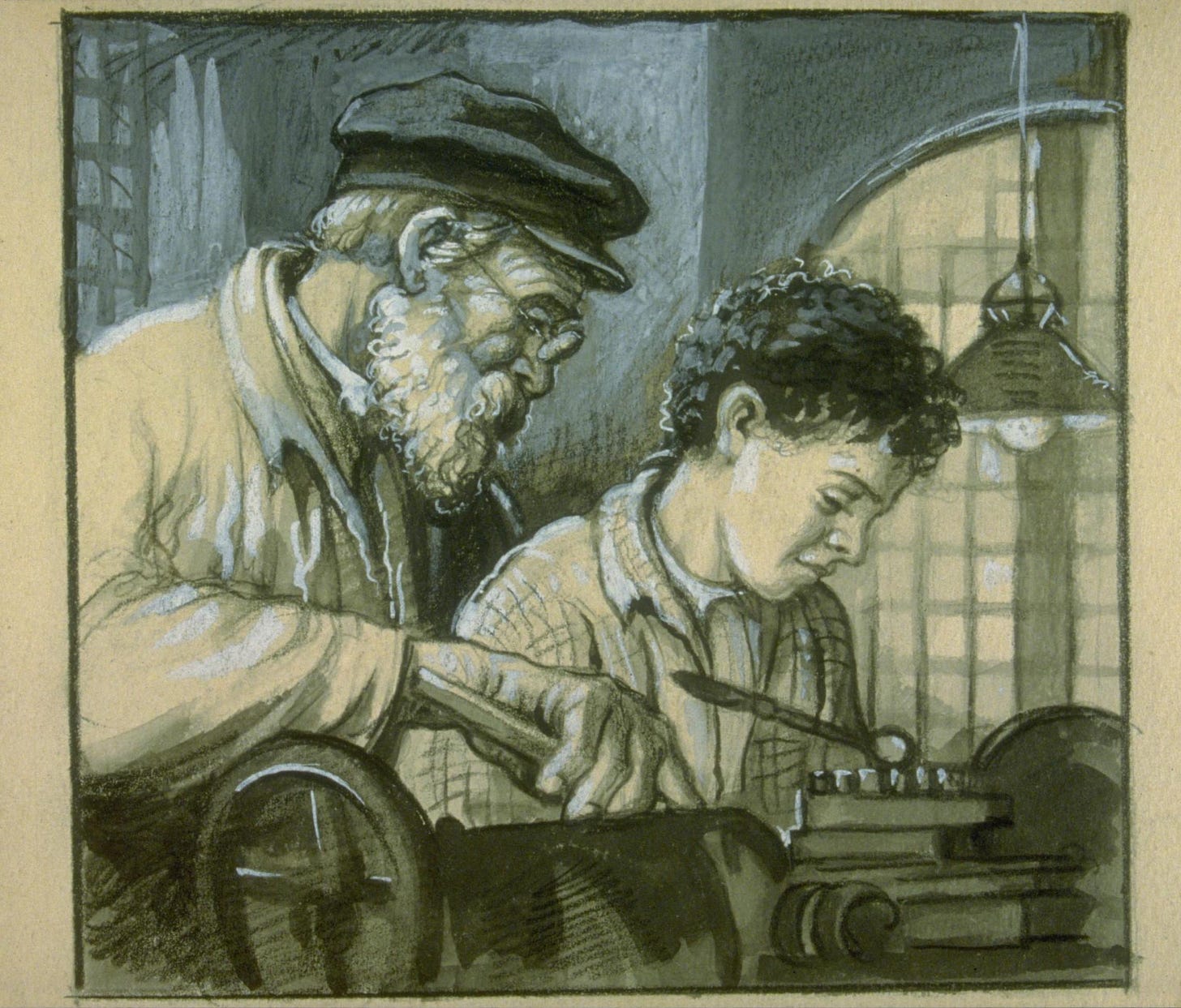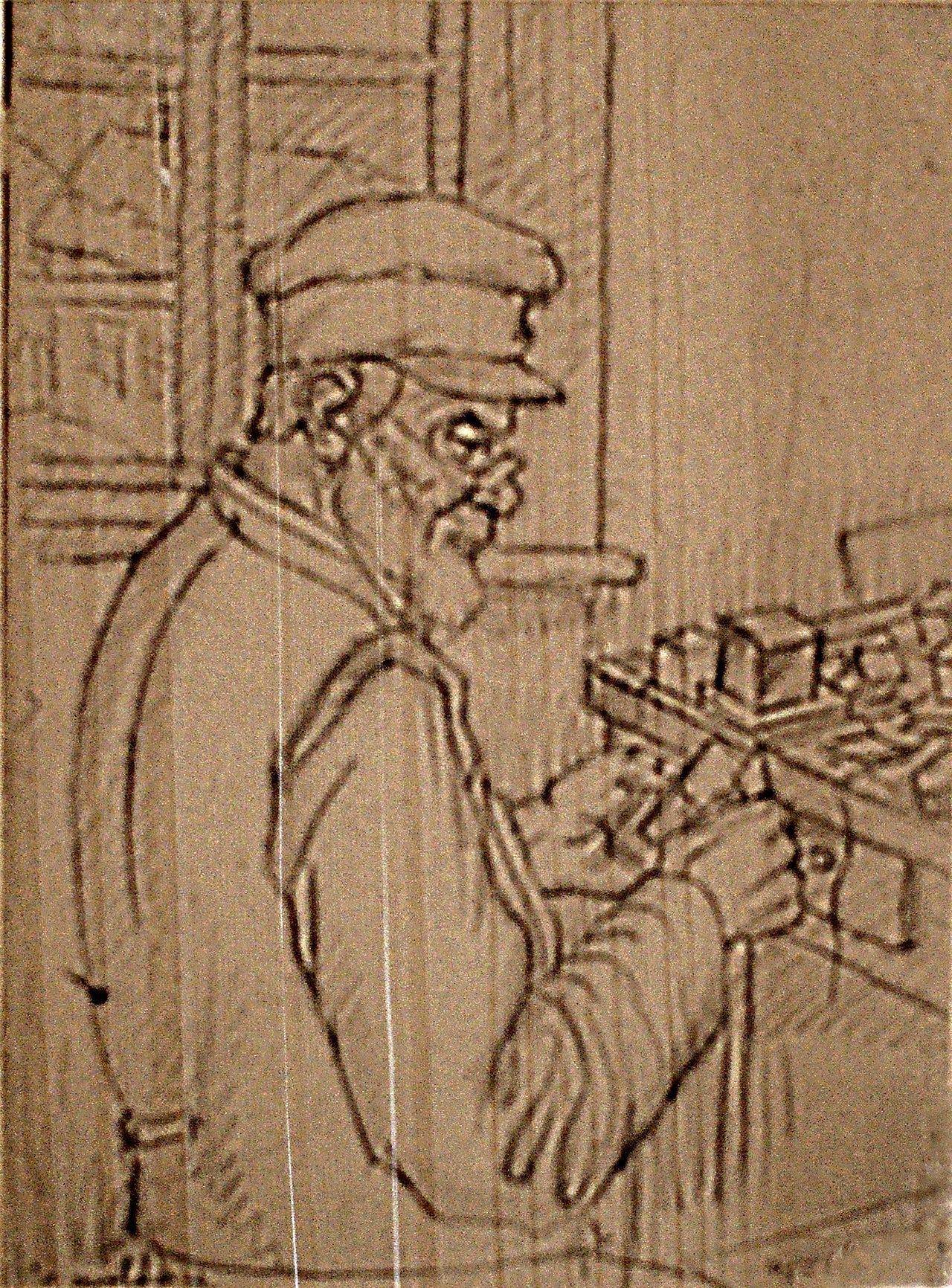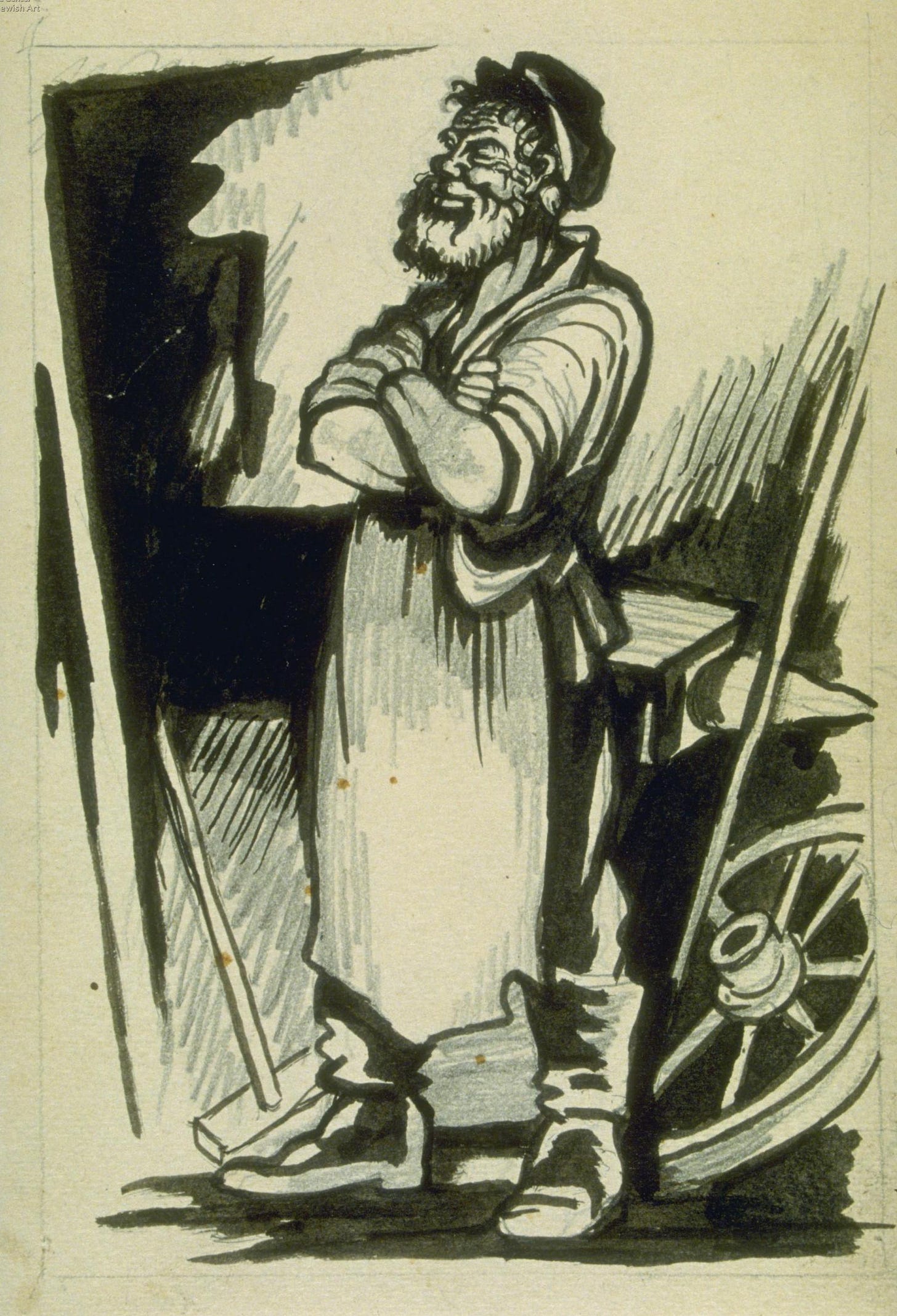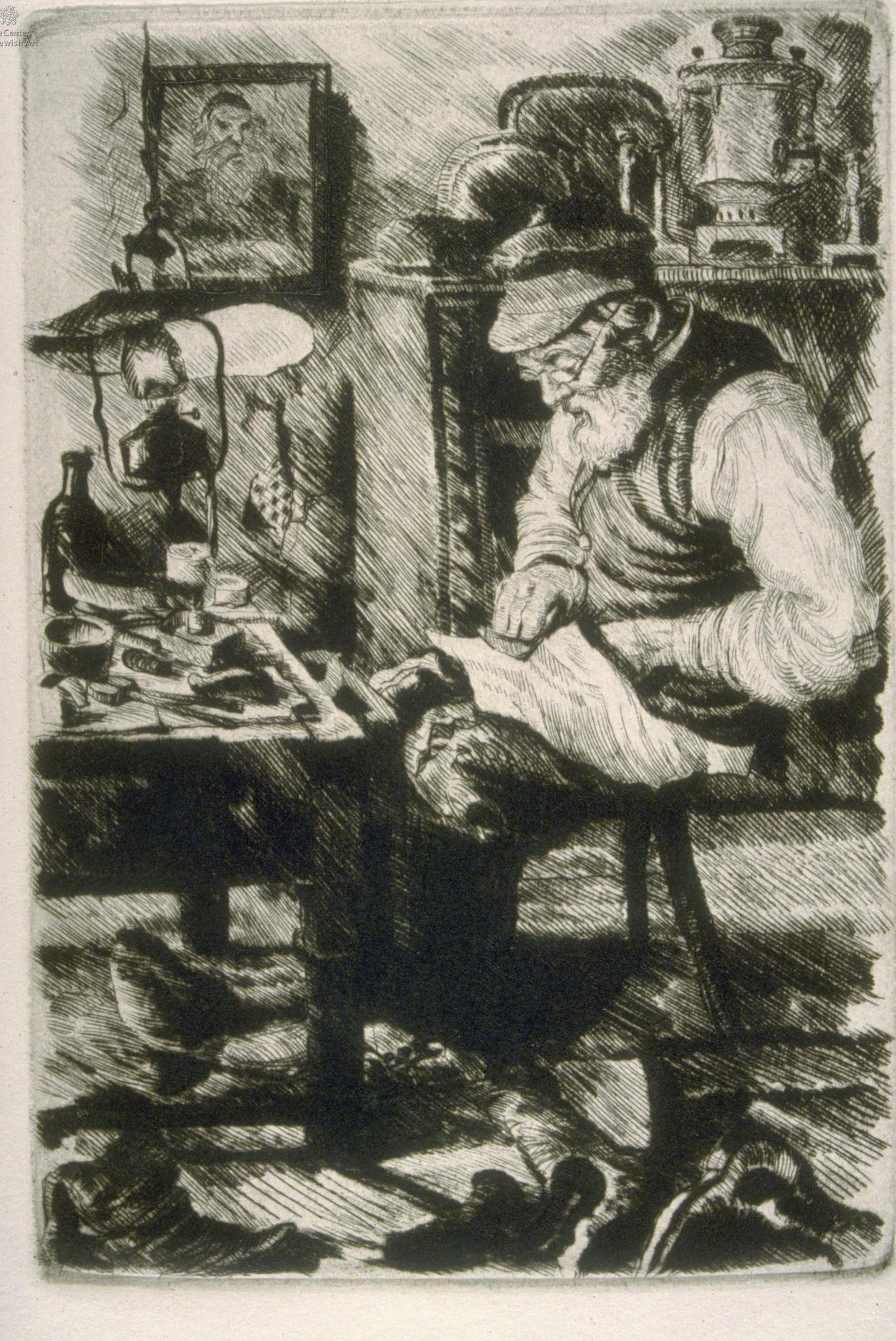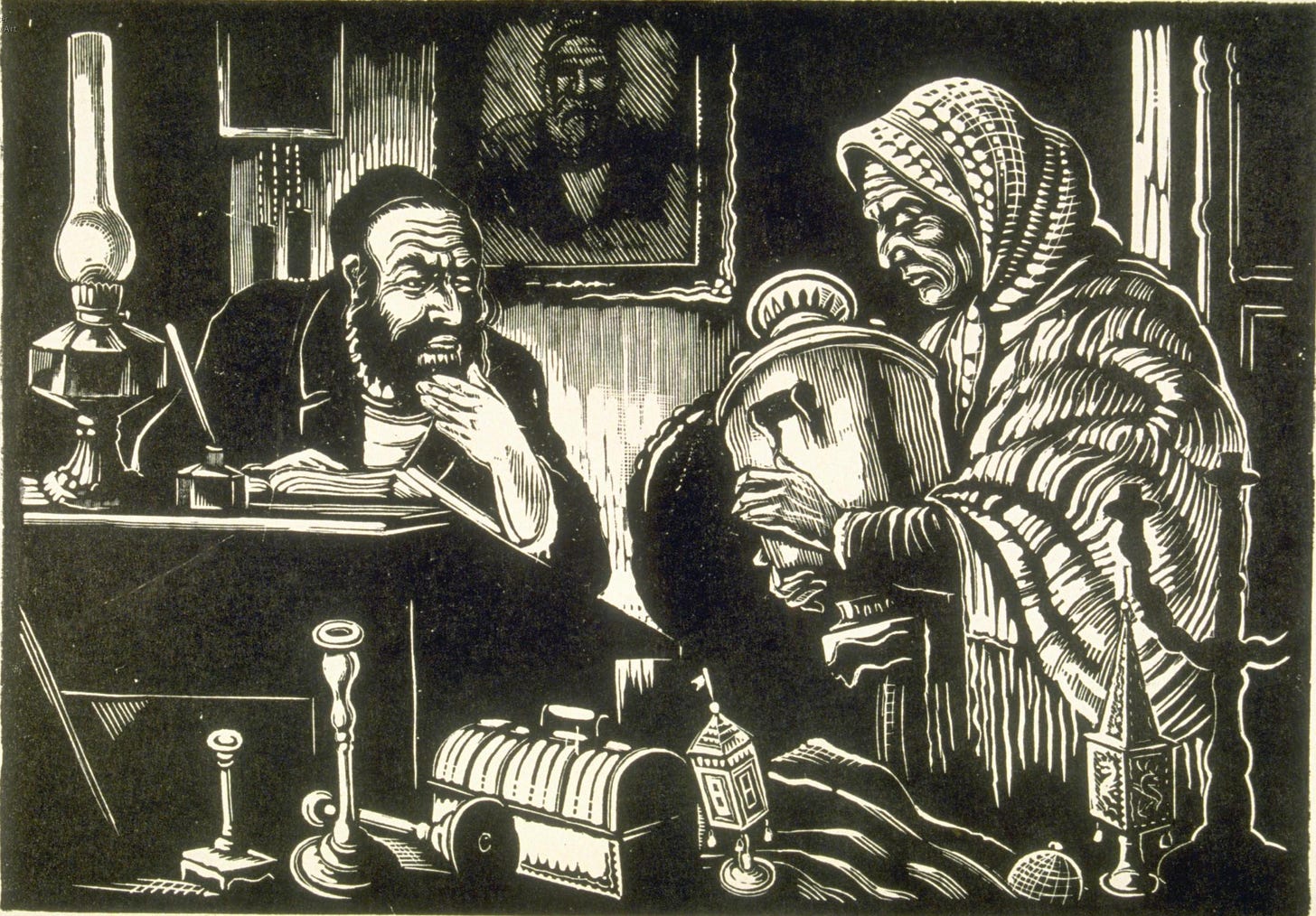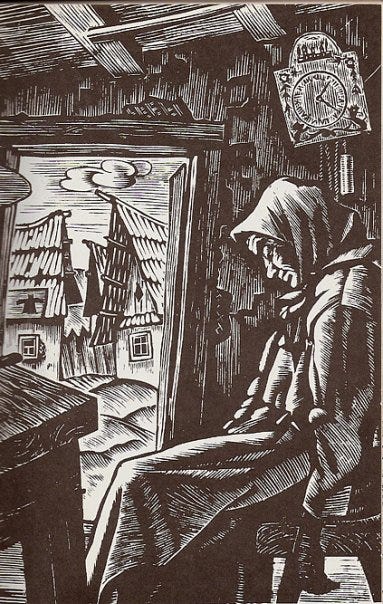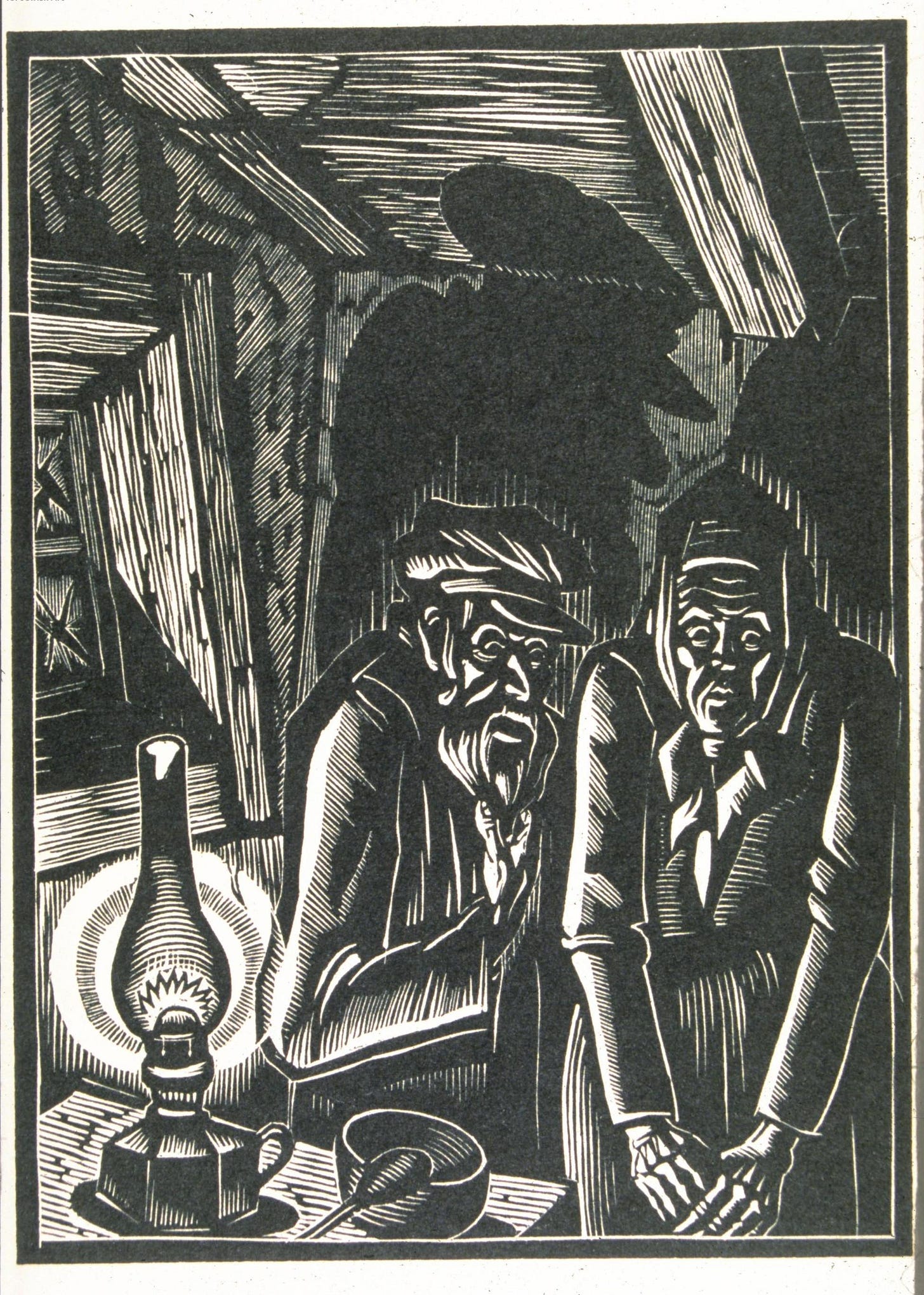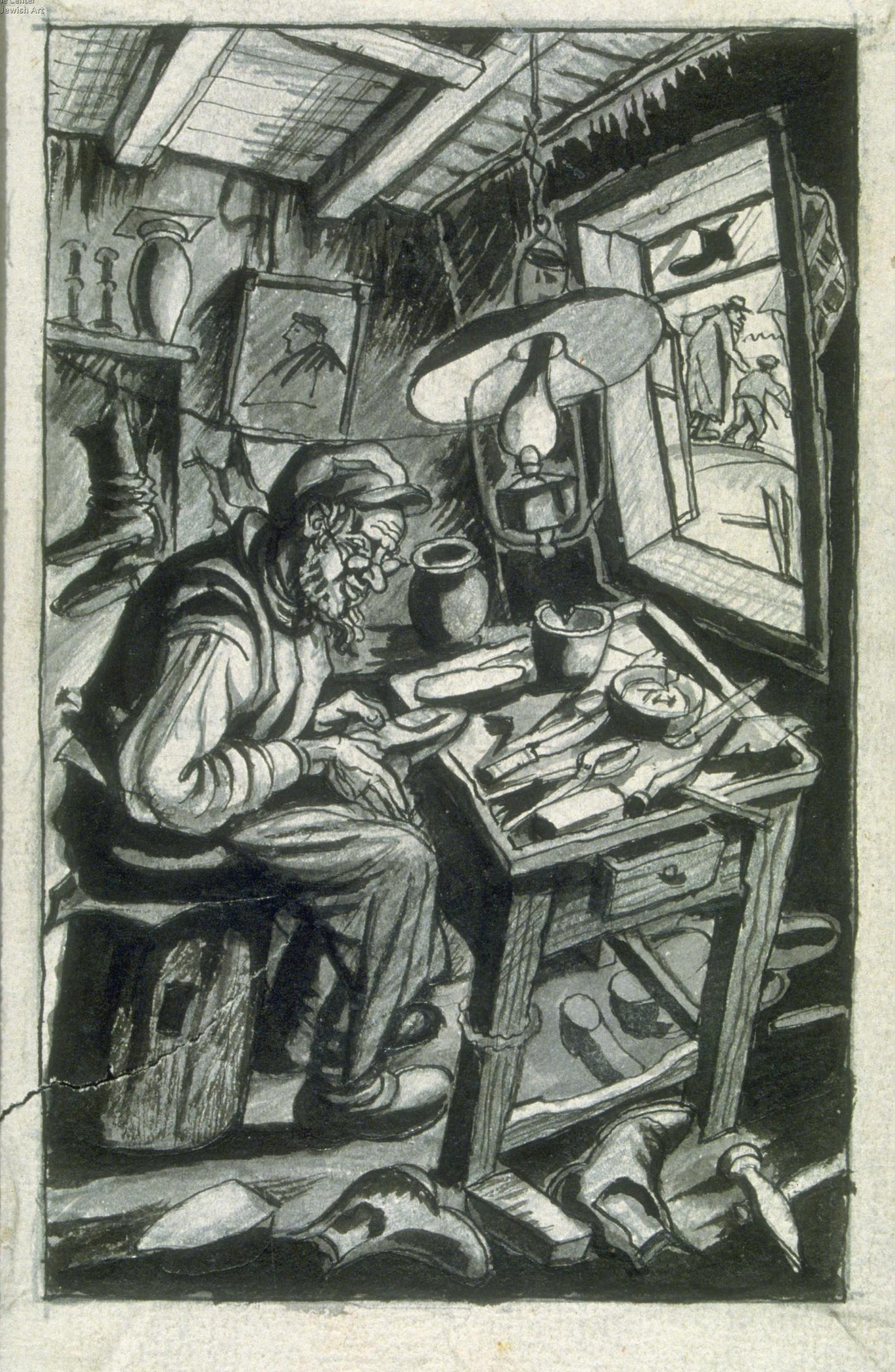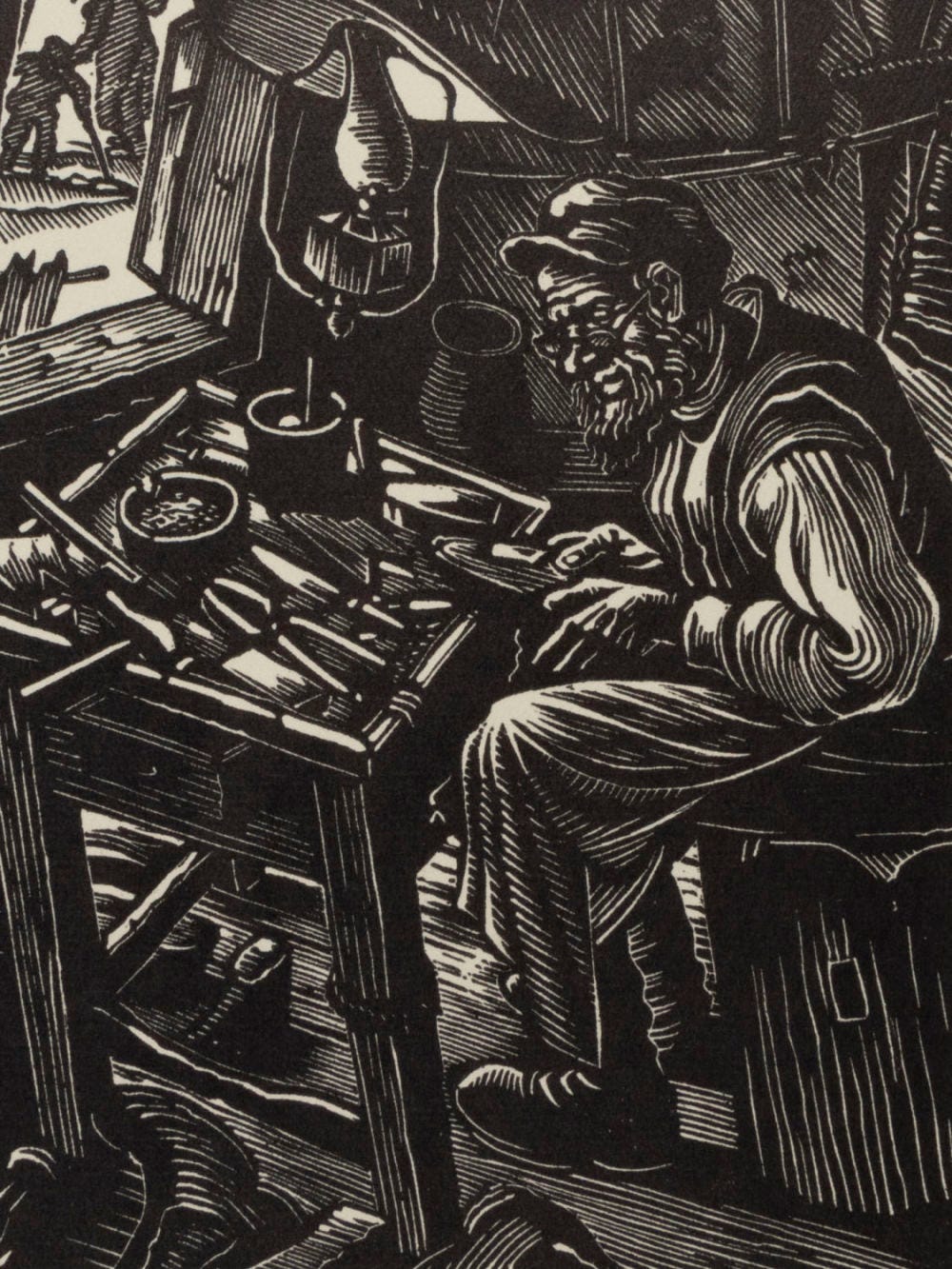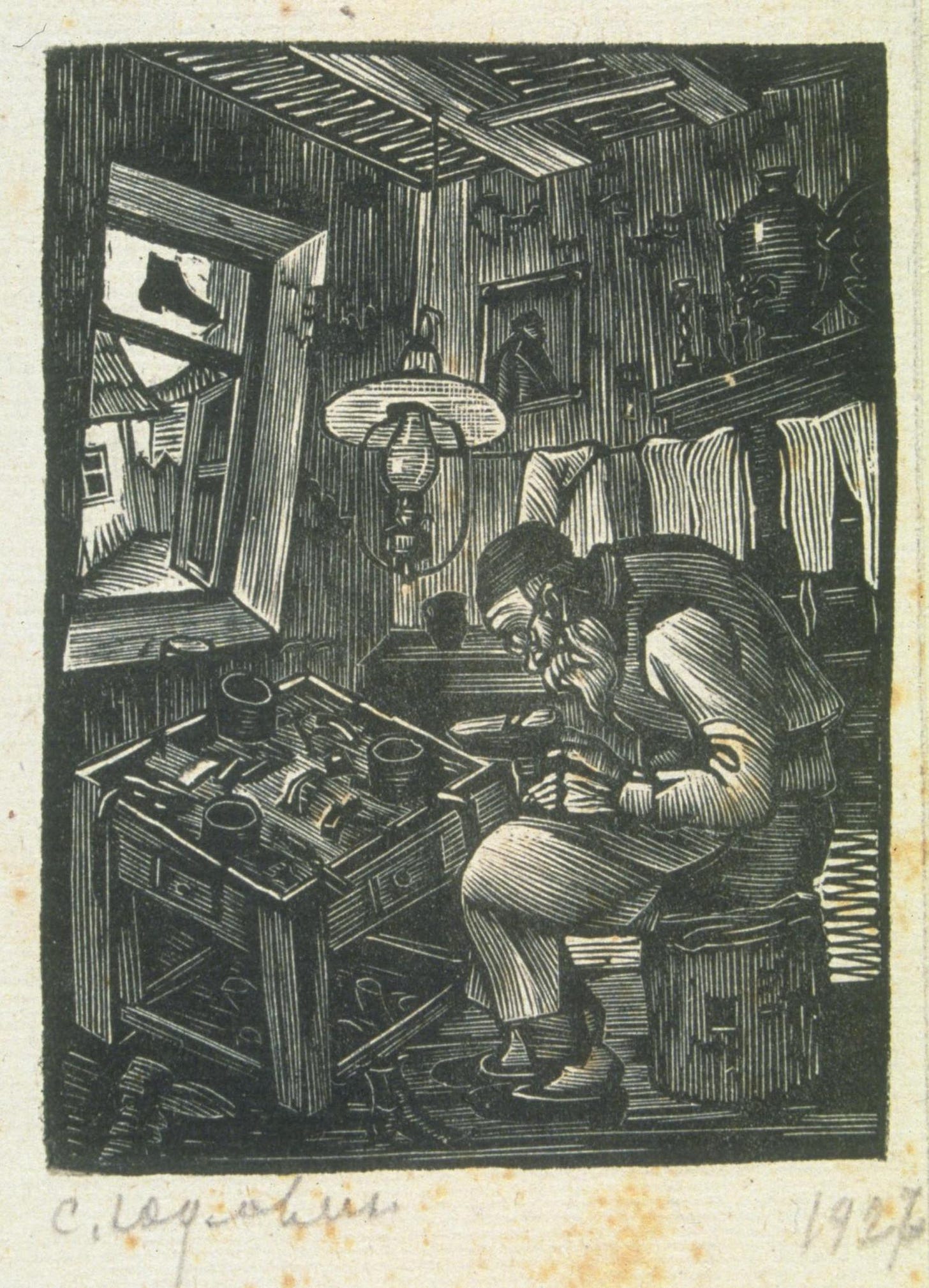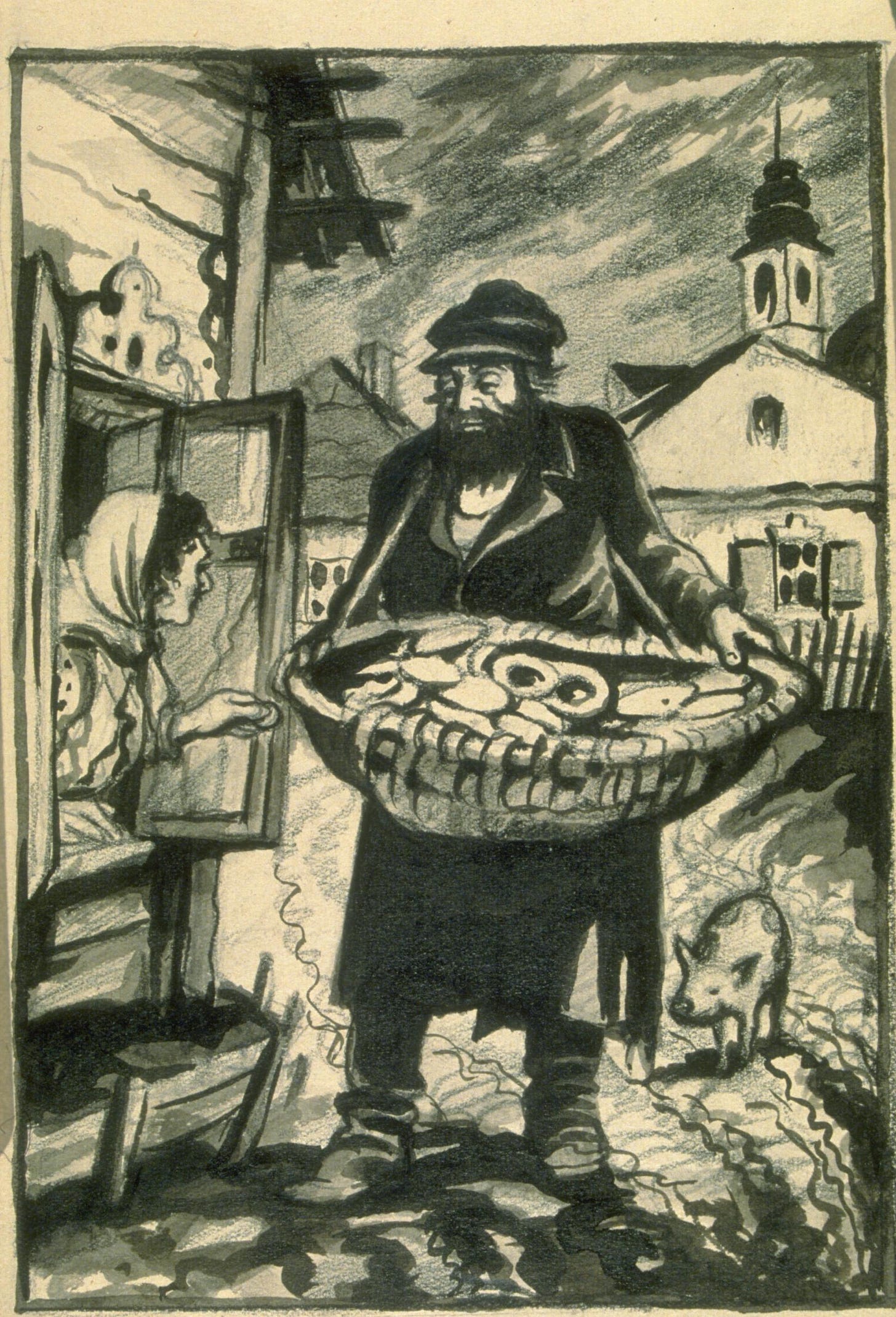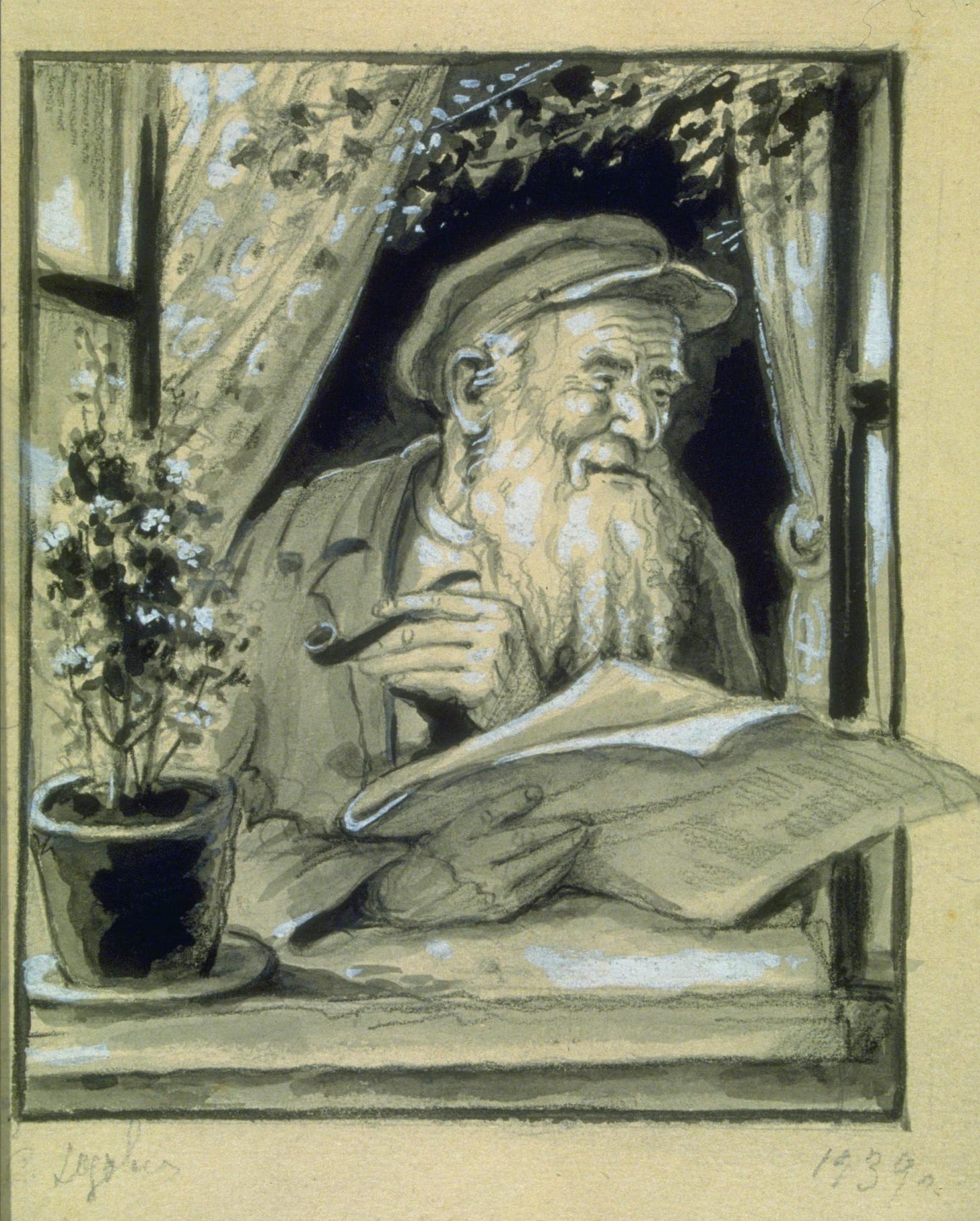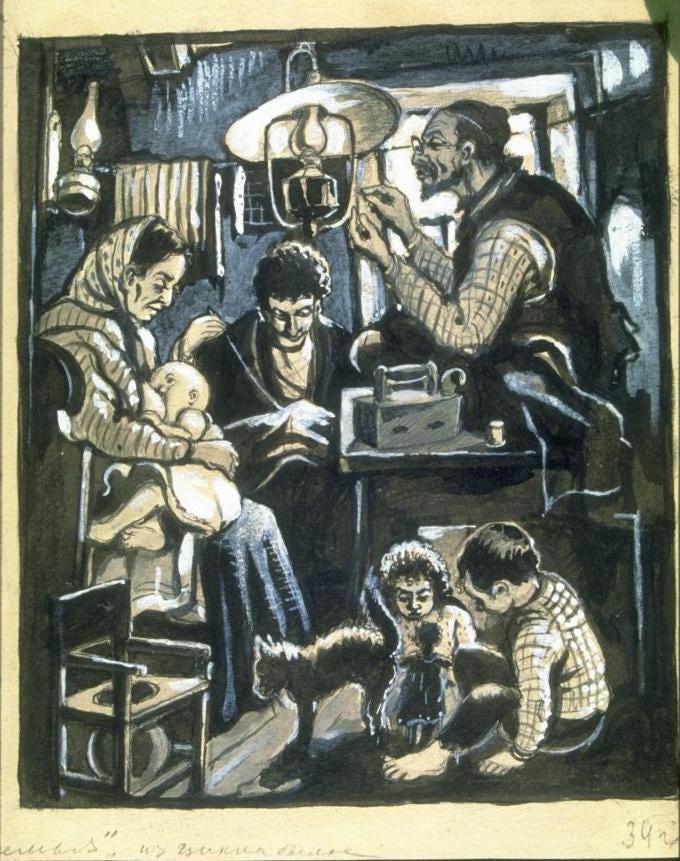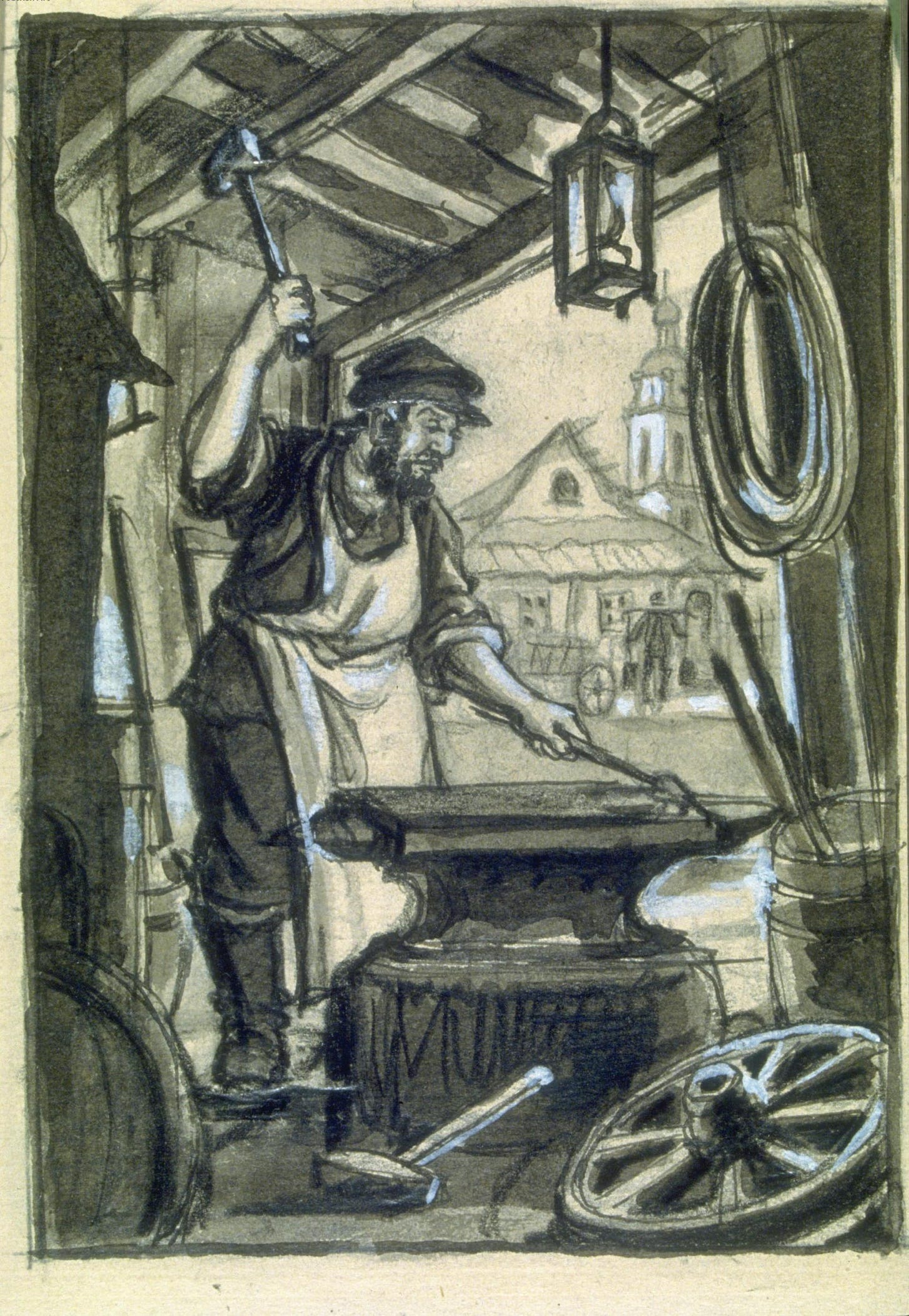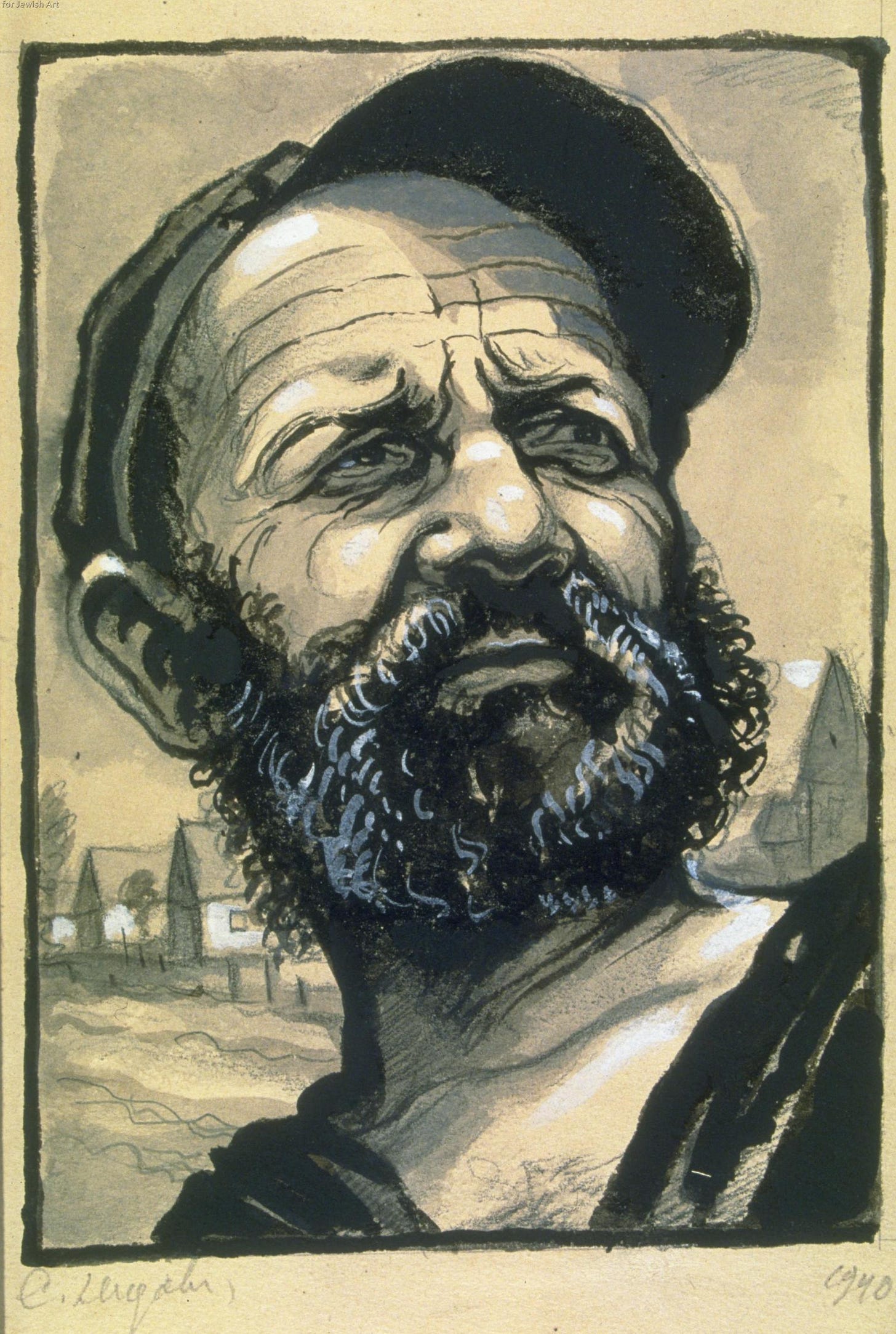Post No. 4 - The School of Yehuda Pen - The Art of Solomon Yudovin - Vitebsk
Соломон Борисович Юдовин
שלמה יודאווין
On the subject of Post No.1 - The School of Yehuda Pen - Vitebsk.
Yudovin, Solomon Borisovich (Shloyme Borukhovich).
Born - 1892, Beshenkovichi, Lepel district, Vitebsk province
Died - 1954, Leningrad
He worked in the field of book graphics, ex-libris and research of Jewish traditional ornaments. An important figure in the “Jewish artistic Renaissance”, in collecting and researching Jewish folk art.
In 1906, at the age of eight, Shloyme Yudovin was admitted to the Vitebsk School of Drawing and Painting by Yudel Pen.
In 1910, thanks to the help of his uncle S. An-sky, he moved to St. Petersburg and studied at the Drawing School of Nikolai Konstantinovich Roerich.
1911 to 1913 studied at the private St. Petersburg studios of Mikhail Davidovich Bernstein, and then Mstislav Valerianovich Dobuzhinsky.
In 1918, he returned to Vitebsk.
The war years in Leningrad.
Opening of the exhibition of Judaic objects brought by An-sky's from the expedition to Volhynia and Podolia. St. Petersburg, May 27, 1914 (more of about the exhibition later).
Standing from left to right: Abraham Rechtman, (Solomon Yudovin this is not Yudovin), Shimon An-sky (cousin of S. Yudovin), Sholom Aleichem (the real one), his wife Olga Rabinovich, Moshe Ginsburg. (this M. Ginsburg doesn’t look like the other alleged photos of a younger Maharash’s son-in-law. But since the exhibition was in St. Petersburg, in makes sense if Moshe Ginsburg was a sponsor.)
Back to Shloyme Yudovin
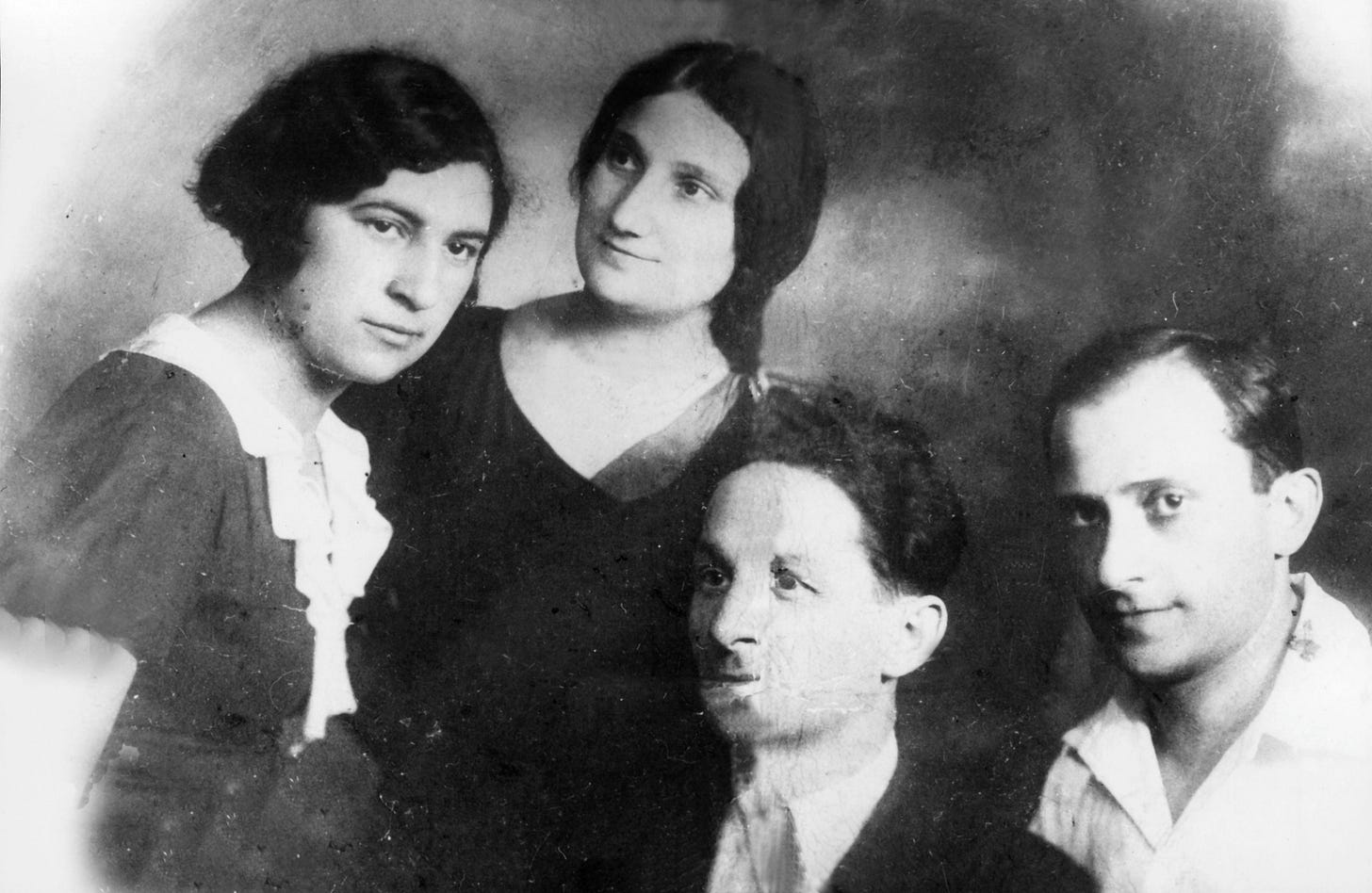
This photo went through the war with Mikhail Peretsovich Frumson, the brother of the wife of the artist Solomon Yudovin – Sofia Peretsovna Frumson.
Mikhail Frumson served in the sapper troops, was wounded three times – once seriously – returned home disabled. After the war, he worked in Vitebsk as an architect. He died in 1967.
His father, Peretz Frumson, stayed in Vitebsk during the war. He worked as a bookbinder, first at home, then at the “Banner of Industrialization” factory. Depicted in an engraving by Yudovin “In the bookbinder's workshop” [couldn’t find this]. Peretz Frumson lived with his wife, Sora-Bryna, and daughter, Rosa, on Kanatnaya St. (now Dimitrova St.) All of them died in the Vitebsk Ghetto.
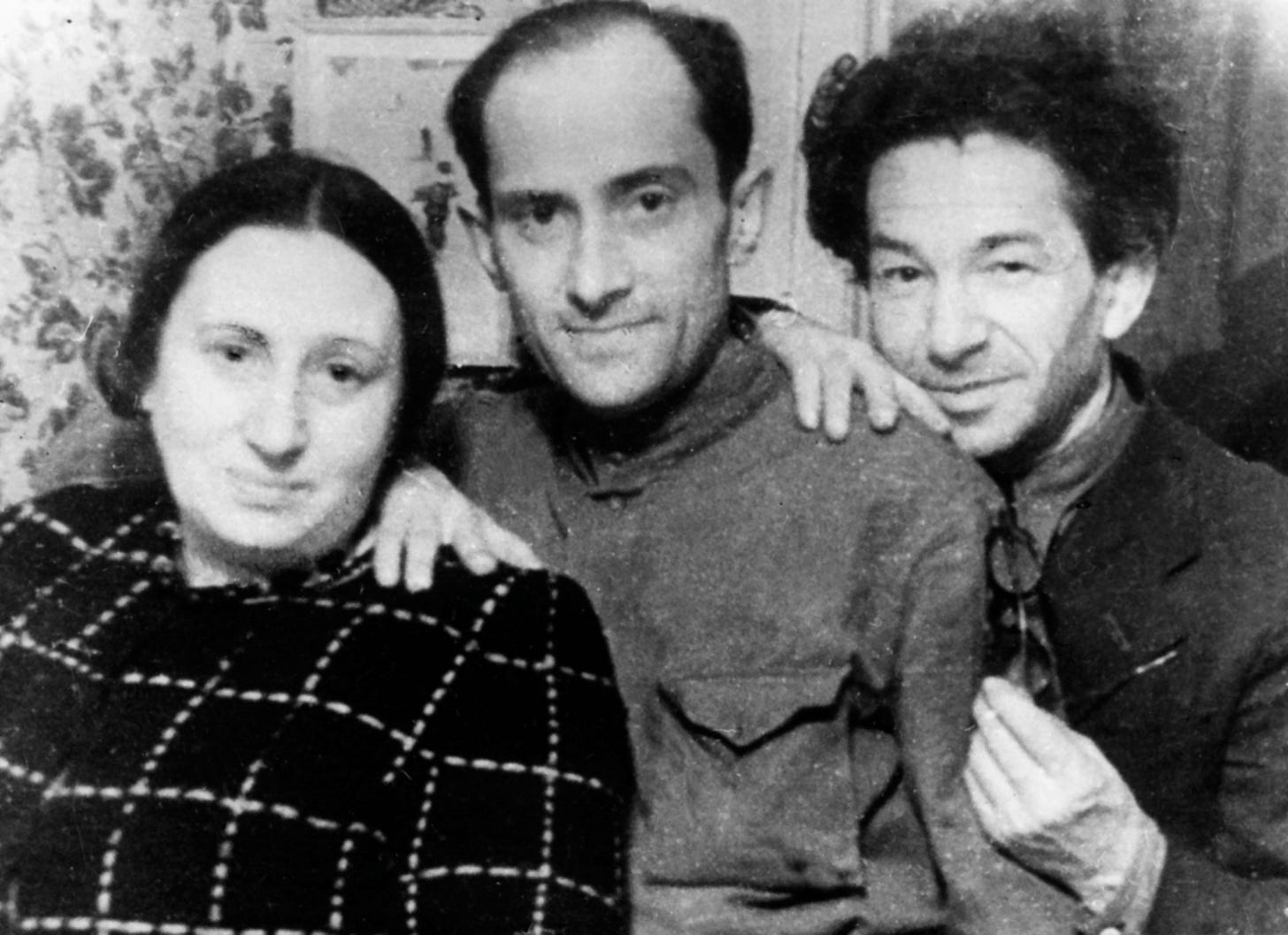
The nephew Issac Yudovin remembers:
“Solomon Borisovich also drew my attention to ethical issues. We talked about humanism and conscience, about the meaning of life, about moral freedom and responsibility. In this regard, we also addressed the national question, the tragic history of the Jewish people and the phenomenon of anti-Semitism, the Catastrophe of European Jewry and its consequences. The artist spoke with pain and sadness about the disappearance of Jewish towns, about the death of many of our relatives during the war. But he spoke with joy and pride about the formation of the State of Israel.
Of particular interest were the thoughts of Solomon Borisovich that any phenomenon of human existence must be perceived, analyzed and evaluated from a moral point of view. It was from these positions that he made certain demands not only on other people, on their behavior, but above all on himself, on his creativity.
It seems to me that in the engraving "The Woodcarver" (1938), Solomon Borisovich clearly expressed his view on the life purpose of a person. In a small, squalid room, a carver-craftsman in poor clothes, with a kind and wrinkled face, stands bent at a workbench. He is completely absorbed in his work, forgetting for a while about his sorrows and illnesses. Now he lives in another world, lovingly carving figures of fantastic animals on the boards, entangled in a bizarre grid of ornaments. And he, this prematurely aged man, is happy in his own way.”
Around Vitebsk
“The past was erased, the erasure was forgotten, the lie became the truth.” George Orwell, 1984
I don’t know what’s up with the Japanese characters. I was a challenge to get good quality reproductions. Beautiful Ex Libris.
A very dynamic tailor.
Beautiful Ex Libris.
I will print this to my wall. It is from “Былое” series or “there was the time”… If people ask, I tell them about Shloyme Yudovin. Is there a better picture of hisbonnenus?
A serious yid. Yudovin manages mood in an enervatings, very difficult.
Where did all the humans disappear? Where is this man to sit on a bench and joke around? Where is the man with a sefer?
This is a sketch done in ink.
And this is an engraving after the sketch.
Vitebsker Death
What is the first word?
Yudovin does a Chagallian picture. With the eyes in the sky, crying moon in the window and the rest of the shtick. We will see that Yudovin studied mazeyvos and ornaments. Poor woman left all alone. God, why? Even the moon is crying.
A pogrom, horror.
Vitebsker Life
Solomon Yudovin work is black and white engravings suited for publishing in a book. Or, more rarely, pictures in black ink.
I think this illustration, very theatrical. Everyone is talking except the man who goes away from the village. He might be an artist?
The synagogue was built in 1630 (probably the synagogue that first stood in this place). The synagogue was closed in 1929, and destroyed during the War. Its ruins remain in the city of Vitebsk to this day, and have become a symbol of the decline of the Jewish community of Belarus. Recently, the municipal government of Vitebsk has offered to sell the synagogue to anyone willing to rebuild it, on the condition that they restore the building as it was before its destruction (from wiki).
At the forefront баня, bath house, hence the pillows on smoke and веник, a broom. Behind that bath house, you see a wood lever to raise the bucket from the water well. This detail in many engravings, it’s the feature of life.
Those wooden shules are so graceful. There are many that Yudovin photographed during his expedition. We will see.
Vitebsk is on the river Vitba. The book had a German translation, they were waiting for the guests…
We will see later in Yudovin photographs that a piglet is not only Yudovin's imagination, but he often encountered (or photographed) stray pigs in the Shtetls.
Beautiful Ex Libris.
Beautiful Ex Libris.
Beautiful snowed out Ex Libris.
All the markets look the same, but you must read the best description of the market in Der Nister.
Vitebsker Yidden
Maybe this is not really Vitebsk, but one of his illustrations.
There are things we must talk about. This is preparation for the work below.
In many Yudovin engravings, there is that wooden shule with the double windows that look like tablets and the distinct roof. Must have been a real shule that the boys came to wreck.
An echo of the light around the window.
I think he is about to cut more than he supposed to? Are we certain that the old man can see in those glasses?
I wonder if in 1932 he worked from memory or this was a real man. Such a character, must be real!
This is a superior portrait. The Engraving resembles Durer.
An old saintly yid in a shule.
A toy maker, a joy to see.
I published this already, one more time. We must remember that commies started the hurban. And now they are back under the new evil management. Many Jews again in their midst.
The two engravings with the cello are exceptionally beautiful. Probably there was a boy who played a cello in that family. Listening to music.
Many pictures of working, crafts. Jews used to do things.
Under the cover of engravings there is a solid draftsmanship, the drawing skill. But on its own, this is wonderful.
A paperboy looks at you suspiciously. What is the century news have in store for me?
A gentle similes tell of the bond between the generations.
Yudonvin loved to draw craftsmen doing their work. I think this is a drawing in ink. But stylistically, made to look like an engraving.
A pawn shop. What is she going to do without the samovar? No more hot tea in the cold Vitebsk. Oy!
Sleeping. This is incredible work. I couldn’t find a better quality reproduction.
A pogrom. Horror.
A cobbler at work.
Купите бублики, горячи бублики! Купите бублики, народ, скорей! За эти бублики гоните рублики, Что для Республики всего милей.
How can you not love this? The man’s face speaks of a lost culture. The yidden that wore a casket in our time were only a faint echo of the lost world, the lost Vitebsk.
I guess Yudovin saw a proper tailor sitting on a table.
This is one of the Blesofksy brothers.
This is a Jew that became a soviet man. Yudovin wants you to know that he is still a Jew.
Moving to Kolchos, a collective farm. Horror.
Vitebkser thoughts
Thousands upon thousands of hours of Farbrengens, 90% repetition, running in a loop. There was time for Mendel Schneerson to lie about the imminent arrival of mochiach, there was time to scream that you urgently must remove Mikey from the pillows. Hours upon hours of the Israeli politics, betrayed anyway when money threatened. Mitzvos bnei noach, a minute of silence in the public schools and the rest of the bullshit.
But there wasn’t a single minute to talk about Vitebsk, to reflect on what it meant for Chabad and Chabad culture, no time to honor the kedoshim. Of course, Ramash knew more about Paris and Berlin than Vitebsk. Worse, that man had no feelings for the old word. When introduced to the family, the Russian Schneersons, he was as cold and distant as “humanly” possible, one could call it rude. What was he afraid of? There is no redemption for this, no matter how many fake dollars you dish out. All the connections to that old culture were intentionally severed. It didn’t fit the new Chabad of Berkley, Putin’s Moscow, Dubai, Marakesh and gangsta Dnepropetrovsk.
A Jew that quietly and stoically did his handicraft wasn’t in Ramash’s plans. His stated ideal was a bulldozer, a loud money grabbing plumber like Cunin. Or the Grand Inquisitor, the communist commissar Shemtov. Or the schemer Krinsky, who never even heard of Vitebsk.
I took an Uber on Friday. I noticed a tablet with the running advertisements in front of the passenger seat, there are the same screens in the taxis. It’s the ultimate captured audience, it’s in your face, and you have nowhere to run. You need a skill to turn it off. Krinsky knew very well how to use the captured audience of the Rebbe. He is the only person in Chabad who had a standing yehidus with the relaxed Rebbe. American driver was the most important position in the new Chabad.
And all these people already set up their children to continue the enterprise of looting the vanishing and injured remnants of the Jewish people.
A simple Chabad person is too downtrodden, too brainwashed, and ignorant to object to the extracting goons. If the BTs wakes up, it’s too late, life too entangled for a clean escape.
Yudovin in the quote from the nephew spoke of a moral life. The concept so foreign to Chabad or frum world in general, it makes me wonder if we belong to the same tribe. If we lost more than the synagogues and the people.
P. S. I was going to talk about Levi Keller because he seemed to me a person who accomplished the clean escape. The mystery of a genius, as his father called him. But his brother and his friend found enough excuses not to talk about it. I suspect they don’t know or can’t find words for it.
I have lost one subscribes after my last post. But it tells you only that the readers simply can’t figure out how to unsubscribe. Please let me know if I can help.
There will be two or three more posts about Yudovin’s art.



